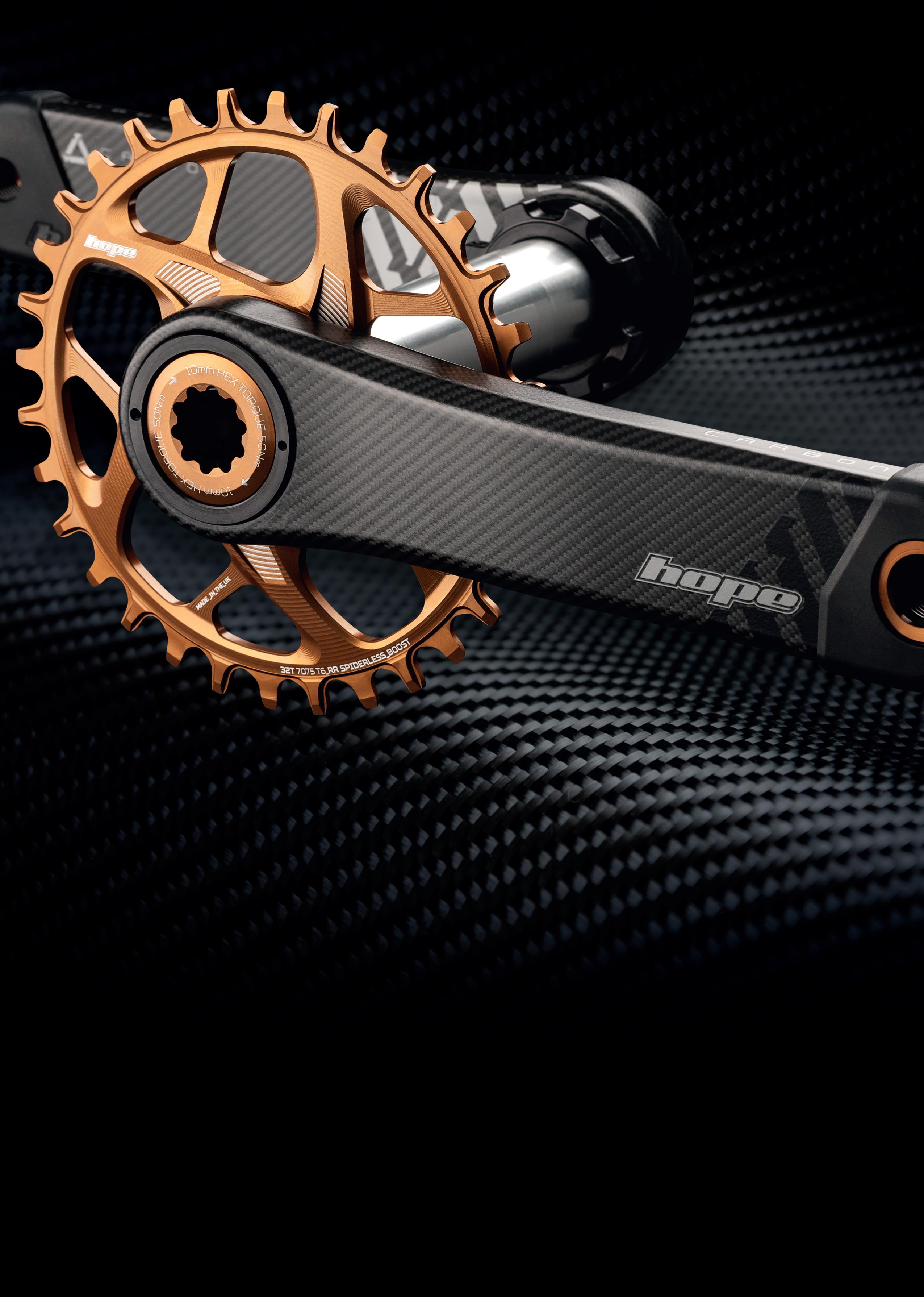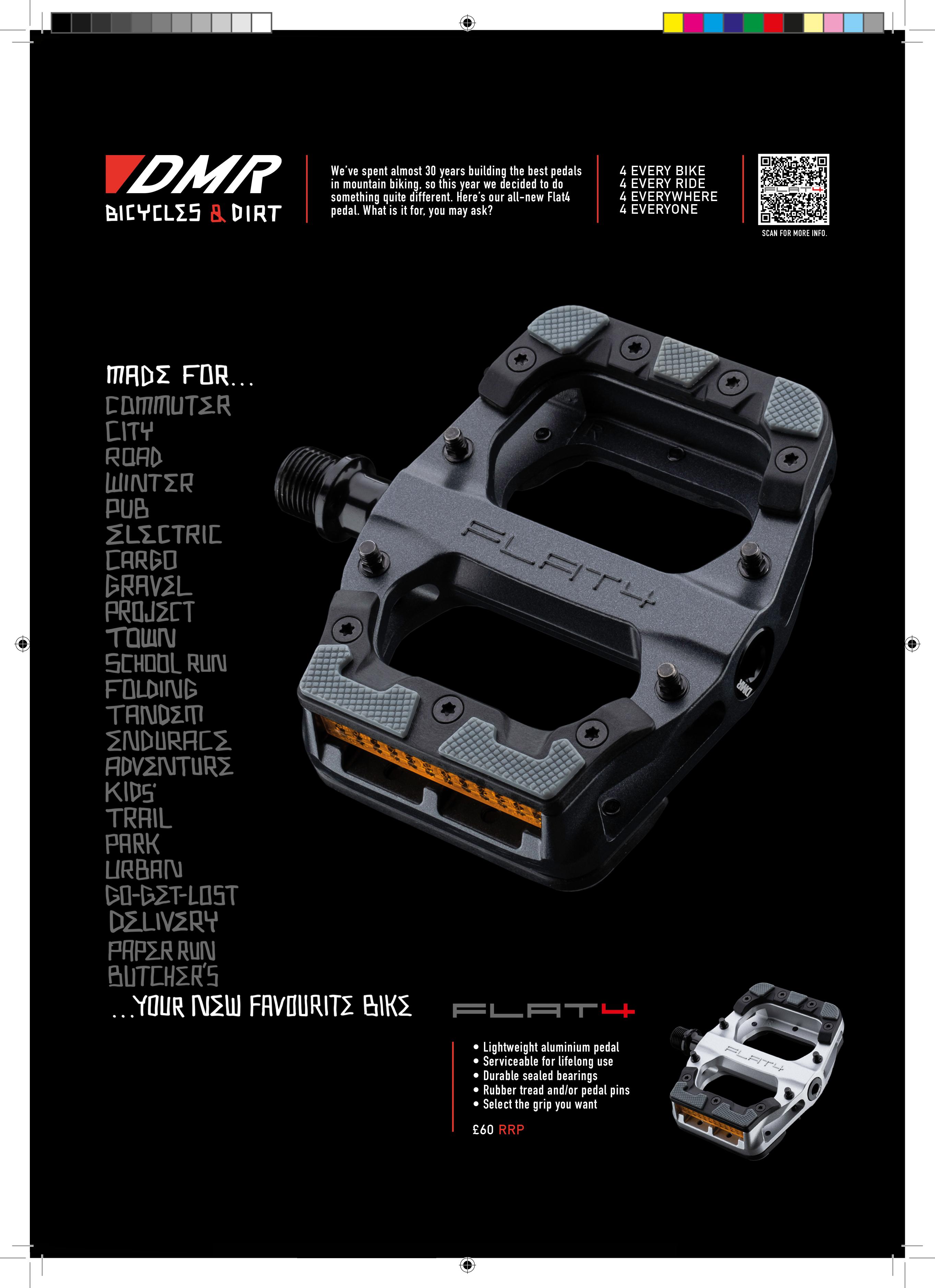






bob-elliot.co.uk bob-elliot.co.uk/twitter bob-elliot.co.uk/facebook bobelliot-online To find out more about Schwalbe and our extensive range of products, contact your area sales manager, email us at sales@bob-elliot.co.uk or call us on 01772 459887









bob-elliot.co.uk bob-elliot.co.uk/twitter bob-elliot.co.uk/facebook bobelliot-online To find out more about Schwalbe and our extensive range of products, contact your area sales manager, email us at sales@bob-elliot.co.uk or call us on 01772 459887

IN the final days before this magazine made its way to the printers, I was momentarily alarmed by all the controversial things that were mentioned within. Like placing the pieces of a jigsaw together and realising it’s a shocking image you’ve been making all along.
All of a sudden, you realise you’re printing stuff that could upset a sizeable proportion of the industry.
It’s not, believe me, coming from a place of wishing to be controversial and ruffle feathers for the sheer hell of it. Yet, here we are – talking about the future of C2W, how the industry is not always pulling in the same direction, questioning the sustainability efforts of the trade, arguing the trade is its own worst enemy when discussing price. And noting that the industry has a bunch of challenges to overcome of its own making, diversity, moving with the times, etc. Then we skirt around the uncomfortable topic that most industries will have to deal with sooner or later – balancing selling less product in favour of stuff that avoids landfill longer and working towards a business model that works within that framework. The controversy-ometer is definitely nearing the top of the scale.
So I hope you take it in the spirit it is intended: To help pave the way for positive change. To pose difficult questions in the hope that we’re all up to the challenge of answering them. And, ultimately, to highlight some of the stuff we need to work on for a sustainable (not just in the saving-the-planet sense) cycling industry.
And we publish this stuff in full realisation that we’re not all perfect here at CIN Towers (well, not all of us, anyway). Room for improvement, there is always plenty. Onwards.

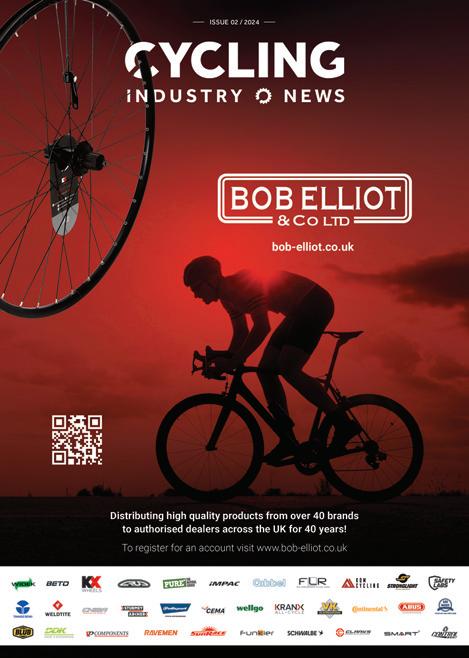
Is the workshop mechanic shortage conundrum unique to the UK? What is the solution? Does the challenge really matter to the industry at large? CIN picks through some difficult questions for the bike trade…

In an era where the ground has been shifting under the feet of the bike trade, there’s change afoot. The future of cycle to work is being hotly debated (see page 24), retail empires are struggling while others are being forged, and distribution businesses are in some cases reconfiguring.
“THE BASIC PROBLEM IS STILL THE SAME. I THINK YOU HAVE TO BE A CYCLING ENTHUSIAST TO BE ATTRACTED TO WORKING IN A BIKE SHOP.”
The spotlight has been on the survival of businesses within the trade, particularly during this lean spell. With the workshop a lynchpin for many independent bike dealers, there’s been a degree of focus here too, including on wage structures and the difficulty of retaining skilled mechanics and engineers not just for individual shops, but also for the trade as a whole (see CIN issue 1, 2024)
Depressingly, the situation is not confined to the UK. Cycling Industry News spoke with Markus Fritsch, Editor of German bike trade B2B mag Velobiz. He says: “In total, bicycle retailers in Germany employ 45,600 people. According to retail associations like the VSF in 2022 there have been some 18,000 open positions in bike shops nationwide.
“This number might have decreased since bike sales have been slower recently, but the basic problem still is the same.
I think you have to be a cycling enthusiast to be attracted to working in a bike shop. Income is lower than in most other mechanical jobs. Also, career options and working hours are less attractive compared to other industries.”
Germany’s local jobs market also presents a challenge for the nation’s cycle industry, he adds: “Many bike retailers also face a tough competition for mechanics from large manufacturers like the car industry,” Fritsch adds.
Paying higher wages for mechanics is a gloriously simplified answer to the issue. Intriguingly, for an industry that has long believed it easy to attract new talent, where there is no shortage of willing recruits, there is an issue about how fast talent is leaving it. As Fritsch observed, it’s not a problem unique to the UK.
“The limited number of cycle technicians has always been an industry challenge,” ActSmart Director Jonathan Harrison tells CIN. “But during the pandemic, with workshop demand at an all-time high, the restricted supply of experienced and qualified technicians came clearly into focus.
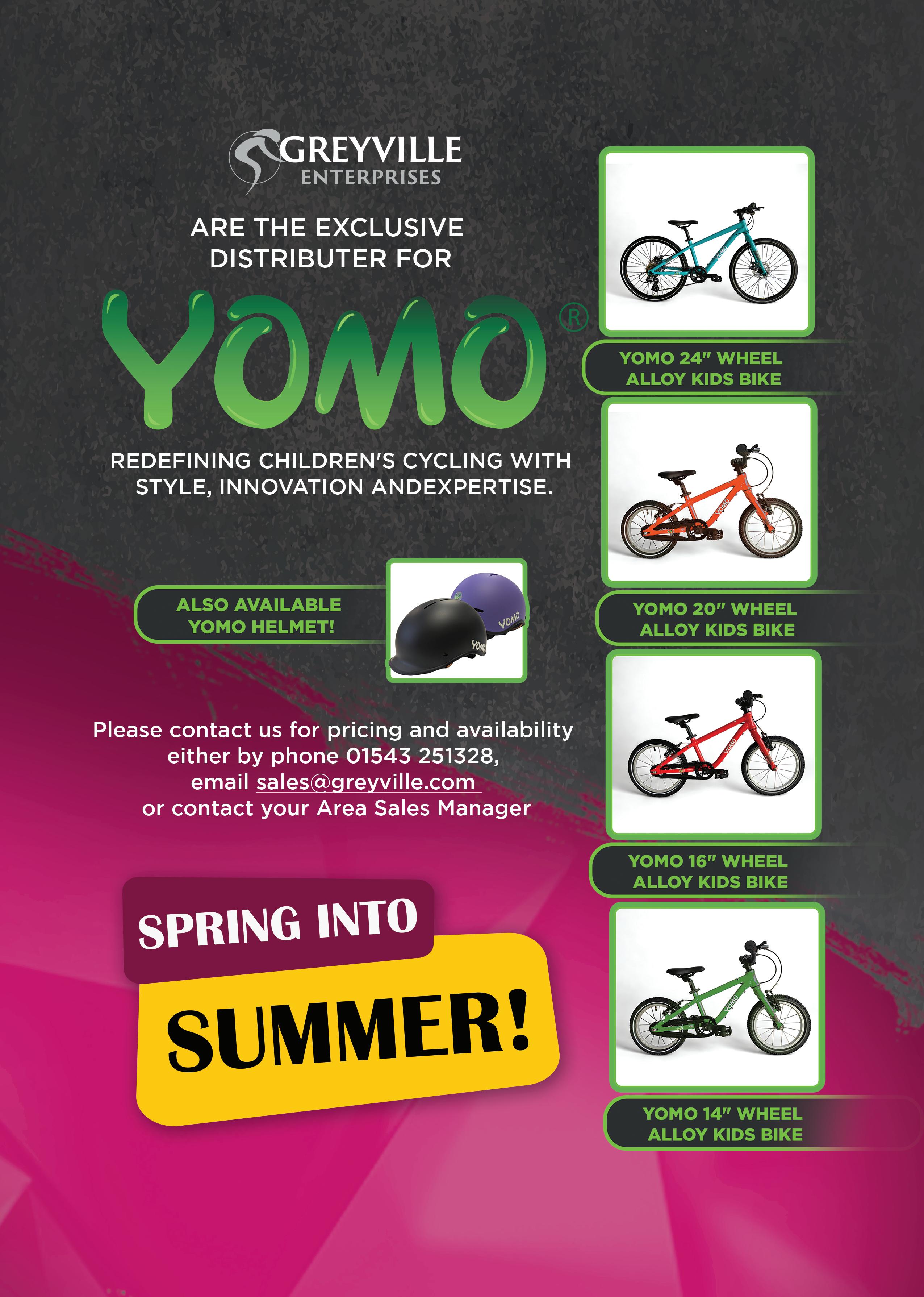
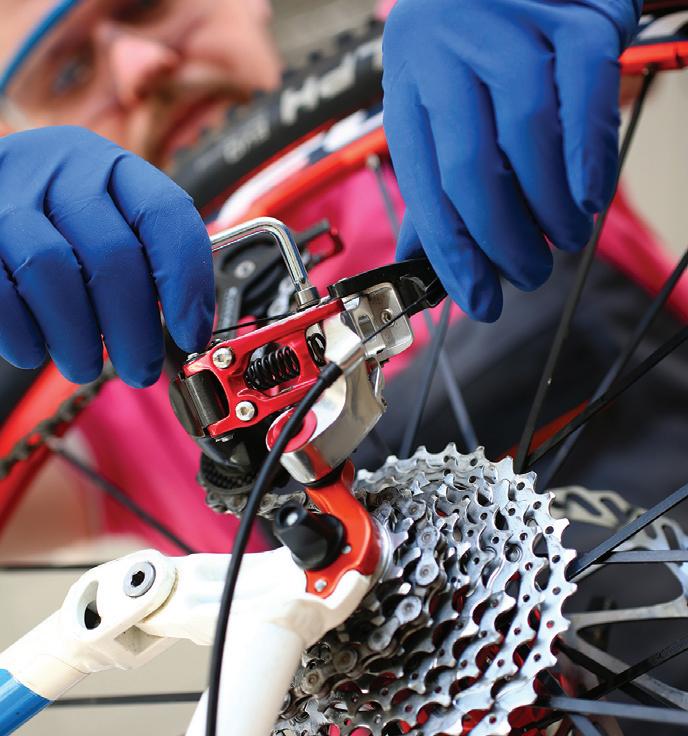
Gear change: The cycle boom rapidly dampened post-Covid, but growth in the proportion of the population cycling and requiring specialist workshop support continues
“ULTIMATELY, WE NEED TO RAPIDLY INCREASE MARKET ENTRANTS, INDIVIDUALS WHO WE CAN ASSIST TO GAIN A VALUABLE QUALIFICATION THAT THEY CAN USE TO DEVELOP A TECHNICAL CAREER.”
“And whilst the cycle boom rapidly dampened post the pandemic, the continued growth in the number of the population cycling and requiring specialist workshop support continues to put pressure upon the cycle trade and retail workshops in particular.”
Training cycle mechanics is clearly a key point relating to the issue. Cytech is probably the most recognised player in this area, and is aware of the challenges, Harrison explains: “Cytech, the leading technical skills programme for the cycle trade, is working hard to address the shortfall in skills resource and is seeking wider industry partnership and educational support in order to deliver solutions to this worldwide challenge.
“The comprehensive Cytech technical eBike course was developed to prepare the industry for the accelerated demand for eBikes and the industry should heed the warning from the motor trade and increase investment in this area now. Cytech recently launched a tailored eBike module in partnership with Giant and is focused upon increased industry partnerships internationally in areas such as course content, product endorsements and provision to training centres, new territory location expansion including workshop partnerships.”
Cytech Theory One, recently redesigned, is pitched as the lead introductory tool for a career in cycle technical and Harrison says that ideally all speciality cycle trade businesses would adopt this easy access online course as part of their essential staff induction and
retention programme (at trade discounted rates). That aside, however, the challenge is acute: “Ultimately, we need to rapidly increase market entrants, individuals who we can assist to gain a valuable qualification that they can use to develop a technical career across an international forum to benefit our trade.”
But does a shortage of bike mechanics really matter to the industry as a whole?
In theory, a shortage of talent often leads to increased wages, but with cash flow still an issue for many bike businesses, not least independent cycle retailers, that commercial phenomenon seems unlikely to pass at scale. As has often been noted, if consumers can be convinced of the need to pay well for bicycle servicing that would boost the workshop eco-system considerably. But with an industry firmly focused on fuelling the purchase of new bikes, rather than the need to spend money on maintaining existing models, there’s arguably a split in priorities for the trade.
Dangerous words maybe, but should the sustainability phenomenon see further momentum shift towards ‘make do and mend’ rather than ‘buy new and throw the old in landfill’ – a vision perhaps not as fanciful as it was a decade ago – the industry may find itself needing to shift its priorities and place even greater emphasis upon the workshop.
CIN will continue to delve into this topic. Views are welcome.
Have your say and email CIN at jon@cyclingindustry.news
• The industry broadly recognises that the workshop is crucial to the businesses of most independent cycle retailers and statistics gleaned by Cycling Industry News backs the assertion.
• Previous CIN Market Data surveys (2021) discovered that for a quarter of independent bike shops, the workshop represented a huge 81-100% of business. Just under a quarter of respondents said it represented between 21%-40% of business.
• CIN surveys have also born out the belief that mechanic salaries are a challenge. Also in 2021, CIN found that “improved wages for mechanics in line with an enhanced skillset” was among the top two factors that needed to be addressed to tackle the skills shortage in the bike industry, according to respondents.
• In 2022, the majority of survey respondents said the average mechanic salaries they pay was £20,000-£23,000 (24%). That statistic failed to change into 2023, against a backdrop of increasing inflation and sizeable wage rises in other industries (in part to mitigate inflation).
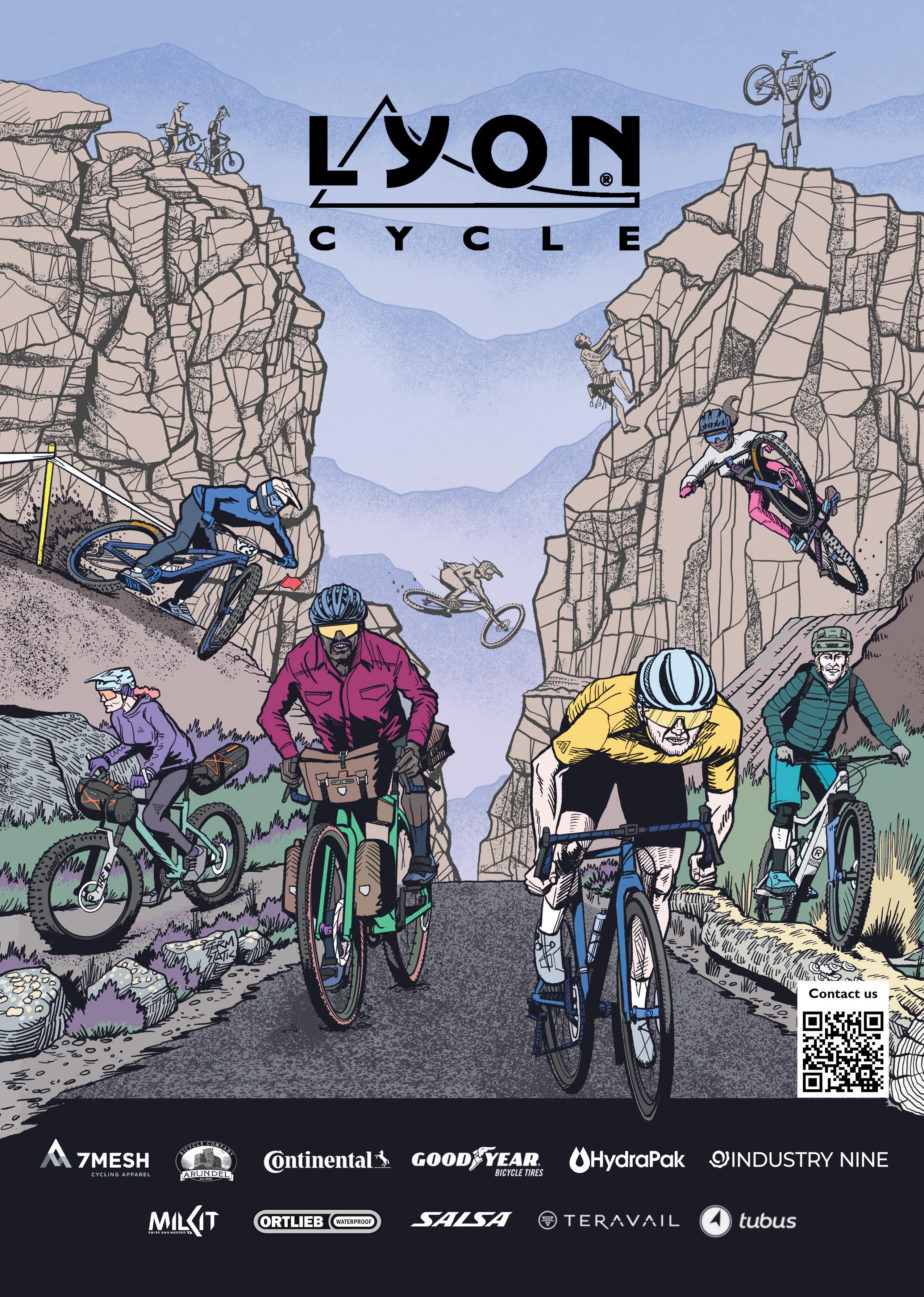
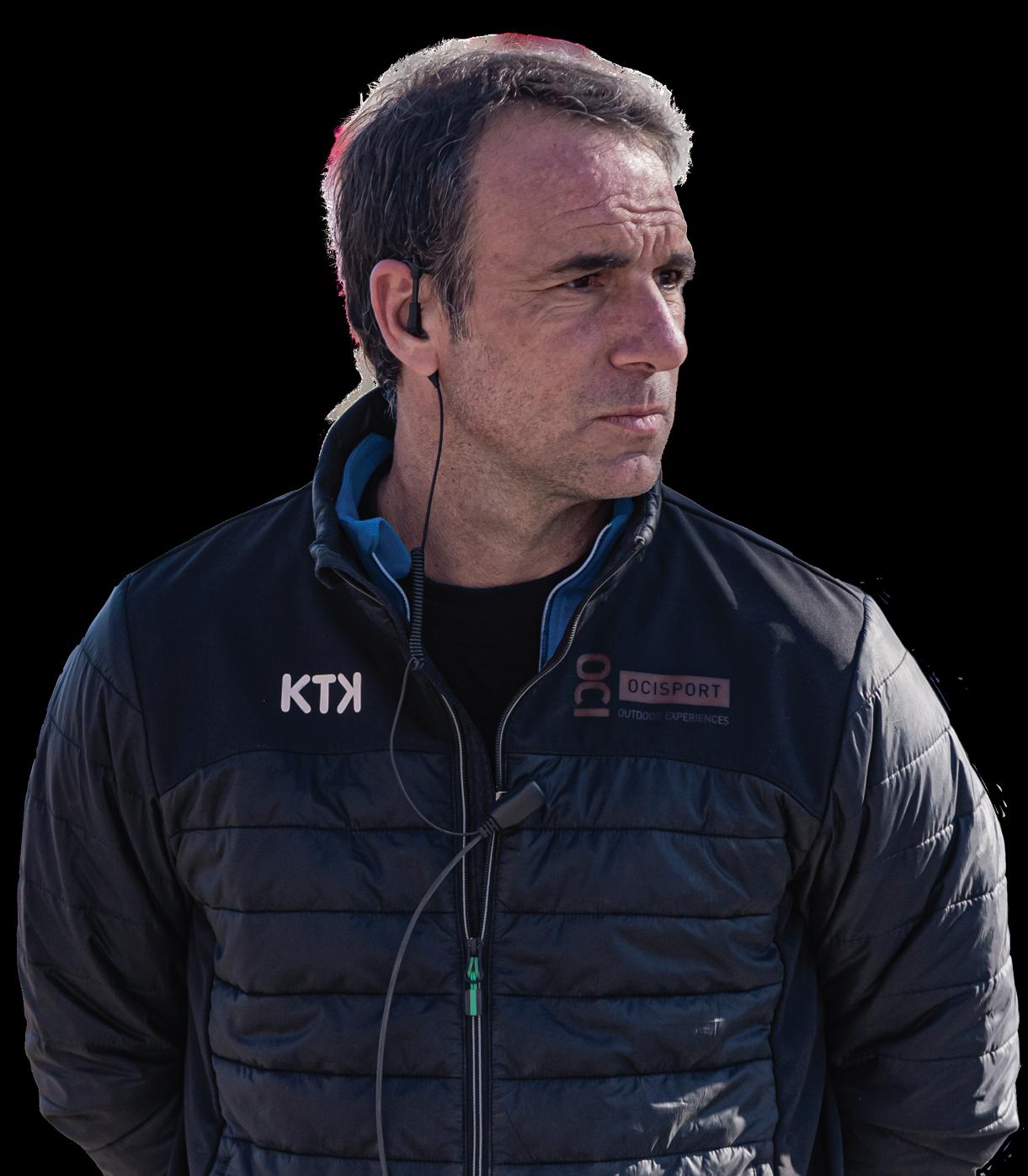
The countdown to Spain’s third Euro Mobility Festival is on. CIN delves into the growth of this sister show to Sea Otter Europe, which is tapping into Spain’s burgeoning ‘bikes as mobility’ market and helping bring new customers to the table...

Think cycling as mobility and there’s a fair chance that you don’t think about southern Europe. Curiously hewn from the same rock as the altogether wetter UK, the sport and leisure side of cycling tend to be the focus in Spain, Italy, Portugal, et al. Traditionally.
There’s plenty of nuance that upsets that sweeping generalisation. Barcelona is one such outlier, having invested millions in creating what it calls a “coherent, connected and complete” cycling infrastructure network, with an Urban Mobility Plan committing a sizeable influx of cycling infrastructre for that city’s residents and visitors. The city reportedly has the EU’s highest density of cars with all the noise and air pollution that comes with it (source: The Guardian) but recent years have seen it grow with more than 270km of cycle lanes, introduce infrastructure such as cycle traffic lights and boost pedestrianised areas to combat those issues.
A mere five hours by bicycle up the coast from Barcelona (or 40 minutes on the train) lies Girona, the setting for not only the expanding Sea Otter
Europe (SOE), but also the slightly newer Euro Mobility Festival, which runs alongside SOE.
“Catalonia, Barcelona, and especially Girona, are leading destinations in the world of cycle tourism, and also as centres of industry and development in the bicycle sector,” explains Albert Balcells, CEO of Ocisport – organiser of Euro Mobility Festival and SOE.
“Public institutions have been and continue to be betting for years on making cities more friendly [for cycling] with investments in infrastructure and promotion to develop and grow the use of bicycles as a healthy and sustainable means of transportation. It is no coincidence that festivals such as Sea Otter Europe in its eighth edition and now the Euro Mobility Festival in its third edition were born here and have become one of the world references in cycling and urban mobility festivals with more than 60,000 visitors and more than 400 brands present,” he tells CIN.
Born under the umbrella of Sea Otter Europe, the Euro Mobility Festival has “immense potential for growth”, says Balcells: “It goes far beyond the bicycle
sector. Car brands, motorcycles and many other transport sectors and technology, are entering urban individual sustainable mobility. We are seeing how growth is very rapid and we have a great demand for information and requests for space reservations, not only in the specific area of Euro Mobility Festival, but also within the traditional area of Sea Otter Europe.
“There are many brands of lifelong cycling which are also entering the urban mobility segment but do not want to change their historical location for years in the Sea Otter Europe venue, so it is difficult to say an exact number of exhibitors and meters occupied by the brands of urban mobility. Yes, it is true that in the specific area of the Euro Mobility Festival we have more and more stands and brands from the traditional world of cycling that have decided to change location due to strategic interest, apart from others from outside the cycling sector that also want to be present and as we said, there are a large number of brands located in the Sea Otter Europe area that also offer urban mobility innovations and solutions.”
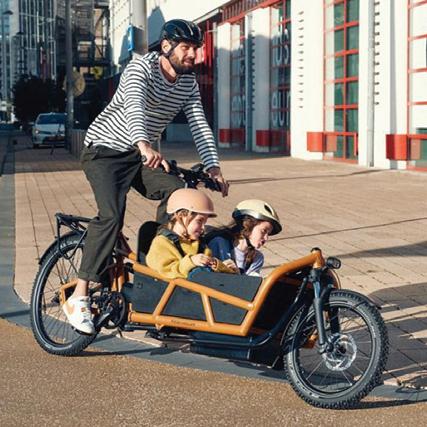
“THE PRESENCE OF THESE FESTIVALS IN GIRONA IS NOT ONLY HAVING AN IMPACT ON THE CITY, BUT ALSO ON THE ENTIRE REGION, AND IS CAUSING INDUSTRY, COMMERCE, TOURISM AND SUSTAINABLE MOBILITY TO EXPERIENCE A GREAT BOOST IN THE TERRITORY.”
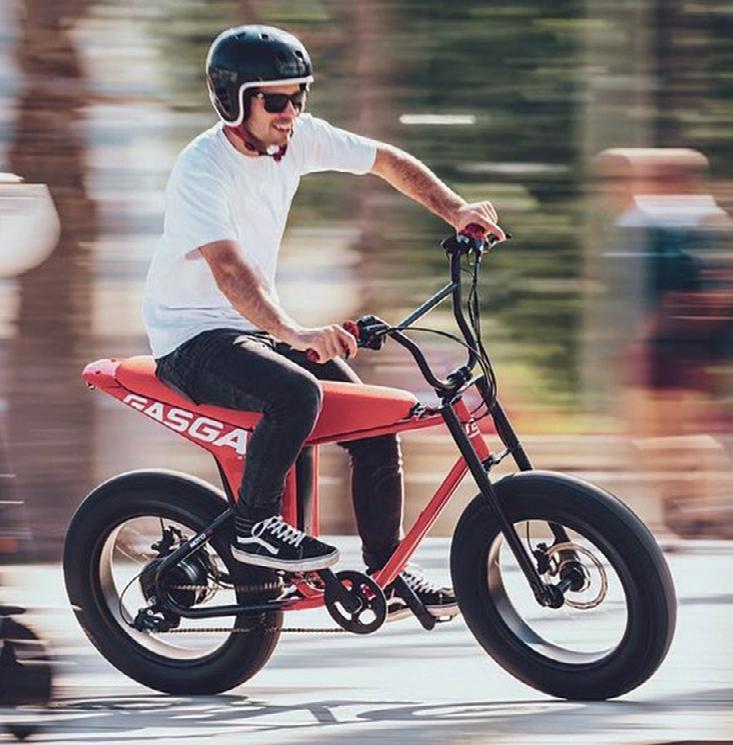
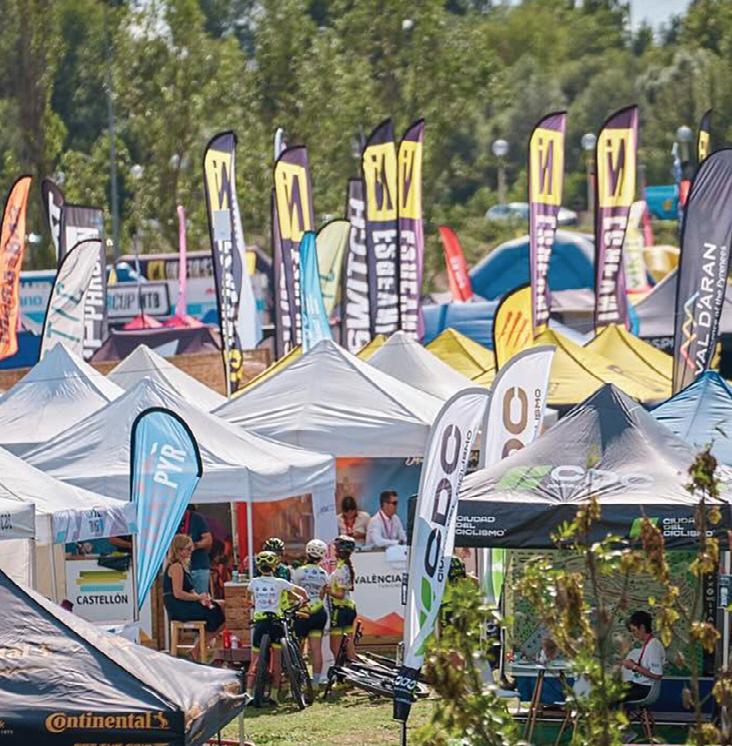

While it is useful for the industry to separate the mobility and sports/leisure side of cycling for commercial purposes, the reality is a bit more fluid than that. Labelling someone a commuter cyclist doesn’t mean they don’t step into baggy shorts and speed down mountains on two wheels at the weekend. That fluidity plays into the Euro Mobility Festival and Sea Otter Europe combo, says Balcells, adding that in some cases people are being recruited into cycling from the urban mobility side and then getting into leisure/sporty riding: “It is a trend that we are observing, but it is still something very incipient and we do not have concrete data about it. However, it is true that we see that a number of people who were not regular users of bicycles and of course not of the sports part, are now interested in participating in sports events and tests, coming from their initial experience in urban bicycles as an element of sustainable transportation. In the end everything is connected and there can be synergies between segments within the bicycle sector, and that is good.”
As for the Euro Mobility Festival itself, the ambition is for it to become
something fully autonomous, as this was the idea from the beginning: “The origin of the Euro Mobility Festival is something natural, there were already many brands that came to exhibit and that had a division oriented towards urban mobility. But within Sea Otter Europe they showed themselves more as sports brands. There was no problem in that regard. But brands solely focused on urban mobility did not seem to fit the sportier nature of Sea Otter Europe.
“The Euro Mobility Festival arrived and they started to have their own space, with their own communication and the ability to reach the audience they are looking for. They have more visibility and prominence. The Euro Mobility Festival was born under the umbrella of Sea Otter Europe when it had already been consolidated, now little by little the mobility festival is gaining strength, size and personality of its own, and we are sure that it will soon be a festival in itself in parallel to Sea Otter Europe.”
For now, the show remains part of the Sea Otter Europe package, something that continues to grow despite
the ticklish climate. Why are the shows on an upwards trajectory, CIN asks? Balcells believes it’s down to a multitude of factors: “The location in Girona, on the Costa Brava and in Catalonia, as places with a great cycling, sports and industrial tradition, an ideal environment for its practice, roads and trails suitable for all modalities, a climate perfect almost all year round for its practice, gastronomy, culture, support from institutions, and of course, a 360-degree festival model that includes an exhibition area, professional and amateur events of all modalities and styles, a large and free demobike with hundreds of bicycles available to visitors, gastronomy, music, fun for the whole family and all audiences, professional conferences... all of this together makes for success.
“The presence of these festivals in Girona is not only having an impact on the city, but also on the entire region, and is causing industry, commerce, tourism and sustainable mobility to experience a great boost in the territory,” he concludes.
euromobilityfestival.com
“AN
How can the bicycle industry become more climate and environmentally friendly? This question was one of the main topics at this year’s Taipei Cycle Show. CIN spoke with sustainability expert Erik Bronsvoort (Circular Cycling) about the progress of eco-friendly initiatives within Taiwan’s bicycle industry.
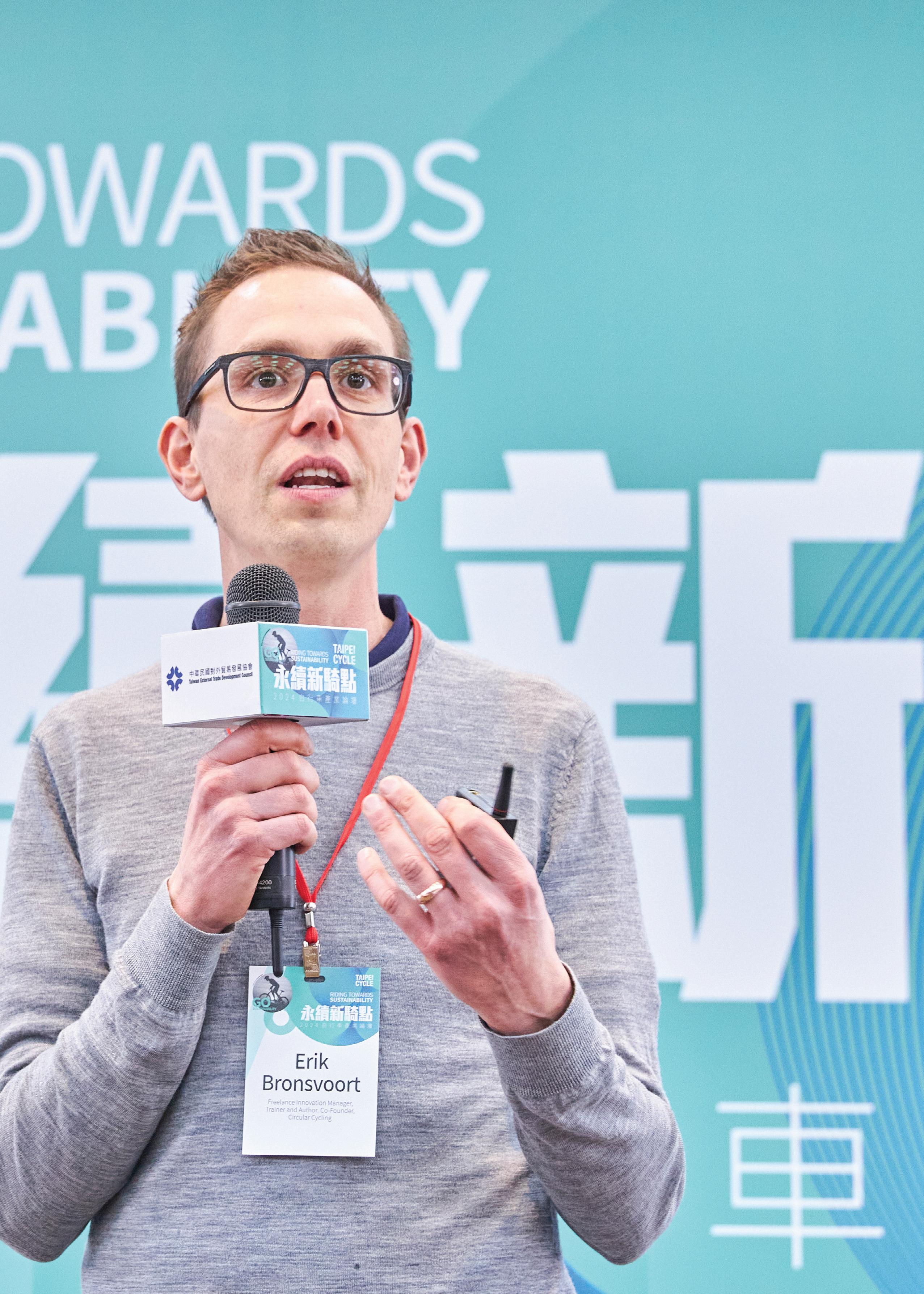
“To transition from our current linear economy of take-make-waste to a circular economy, marginal gains aren’t enough. The bicycle industry needs a revolution,” says Erik Bronsvoort. Since 2009, the Dutchman has been involved in sustainability projects in the construction industry, initially as an employee and later as a self-employed project manager, supporting both corporations and startups with his expertise. In 2018, he set up Circular Cycling to experiment with the circular economy concepts in the cycling industry. Today, the author of “From Marginal Gains to a

Bearings, bottom brackets, headsets, pulley wheels and professional tool solutions. From ABEC 3 bearings for day-to-day repairs to Maxhit™ and XD15 bearings which are guaranteed for life, Enduro Bearings cover all your workshop bearing needs.
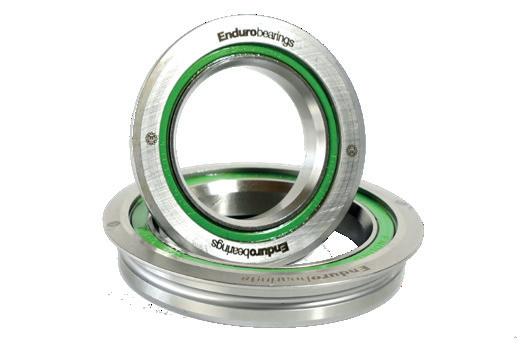





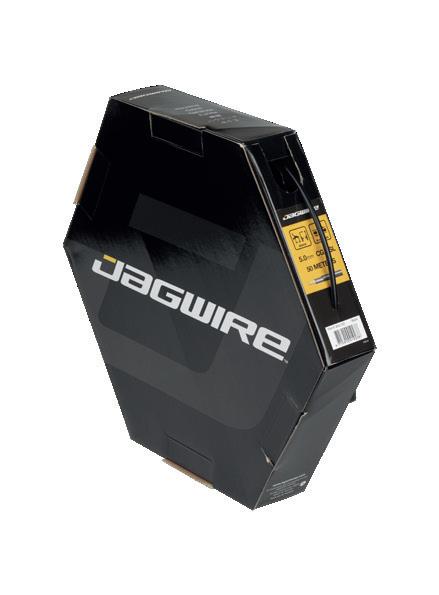
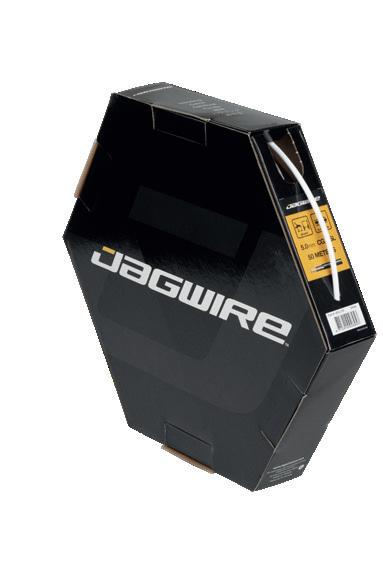

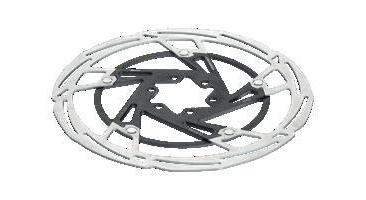

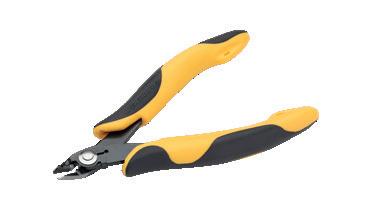


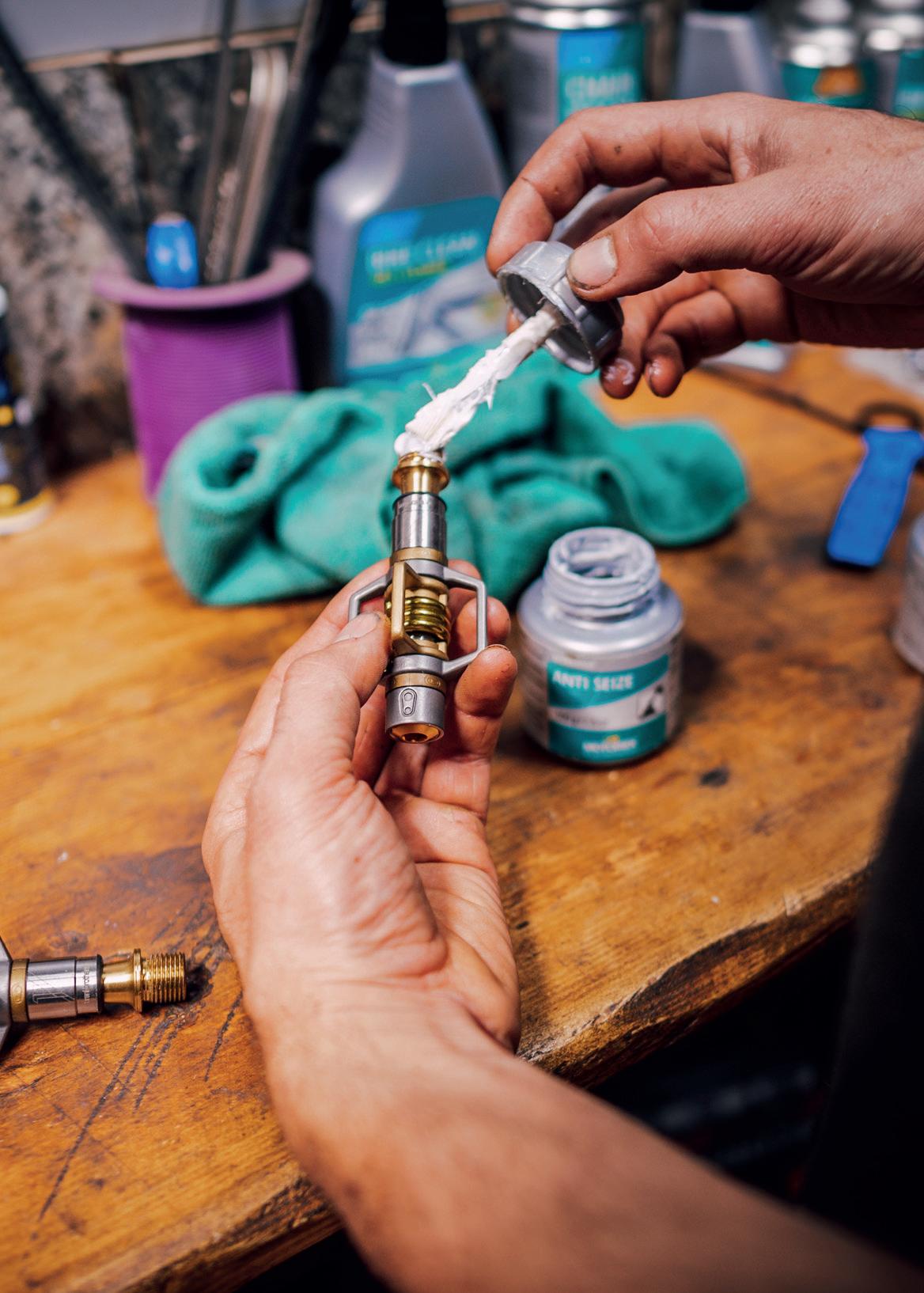
A comprehensive range of eco-friendly maintenance and care products including grease, lube, cleaner, fork oil and brake fluid, all produced in Switzerland and specially formulated for cycling.
A wide range of shift and brake cable systems, brake pads, hoses, disc rotors and problem solvers for both aftermarket and workshop use. Jagwire are committed to producing quality and consistent products at an affordable price.
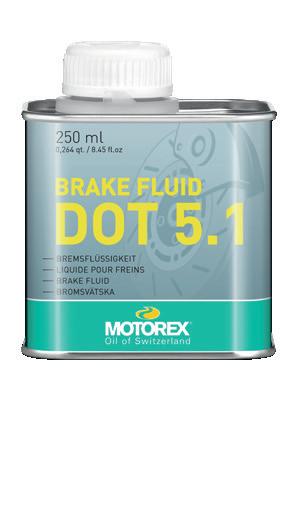
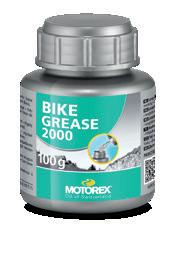

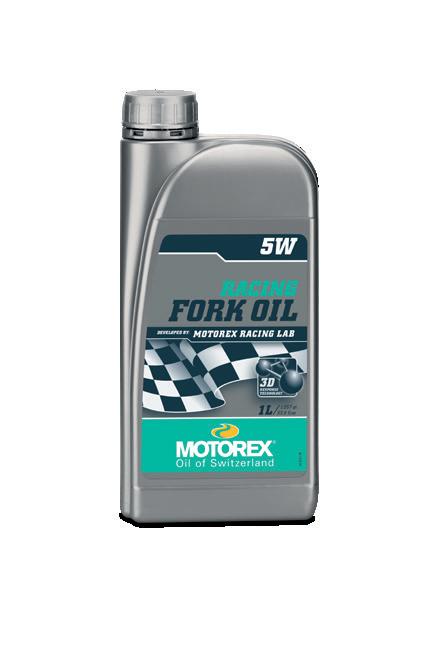

Extra UK is proud to exclusively distribute a number of leading workshop brands. Visit www.extrauk.co.uk to view our full product range, or email enquiries@extrauk.co.uk to request an account.
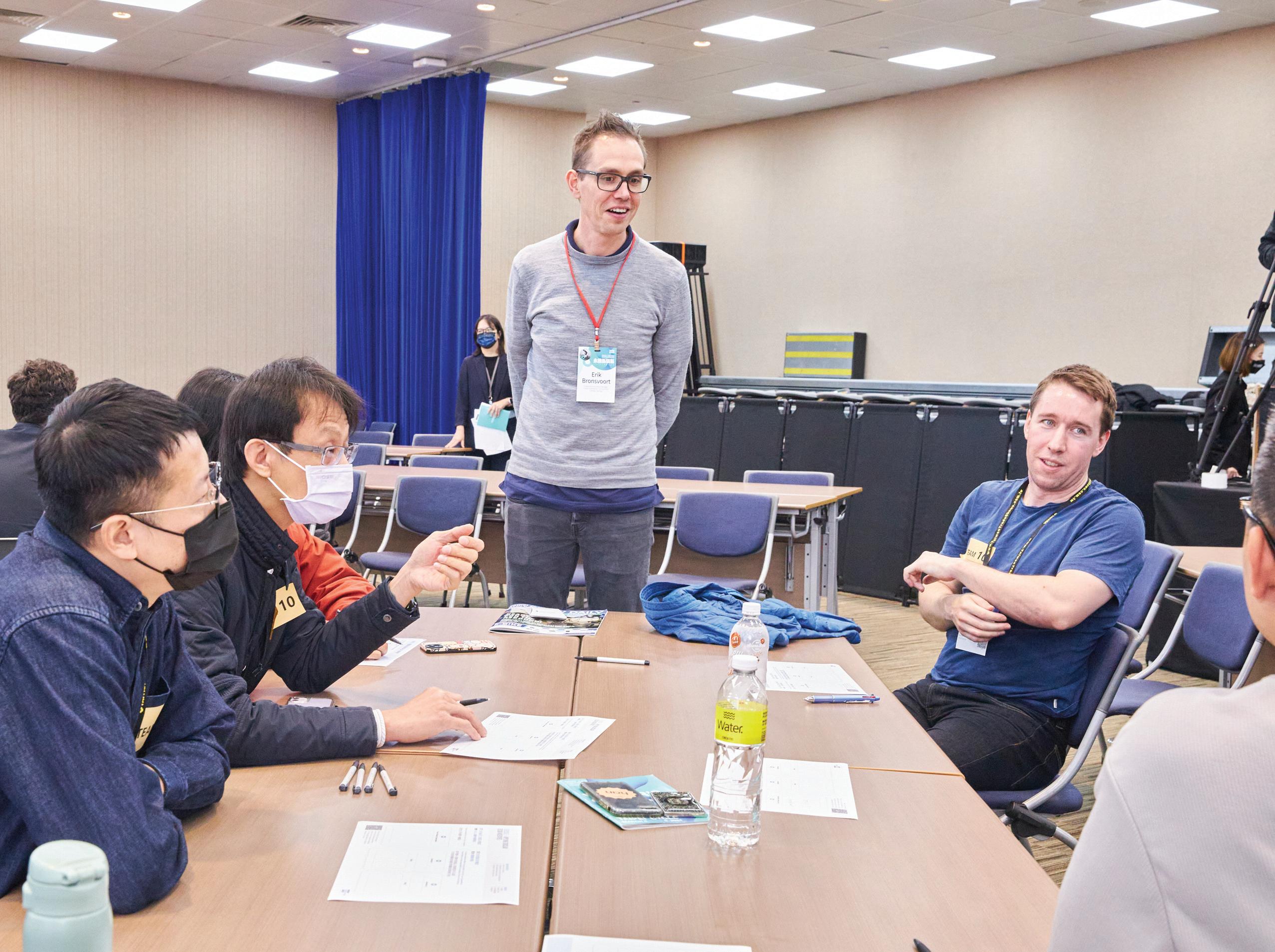
Circular Revolution” offers his services to the cycling industry through Circular Cycling, and he is a Director of Shift Cycling Culture, a non-profit organisation committed to making the bicycle industry more sustainable.
Bronsvoort also attended this year’s Taipei Cycle Show, where he conducted a workshop titled ‘How Circular Design Can Reduce Your Product Impact’ In addition, he evaluated the current sustainability ambitions of the Taiwanese bicycle industry. We asked Bronsvoort about his findings.
Mr Bronsvoort, How would you describe the status quo regarding sustainability in the bicycle industry?
Erik Bronsvoort: In my book ‘From Marginal Gains to a Circular Revolution”, I describe four stages of the sustainable industry transition: predevelopment, take-off, breakthrough and stabilisation. I think we are somewhere between the predevelopment and the take-off phase. The ‘predevelopment’ is a phase of experimenting and learning. Just a year ago, I thought the take-off phase was a few years away. But I have seen plenty of exciting
product launches recently. Products with an increased focus on longevity, repairability, refurbishment of bikes and parts, bio-based frame materials, new business models, etc.
The Taipei Cycle Show confirmed this trend: the narrative is changing and exciting to witness. For too long, bike manufacturers relied on the inherent green credentials of cycling, with minimal focus on making production processes environmentally friendly or thinking about product longevity
“RECENT ADVANCEMENTS IN MATERIAL RECYCLING, SUPPLY CHAIN OPTIMISATION, AND THE CREATION OF ECO-FRIENDLY BIKE COMPONENTS ARE PROPELLING THE INDUSTRY TOWARDS A MORE SUSTAINABLE FUTURE.”
and the end-of-life. Now, we’re on a transformative path. Recent advancements in material recycling, supply chain optimisation, and the creation of eco-friendly bike components are propelling the industry towards a more sustainable future. However, we still have a long way to go. While numerous companies are embarking on green initiatives, a unified, industry-wide effort is still missing.
Sustainability was one of the key topics at this year’s Taipei Cycle Show. What are your takeaways from the fair?
I was genuinely impressed by the increasing focus on sustainability. The organisers in Taipei had set up different events, workshops and keynotes about the topic. It’s good to see the industry acknowledging sustainability and actively engaging with it. There was also news from interesting industry initiatives like the Bicycle Alliance for Sustainability (BAS). However, many companies still start to act only because the governments want them to, and they need to comply. But they don’t understand why this is important.
Massive range, Excellent availability, Next day delivery, Great prices.
No wonder they call Chicken CycleKit the Kings of

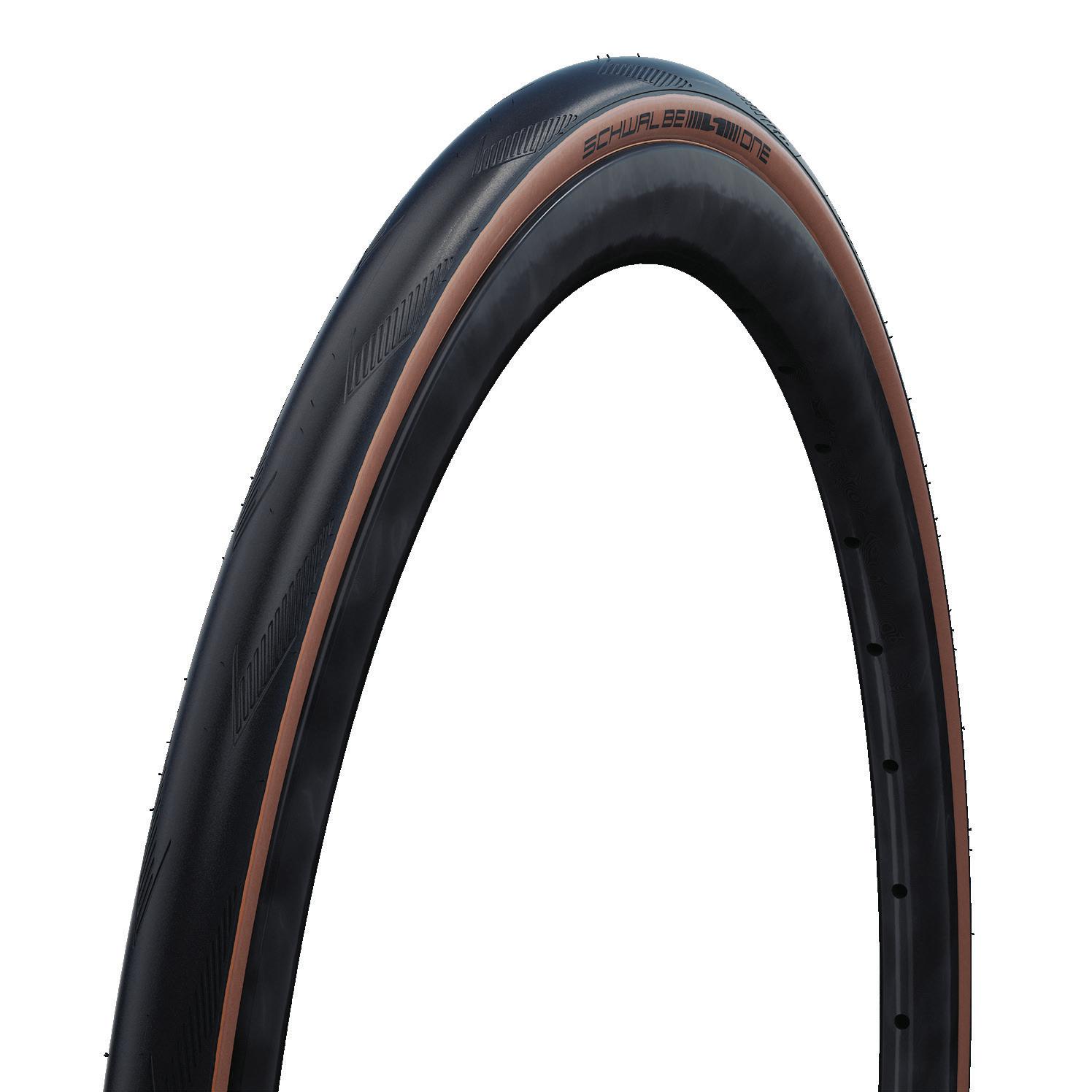
www.chickenb2b.co.uk
“The narrative [on sustainability] is changing and it's exciting to witness”
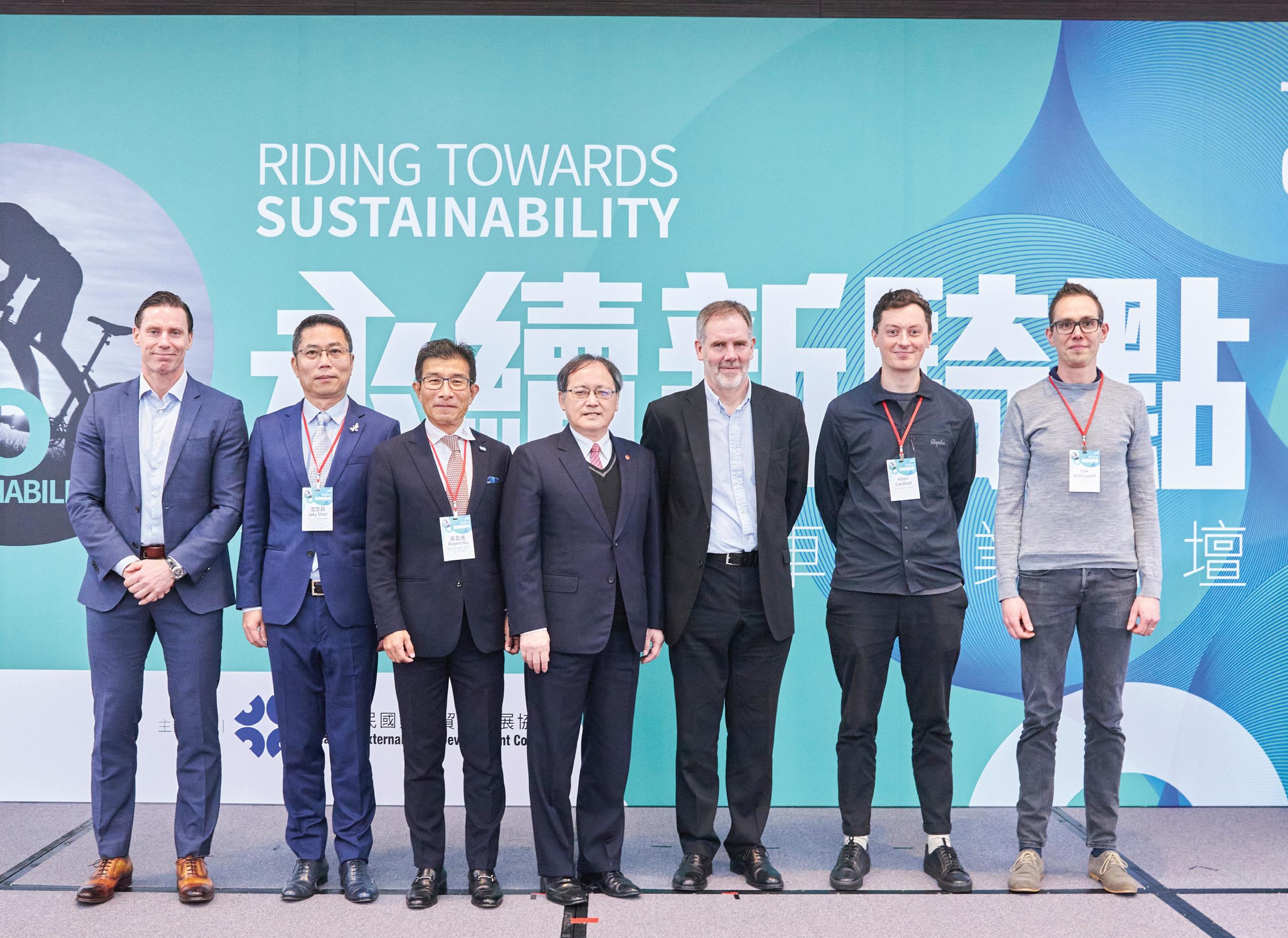
The Bicycle Alliance for Sustainability (BAS) is an initiative specifically for the Taiwanese bicycle industry. Can you tell us more about it?
With nearly 80 companies coming together, BAS focuses on measuring and reporting emissions, providing training, and even offering financial incentives supported by the Taiwanese Bicycle Association. Companies are collaborating, sharing knowledge and learning from one another. This collaborative effort, especially in auditing carbon footprints, has positioned some Taiwanese suppliers ahead of their European counterparts – a very interesting development.
Why is it so crucial that the Taiwanese bicycle industry has started to become more sustainable?
The most significant environmental impact within the cycling industry arises from the extraction and production of materials used in bicycles, such as steel, aluminium and carbon fibre. Taiwan is one of the main production locations where these materials are turned into parts and brands from all over the world depend on the Taiwanese bicycle industry. Therefore,
the steps taken by the Taiwanese manufacturers are essential for the entire cycling industry. I also believe that such initiatives offer the Taiwanese industry a significant chance to differentiate itself from competitors in the near future.
“A STANDOUT SECTOR WHERE SUSTAINABILITY IS CLEARLY GAINING TRACTION, AND WHERE COMPANIES ARE MAKING COMMENDABLE PROGRESS, IS THE TYRE INDUSTRY. NOTABLY, VITTORIA, SCHWALBE AND THE NEWCOMER RETYRE ARE ADVANCING TOWARDS TYRES MADE IN A MORE CLIMATE AND ENVIRONMENTALLYFRIENDLY WAY.”
Are there any product-related developments that stood out to you in a particularly positive way?
A standout sector where sustainability is clearly gaining traction, and where companies are making commendable progress, is the tyre industry. Notably, Vittoria, Schwalbe and the newcomer reTyre are advancing towards tyres made in a more climate and environmentally-friendly way. Schwalbe has initiated its recycling programme, making strides within the industry. Although it’s not flawless, the movement towards improvement is evident. I also like that the tyre manufacturers I mentioned are open and honest about their efforts. I believe this sets a precedent for the rest of the industry on how to tackle this issue.
It sounds quite positive, indeed. But are there any downsides?
At the Taipei Cycle Show, there were significantly more commitments to sustainability compared to the last Eurobike. However, it’s often unclear why a product or a production process is genuinely more sustainable. Unfortunately, there’s a lack of transparency in many areas. As many companies
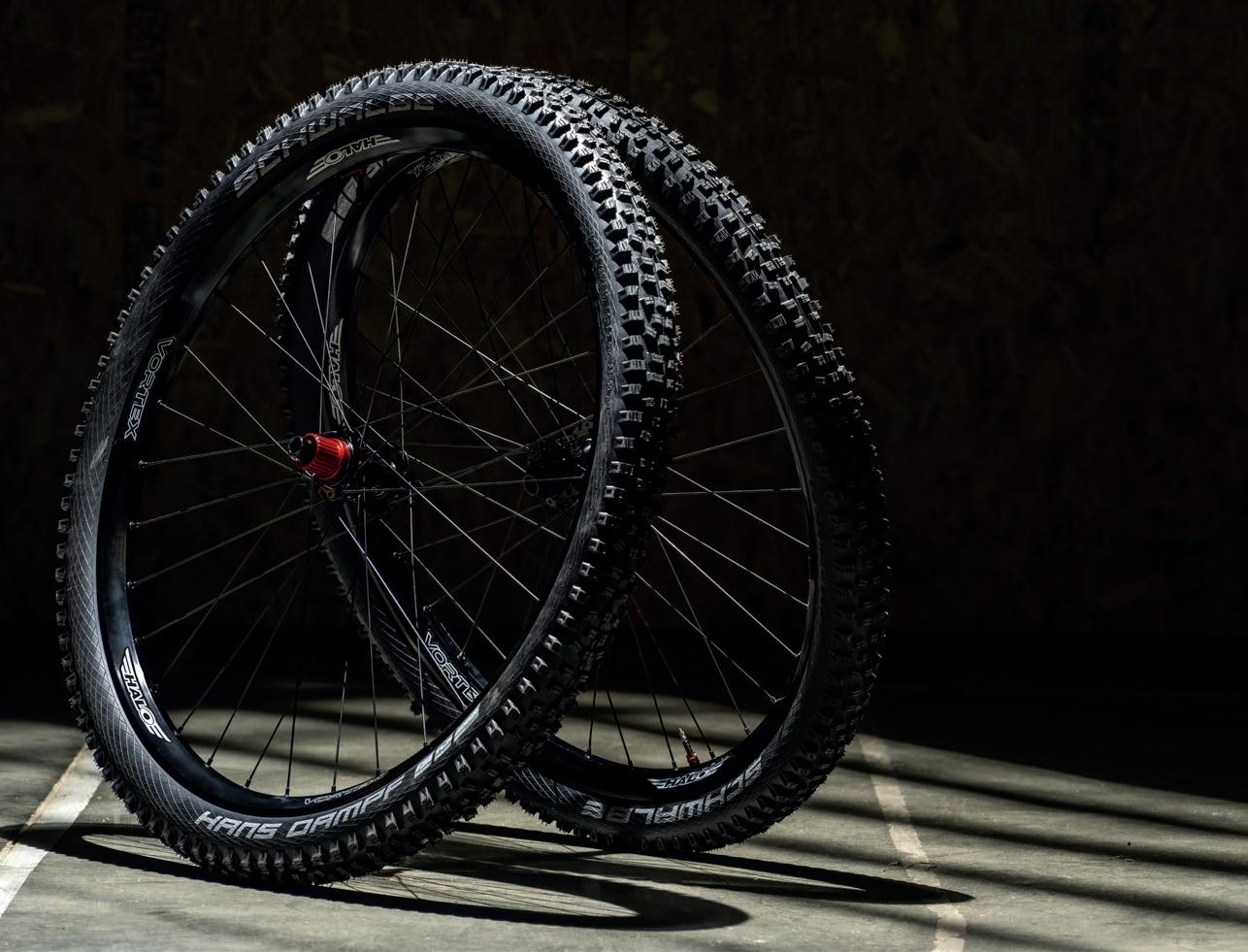
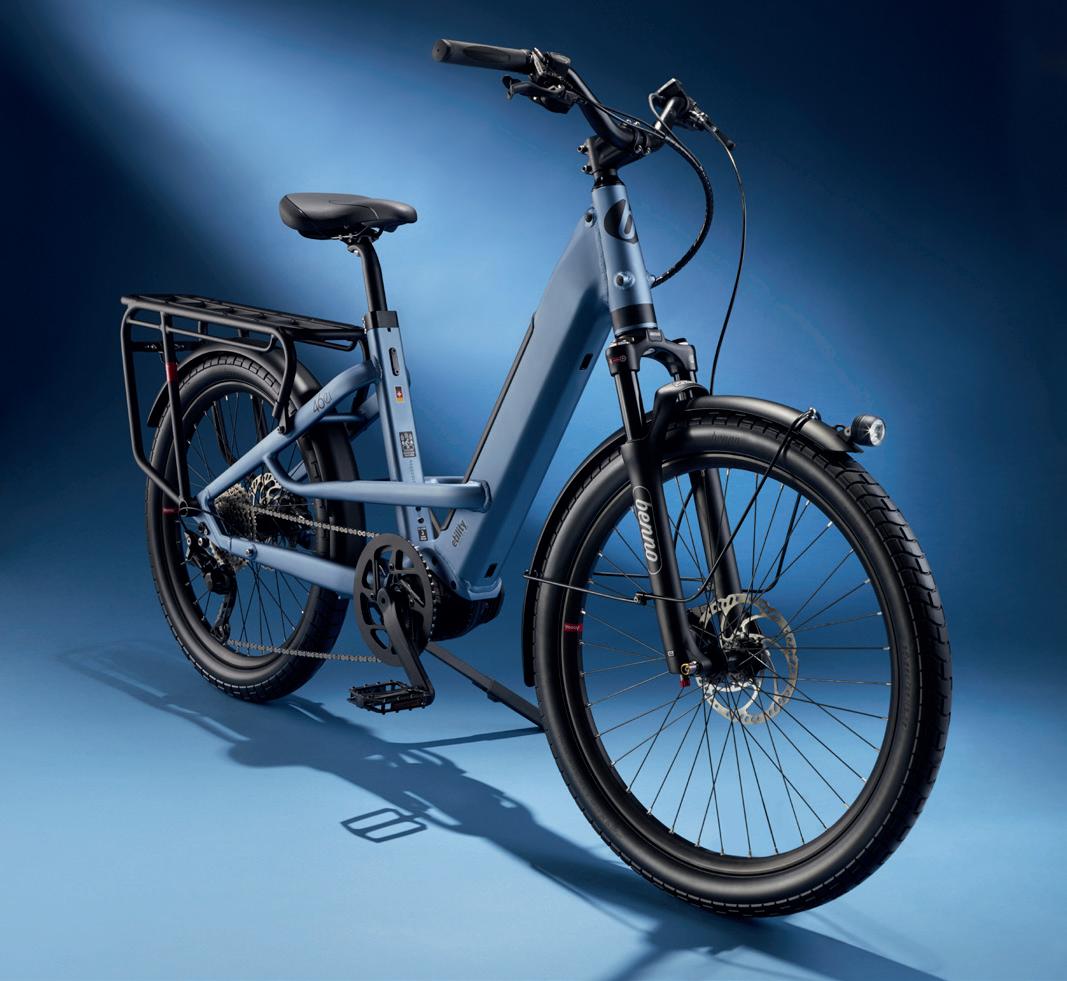
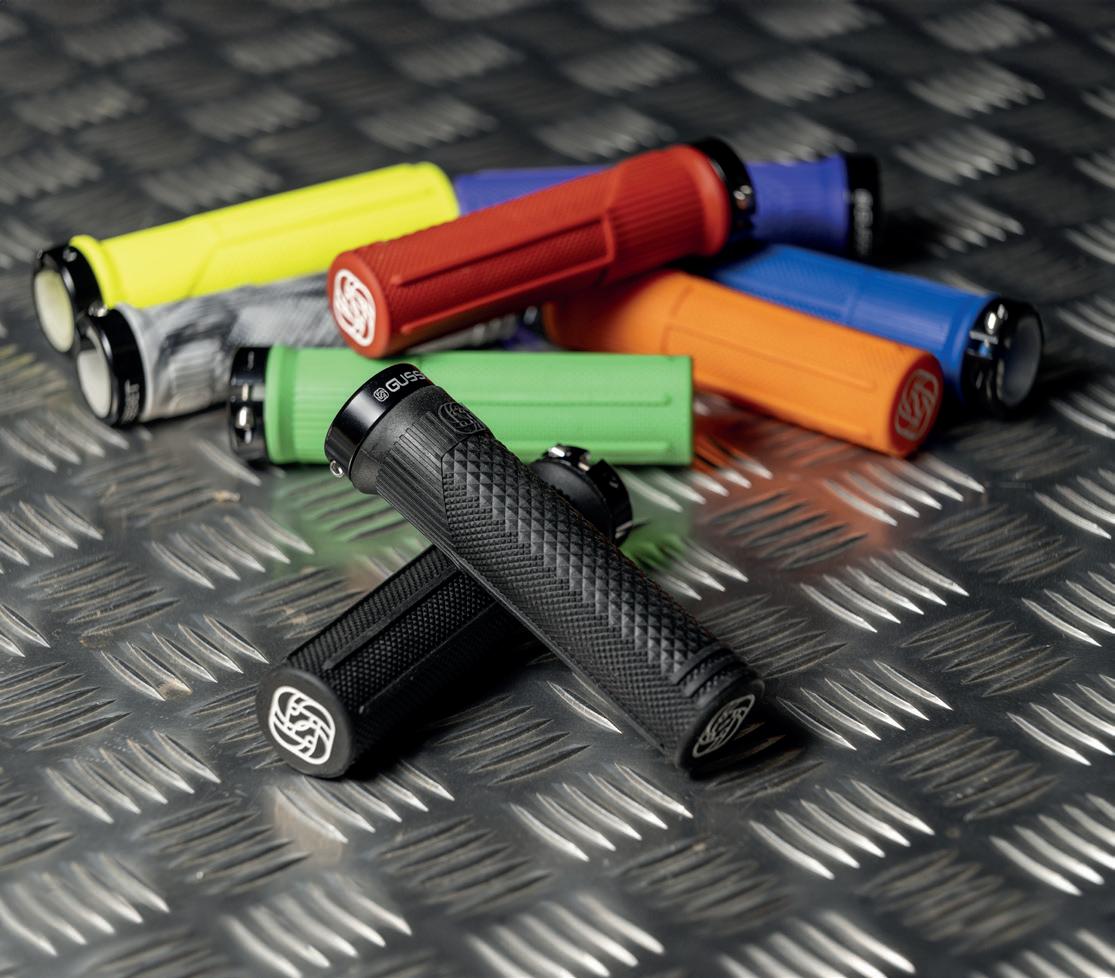
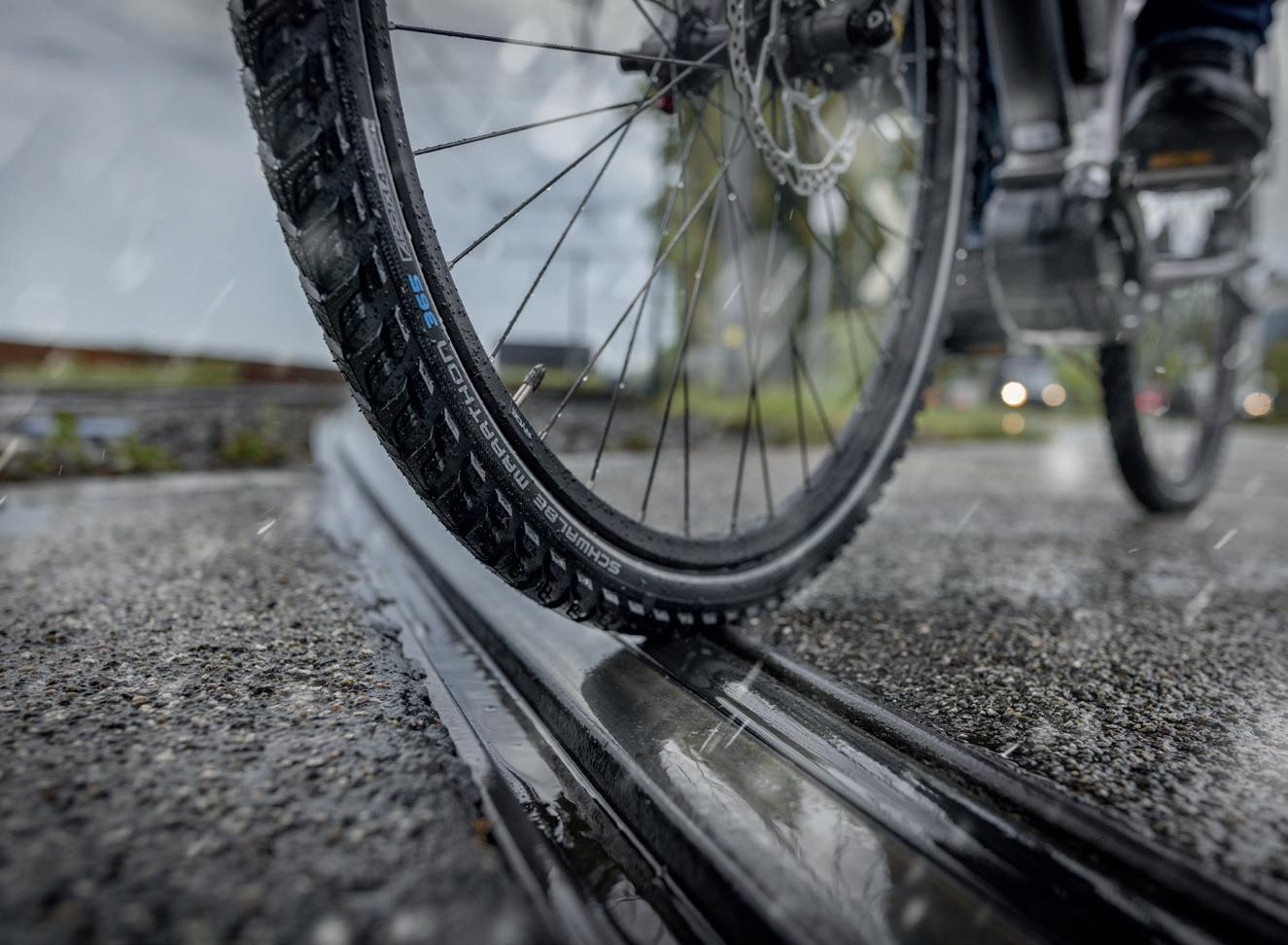
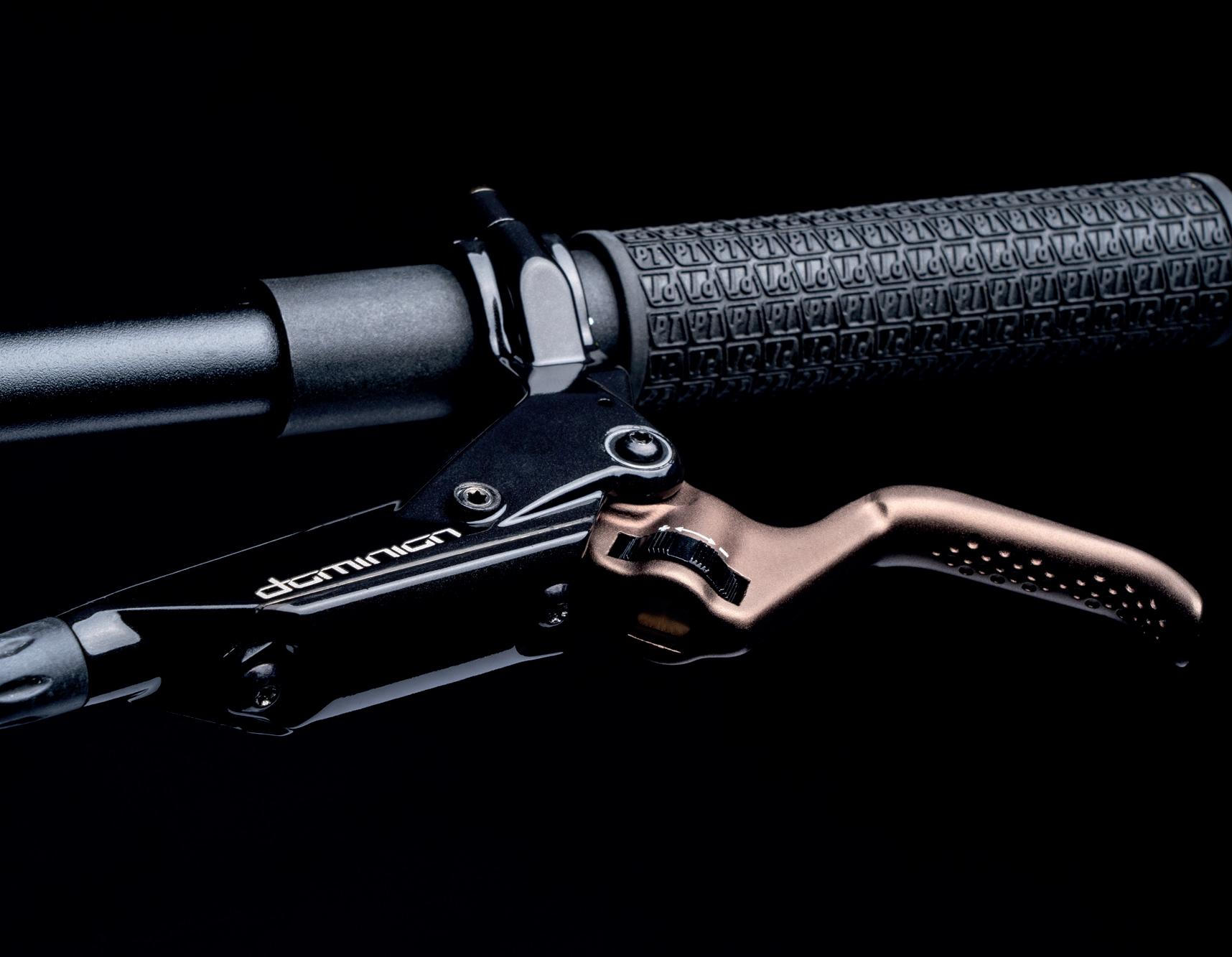
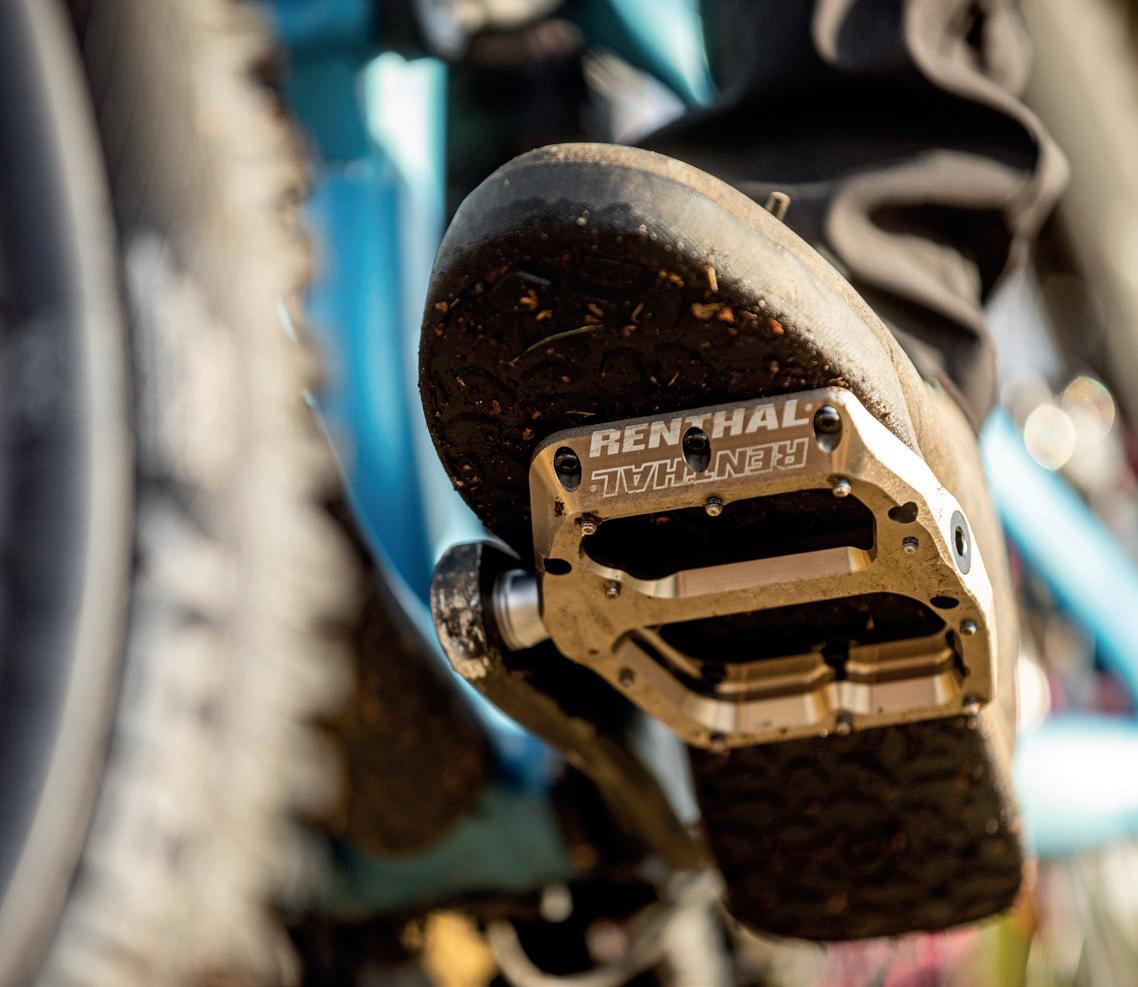

feel the need to catch up as quickly as possible, greenwashing also becomes a topic. At some booths, I had conversations where the staff themselves didn’t know why their product was greener than a similar competitor’s product. This is an issue we need to pay more attention to.
The European Parliament is currently discussing criteria to prevent companies from making misleading claims about the environmental merits of their products and services. How will future regulations like this affect the bicycle industry?
They will significantly impact the entire supply chain. The Green Claims Directive is just one law that can influence it. The EU Green Deal comprises a set of new EU regulations to achieve climate neutrality and a fully circular economy by 2050. Several laws that affect the cycling industry have been
introduced in the last few years.
These include the Carbon Border Adjustment Mechanism (a tax on CO2 emissions from production outside the EU), a CO2 tax on shipping and airlines, the Battery Directive (requirements for longer battery life, repairability, and recycling), and the European Ecodesign Directive (establishing standards for durability, reusability, upgradability, repairability, end-of-life, as well as mandatory carbon footprint declarations and a digital product passport).
All products sold in the EU will be subject to these laws, impacting companies with the largest carbon footprints the most. Conversely, proactive Taiwanese companies that manage to reduce their carbon footprints and collaborate with customers on designing circular products will benefit.
Assuming the bicycle industry has now recognised its responsibility, what are the next obstacles it faces?
While there’s a long journey ahead, the growing awareness and proactive steps within the industry are encouraging. The next challenge is to sustain this momentum and foster more cooperative efforts. Another obstacle will be for manufacturers to realise that the goal isn’t just to launch new shiny bikes but also to offer solutions that improve the repairability and lifespan of their products. My workshop in Taipei was hopefully the first of many. Building knowledge about the circular economy, including both business models and design, is crucial for making this transition happen
www.circularcycling.nl
Words: Werner Müller-Schell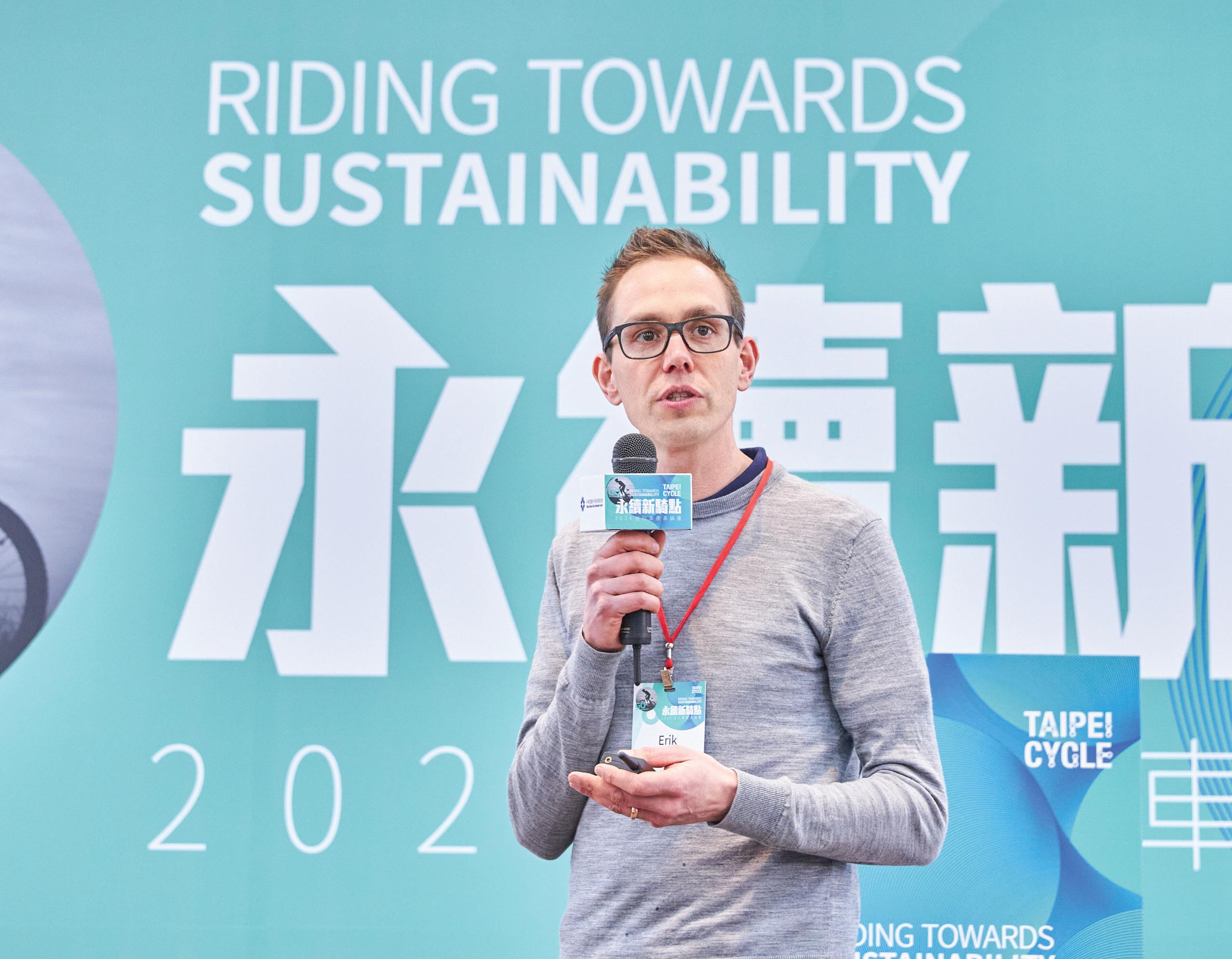
“THE EUROPEAN PARLIAMENT IS CURRENTLY DISCUSSING CRITERIA TO PREVENT COMPANIES FROM MAKING MISLEADING CLAIMS ABOUT THE ENVIRONMENTAL MERITS OF THEIR PRODUCTS AND SERVICES.”
YOUR PARTNER TO HELP YOU BUILD YOUR BUSINESS
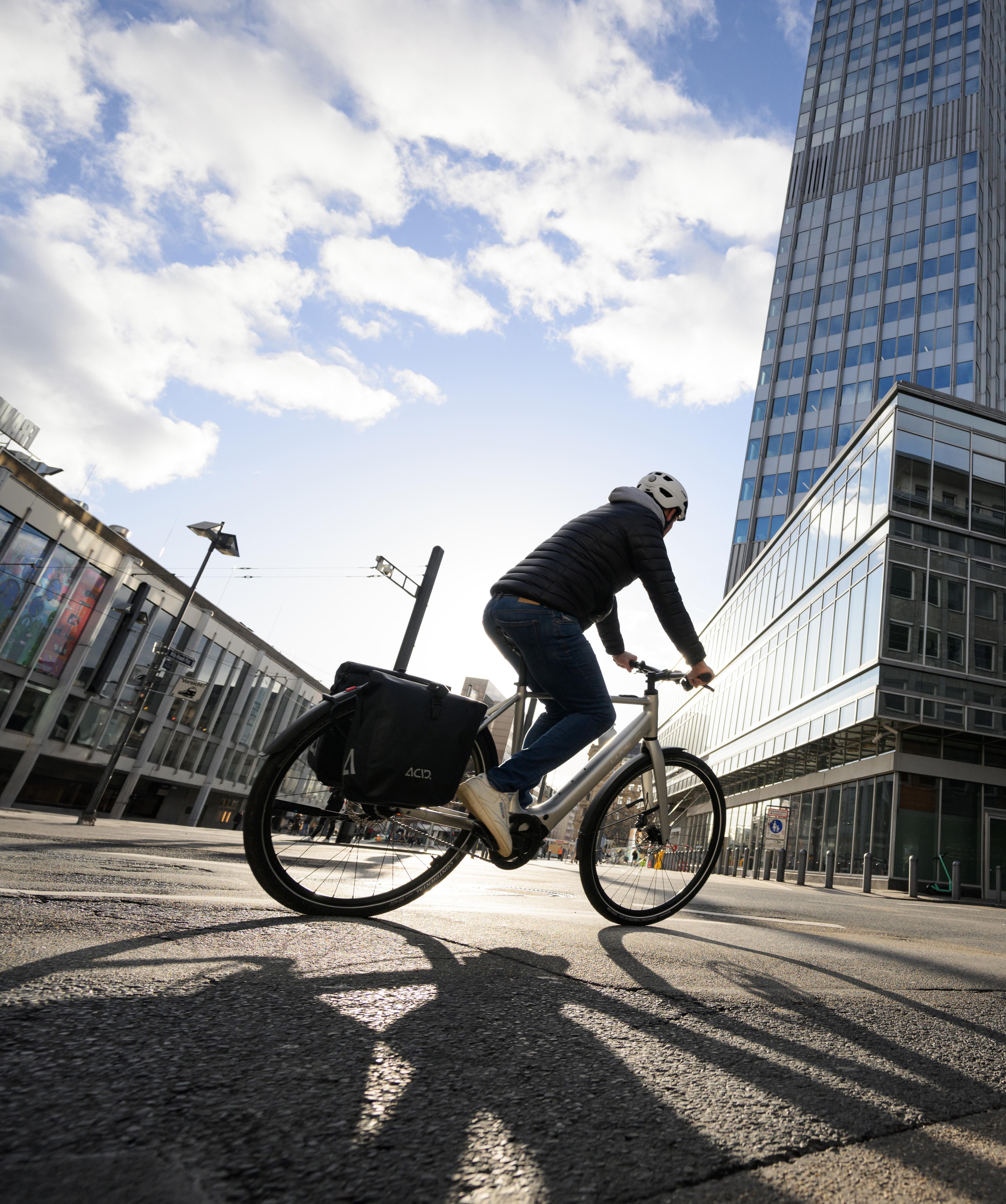


√ 24 years of experience

√ Customer & sales support
√ Customized marketing activities
√ Delivery from stock
√ Place orders 24 hours a day 7 days per week
For more info about our brands, send a message to sales@onewaybike.nl or give us a call: +44 1527 958331
Website: shop.oneway.bike

held back by the current economic lull, the looming threat of counterfeit products does pose a sizeable threat to the dynamic R&D nature of the industry. Anna Taylor-Maughan, CEO of IP Moat, talks IP protection for cycle brands…

In the vibrant world of cycling, where innovation propels us forward and passion fuels every pedal stroke, the importance of Intellectual Property protection cannot be overstated.
As cyclists from all walks of life seek the next breakthrough in speed, comfort and efficiency, cycling brands and manufacturers are constantly at the drawing board, designing the future of cycling. However, this relentless pursuit of innovation is under threat from a persistent and pervasive adversary: counterfeit products.
The cycling industry is a testament to human ingenuity, with advancements ranging from aerodynamic frames to electronic gear shifts transforming how we ride. Each innovation not only represents significant research and development investments but also embodies the unique vision and identity of its creators. It’s these innovations that IP protection seeks to safeguard, granting inventors and companies the exclusive rights to their creations and ensuring that they reap the benefits of their investments.
Despite the clear frameworks established by IP laws, the cycling industry faces a daunting challenge in the form of counterfeit products. These knockoffs, often of inferior quality, not only divert revenue from legitimate businesses but also often pose serious safety risks to unsuspecting consumers. Counterfeit parts, accessories and tools are being made using an identi-
cal design however being manufactured using an inappropriate or damaging material. When these products reach the consumer they cause customer disappointment and tarnish the reputation of the original manufacturers by association.
The rise of e-commerce has only exacerbated the issue, providing counterfeiters with a global platform to reach unsuspecting customers. The anonymity afforded by the internet, coupled with the complexity of international law, makes it increasingly difficult to track and combat these illicit operations.
To combat these challenges, the cycling industry leverages various IP protection strategies. Patents, for instance, protect the functional aspects of new inventions, from innovative frame designs to novel braking systems. Trademarks, on the other hand, safeguard brand identities, ensuring customers can distinguish authentic products from fakes.
Once these forms of protection have been acquired, enforcing them, especially across global marketplaces, can always been daunting. To counter this, a number of cycling brands such as Ass Savers and Rehook have begun to rely on a new innovative IP protection solution from IP Moat. IP Moat offers a platform to monitor and remove counterfeit listings with the click of a button. Helping brand owners monitor infringements as they emerge and take back control of their product identity,
through an easy-to-use dashboard.
The fight against counterfeit products in the cycling industry is ongoing, requiring a concerted effort from manufacturers, governments, and consumers alike. While IP protection offers a robust toolkit to safeguard innovations, its effectiveness hinges on global cooperation and enforcement.
As consumers, we hold a power of our own in this battle: the power of choice. By prioritising authentic products and staying informed about the risks of counterfeits, we not only protect ourselves but also support the continued innovation that drives the cycling industry forward.
As brand owners, we must not sit by and allow our industry to be a victim to the counterfeit world. We must be proactive in searching and removing these counterfeit listings, taking back control of our brand reputation. Companies such as IP Moat provide the tools to do this without the high cost commanded by the legal sector.
In conclusion, IP protection is not just a legal necessity but a cornerstone of the cycling industry’s future. As we pedal towards new horizons, let us ensure that the road ahead is paved with integrity, safety and the rightful recognition of innovation. Together, we can keep the wheels of progress spinning, fuelled by creativity and protected by the steadfast shield of IP rights.
www.ipmoat.ai
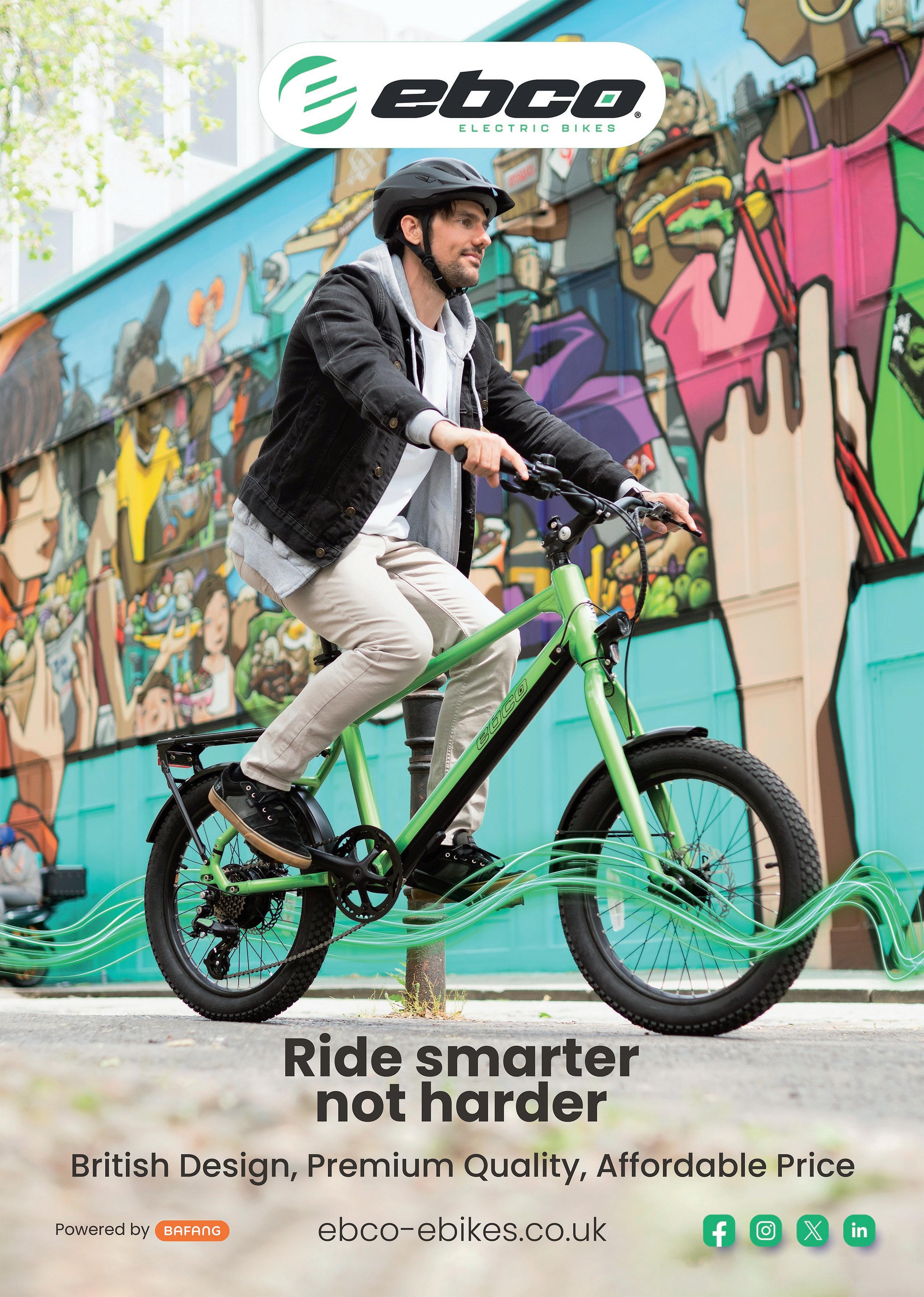
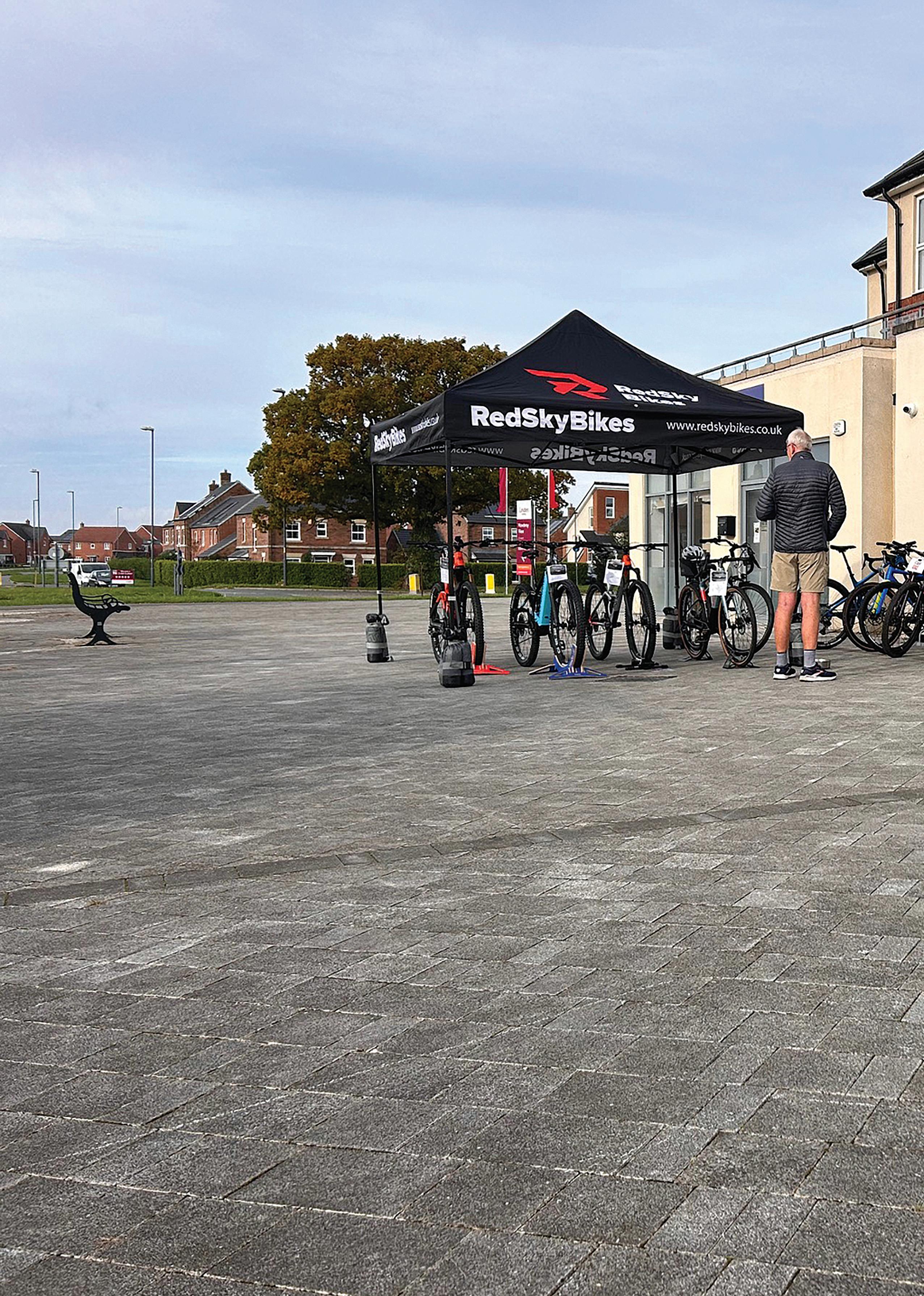
Opening a bike shop just as the UK cycle trade was beginning a famously difficult period of trading was a slice of bad luck for RedSky Bikes. On the other hand, surviving its first 12 months in possibly the worst year of trading for the industry, likely means it is ready for whatever the future has in store. Co-founder Gemma Thompson speaks with CIN
Can you take us through the beginnings for RedSky Bikes?
James and I wanted a career change. I had worked at Asda for over 13 years as a Project Manager then as a Farm Office Manager for several years but always wanted to work for myself again. James had his own business for over 20 years erecting farm buildings but was finding the physical side of his work was taking his toll on him and wanted a change. We are both outdoor enthusiasts of kitesurfing, waterskiing, wakeboarding, biking, motorbiking to name a few. James was getting really frustrated with poor customer service from bike shops and as both of us have a natural passion for top class customer service, always of the belief that it costs nothing but means the world to a customer if they are treated right. James decided that we could put both of our skills together to open a bike shop.
We were so lucky that Stuart Rider just so happened to be relocating to
Thirsk with his partners job as we were advertising for a mechanic to run the workshop. He has over 30 years’ experience in the trade and had been running his own business, Riders Cycle Centre for the past 10 years. Stuart has been a massive part of our RedSky Bikes journey and now with Marcus onboard, who joined us from Yorkshire Cycle Hub, the team is complete.
The retail picture has changed drastically since you opened in Nov 2022, if you knew what you know now, would you have had second thoughts opening when you did?
That’s a difficult question as we are loving what we have created and glad we made the leap into a new business together. However, as we were warned in 2022 by numerous reps & bike shops, we opened in a particularly strange and difficult time in the cycling industry. Knowing what we know now we may have been tempted to wait another year to see what
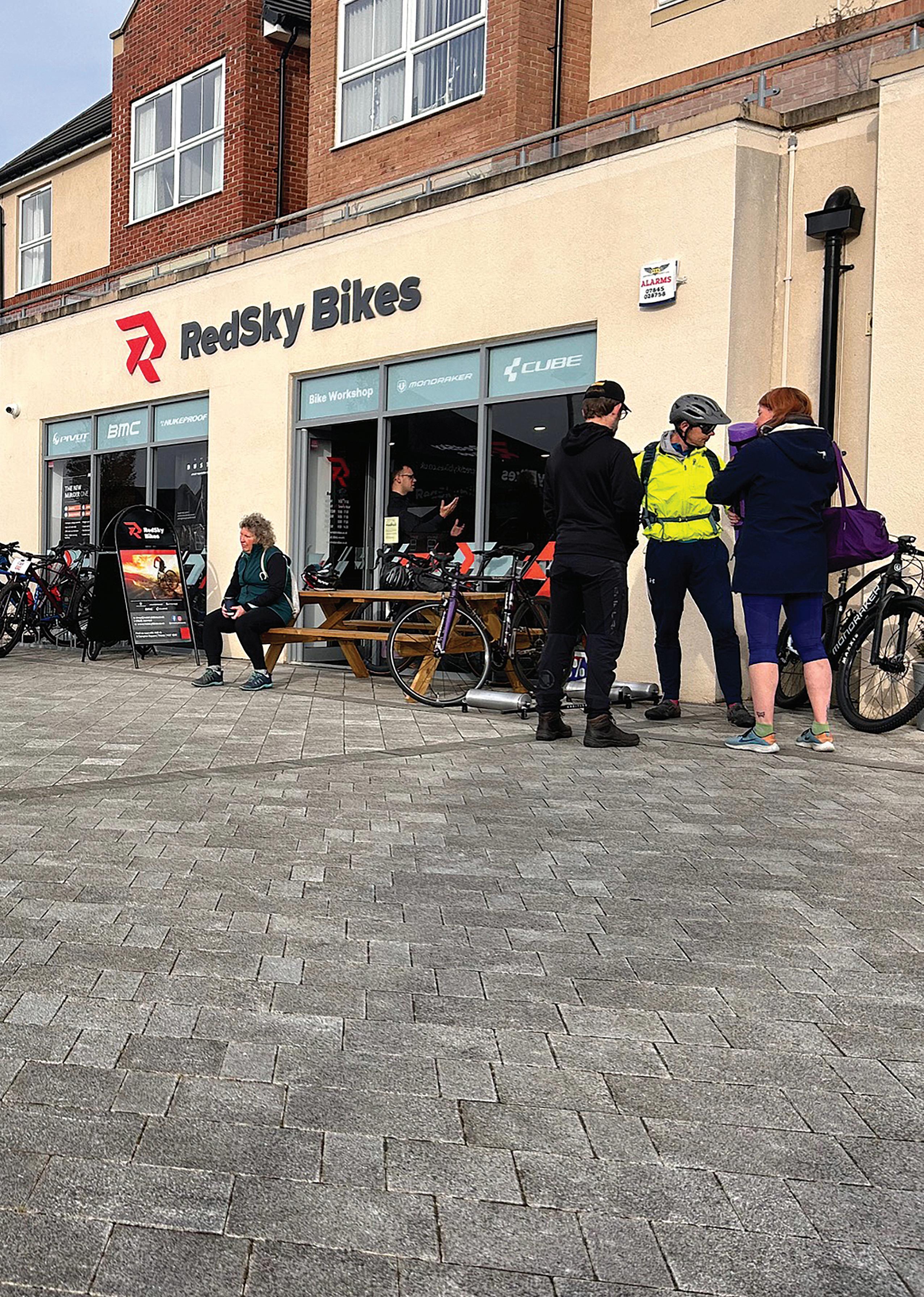
happened, but we had decided to follow a dream and the time was right for us as a family so we went for it and both believe in no regrets! We keep saying if we can survive our first year in what people say is possibly the worst year in the cycling trade, then we can survive anything the industry wants to throw at us now!
It sounds like you’ve managed to quickly win over your local cycle community. Have you any tips for getting them on-side?
It definitely helps that we were already locals ourselves, and locals that ride bikes. We made sure to touch base with the local cycling clubs to let them know what we offer and invited them in for Maintenance Workshops to get to know their new local mechanic. As a shop we like to give back to the community by organising plenty of activities and giveaways for our customers on days like Local Bike Shop Day, Our Anniversary date and Demo Days.
We usually get the local coffee wagon to attend and offer free bacon butties, free prize draws, get customers filling in questionnaires to give us a bit of feedback, Q&As on bike mechanics or bikepacking and even free cycling specific yoga classes. Anything free usually draws in a crowd of cycling fans! We also tried to support local charities and schools where possible with raffle prizes. Shop Gravel Rides have been popular as well, which is a fantastic way to integrate into the local cycling community. We have opened applications for a RedSky Bikes Supported Rider which we think is a really great way to give something back to the community and support a local rider on their biking journey whilst gaining some extra exposure for the shop.
What kind of customer through the door at RedSky? All walks of life and interests? Largely gravel riders? EBike enthusiasts?
Where we are located there is great riding for all types of riders which has been reflected in our customer base. One of our missions is to be a shop for every rider and make sure all feel welcome in our shop. The bike sales have been split 40% electric and 60% standard, with electric been equally split between full sus and touring. On the standard bikes the gravels have definitely being proving a popular conversion for a lot of our road and
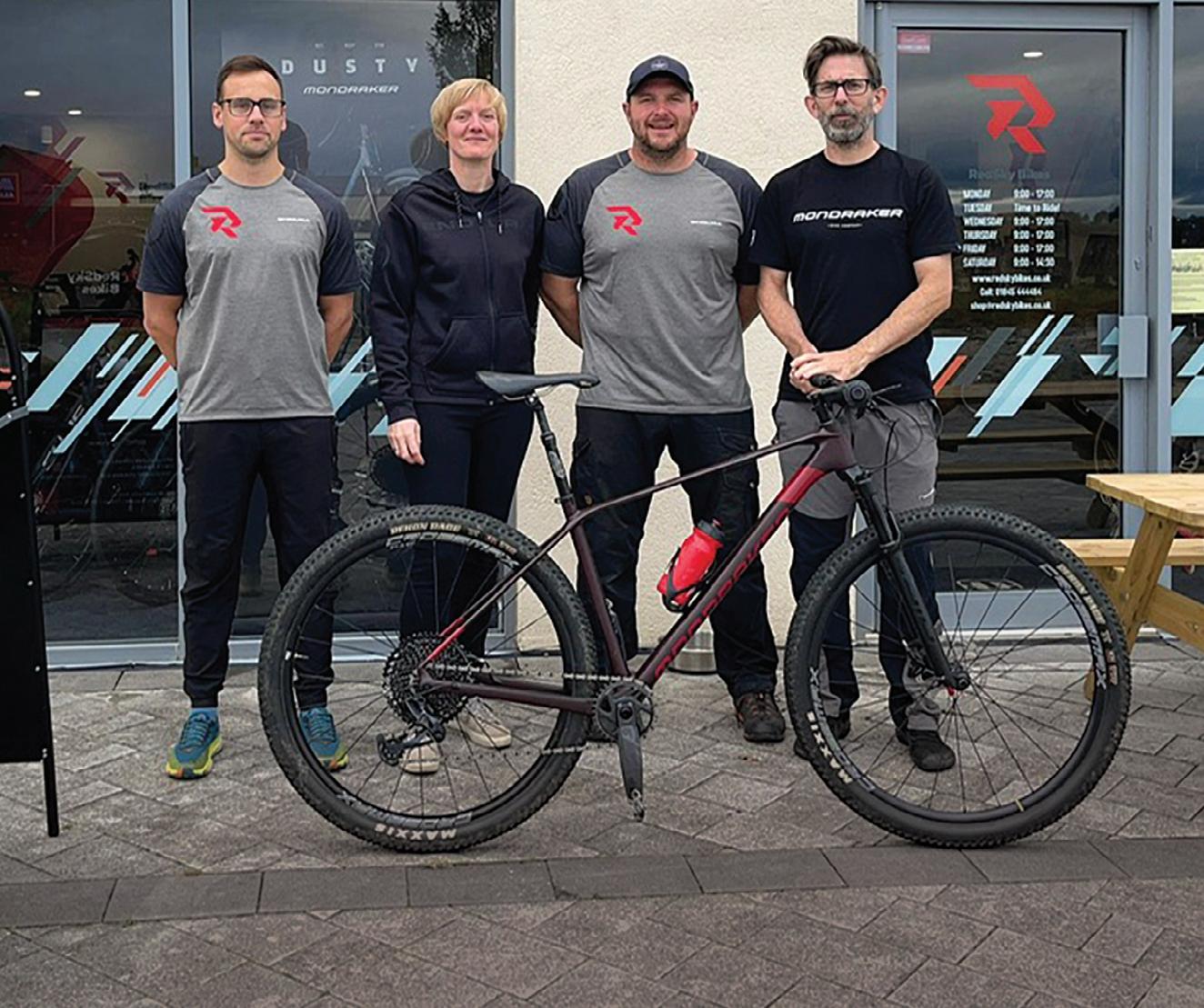
MTB customers through the winter, making up 20% of our bikes.
Has the proportion of workshop/retail shifted in the short time you’ve been open or remained largely the same? They have both had their peaks and troughs throughout the time we have been open, but I would say at the moment the shop and workshop are pretty equal.
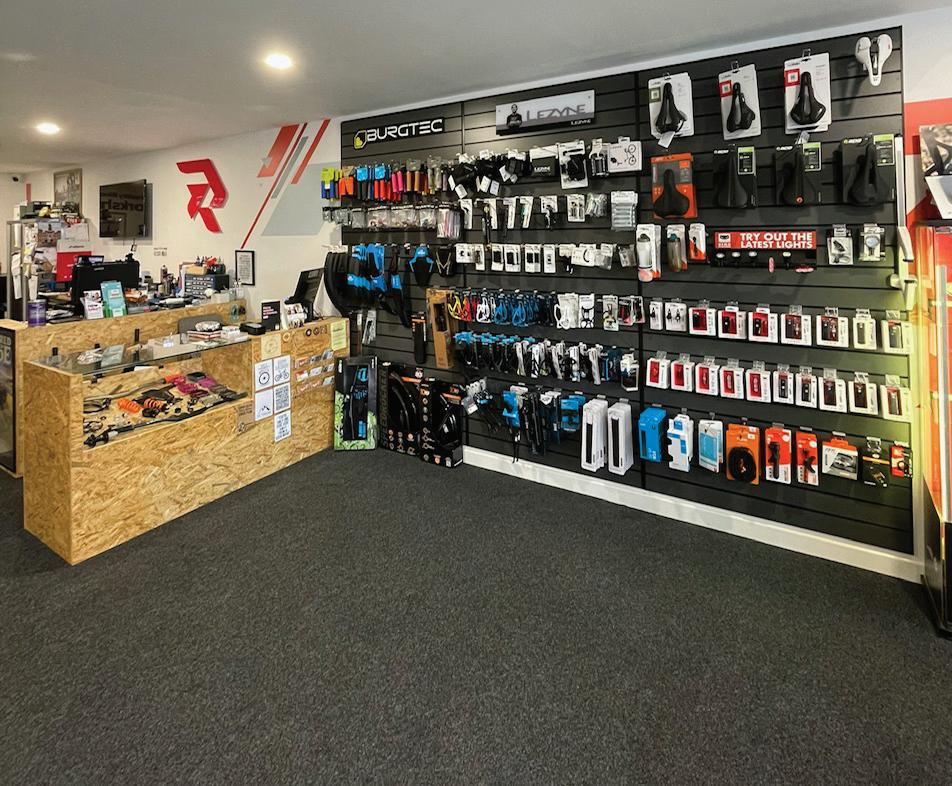
RedSky has found large numbersof shop visitors and callers have initially researched the shop online before making contact – and the shop has invested in its online efforts accordingly
Can you tell us a bit about Reliability Rides, what do they entail?
A Reliability Ride is known as a test of a cyclist’s reliability and that of their bike coming out of the winter season. An opportunity to test your fitness or kick-start your season with challenges to aim for.
Our RedSky Bikes Head Mechanic devised four routes to choose from, each one a little bit longer and a little bit harder. The events are free to enter. It's a road ride but people can use whatever bike they fancy. Rides start and end at our shop so that customers can get a Brevet Card from us so we can log their finish time. They then bring the Brevet Card next time to see if they could better their time or progress to the next harder route. The routes are self-navigated, GPS Routes are available to download or memorise, there are no feed stations or marshalls. Reliability Rides can be ridden as a group or individually. RedSky Bikes put on four Saturday dates from January to March every three weeks. As they have been so popular in may be something we look to continue doing throughout the year.
You’ve mentioned demo days and you’ve one lined up at Hamsterley Forest – how vital is it to run events like that for a shop?
Everybody knows that bums on saddles sells bikes so for us taking a
demo bike on a trail is far more beneficial than having a pedal around outside our shop. It’s a chance to attract customers that might not know about us and a chance for RedSky Bikes to spend the day in one of our local forests showcasing our bikes and growing the name.
On a day-to-day basis, do you have enquiries from customers about different types of purchasing bikes eg financing, leasing, C2W, hire, etc, or do the vast majority typically expect to pay for the bike/product there and then?
The last six months has definitely seen an increase in finance enquiries from customers wanting to spread the cost. Our C2W sales have been steadily ticking away since we opened, before opening we did anticipate this would be a main form of purchasing so the low uptake has surprised us.
You’ve mentioned that your Sales Manager works hard on the social media side –our retail survey revealed that plenty of bike shops are planning to invest more in their online ‘shop window’ even if they aren’t actually retailing online. How important is it to have that online shop window/market the shop online even if you don’t retail through your website? We took on Marcus our Sales Manager in August last year and part of the reason for bringing him onboard was to bring a new focus to our social media and our website. Our website although Click & Collect only gets a good deal of traffic through it but
not necessarily people buying products. This suggests that customers are using our website as a shop window, so we realised we had to make sure that it was kept current and up to date with our offerings to entice customers into our shop or to get in touch. We receive a large number of calls or visits from customers saying “I’ve seen on your website...” Customers make shopping decisions very differently now and most like to search online so they can make an informed decision.
Your shop is situated by the Sowerby Sports Village – do you feel that has been a benefit for RedSky Bikes?
Our location has been a great asset to us as we get a lot of the Sports Village users passing by. We also have a fantastic space outside the shop for our customers to try bikes and also for our mechanic to car park test bikes for the workshop bikes. It also means we have ample free parking which is of huge benefit to customers bringing their bikes in.
How do you see the future mapping out over the next 12 months for RedSky Bikes? We feel as everyone does that this next year may be a difficult one again but we remain optimistic and feel we are doing everything right. We just need to keep taking learnings from the last year and build on them to continually improve and stay relevant to our customers.
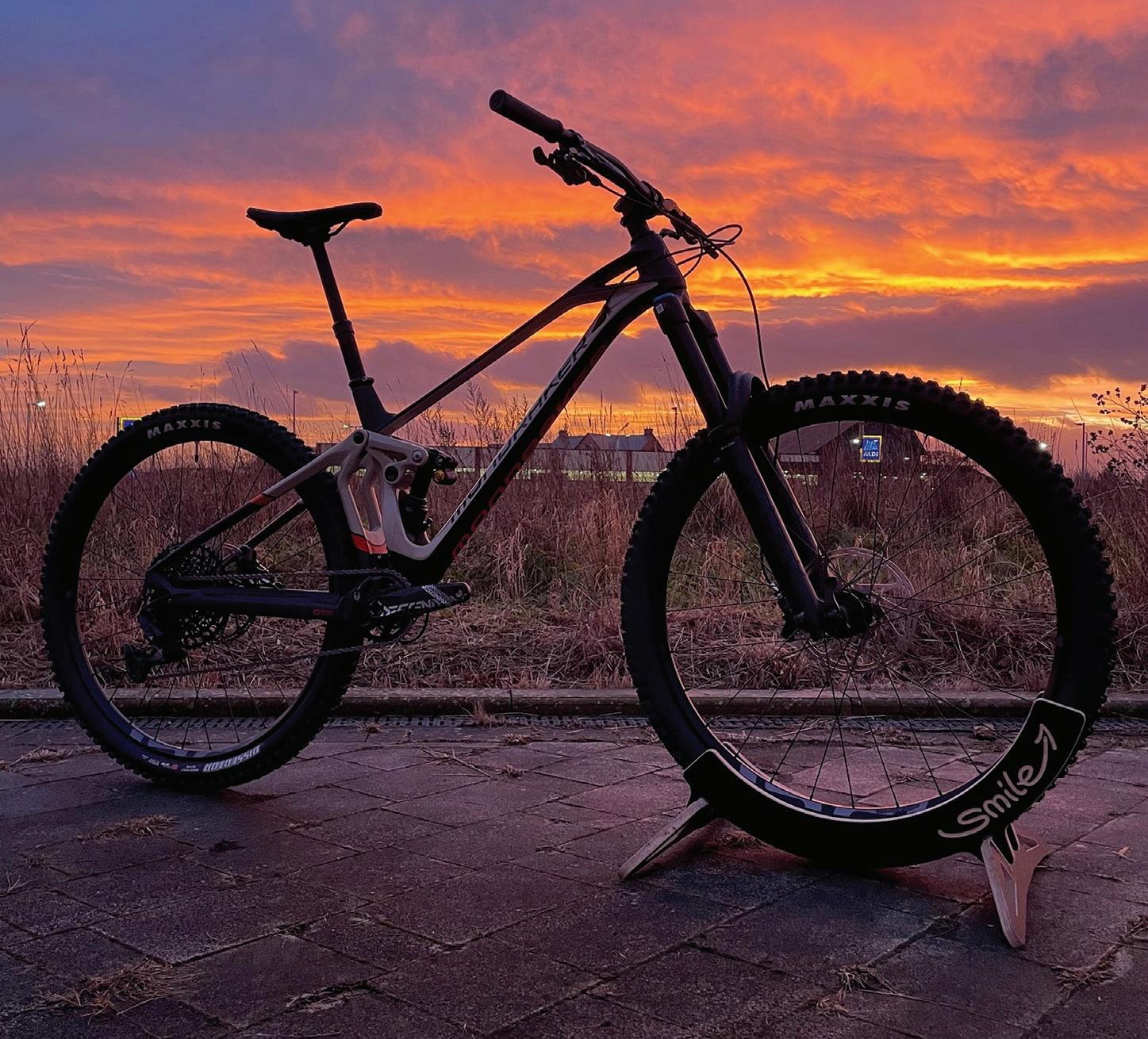
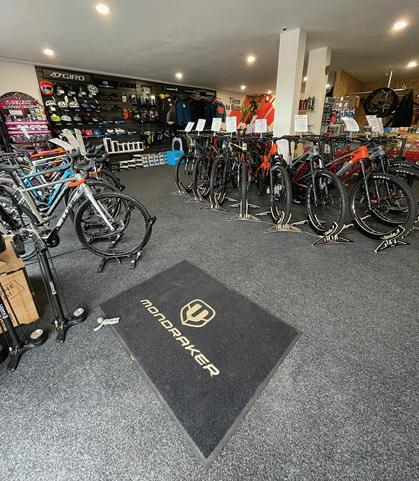
“At the
the shop and workshop are pretty equal”
“THE LAST SIX MONTHS HAS DEFINITELY SEEN AN INCREASE IN FINANCE ENQUIRIES FROM CUSTOMERS WANTING TO SPREAD THE COST.”

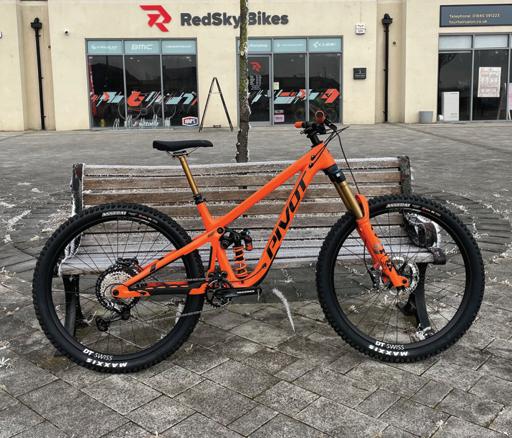
The UK’s biggest cycle trade organisation is urging bike shops to examine their margins before accepting Halfords’ Cycle to Work (C2W) vouchers, adding the retailer has refused to come to the table in discussions on the future of the scheme.
Changes made by the FCA and, subsequently, C2W providers, have precipitated calls to completely update Cycle to Work.
Laura Laker examines the present and potential futures for C2W...


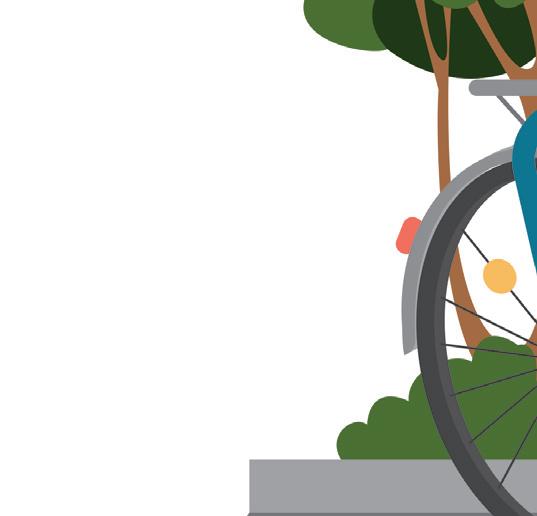
The Association of Cycle Traders (ACT) also warns if the industry can’t come up with an acceptable solution for retailers internally there is a risk the scheme could be scrapped, as similar tax incentives have been.
ACT says after weeks of discontent from retailers over C2W terms and with 700 businesses now joining its calls for reform the biggest provider, Cyclescheme, has entered talks along with most major providers to come up with a solution. However, Halfords and Evans, two major high street retailers, the former with 23% of Cycle to Work business at one estimate, charging 15% fees to retailers, have not.

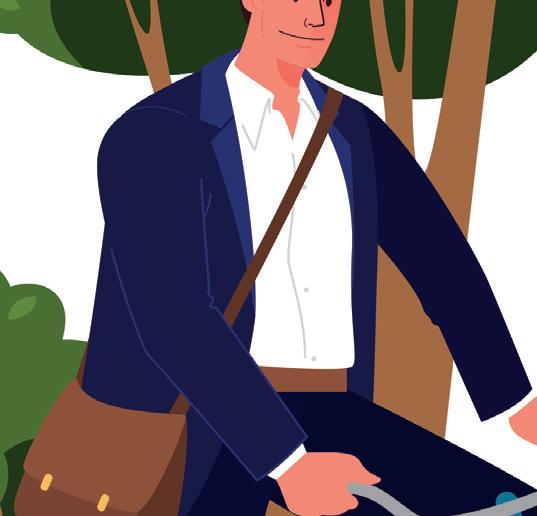
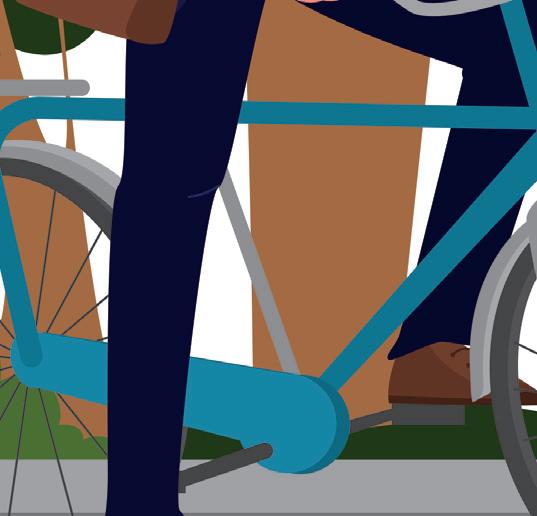

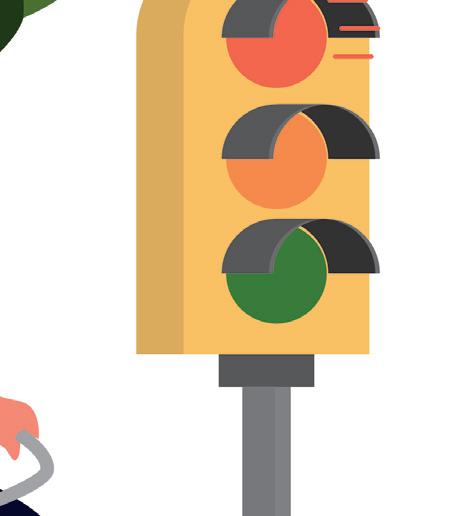
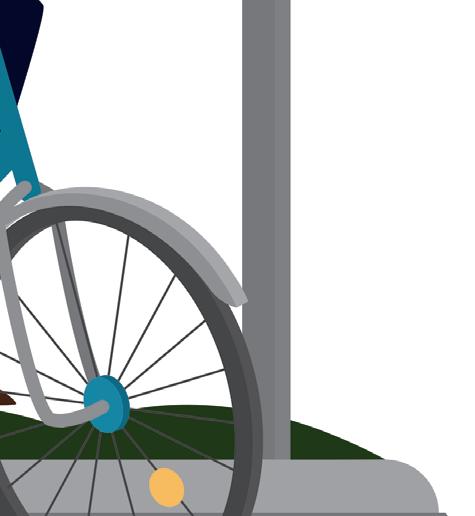
ACT has made three asks of C2W providers: to reduce fees to retailers; to remove the stipulation any discounted rates must also apply to C2W sales, which he says amounts to double discounting; and to reverse terms preventing retailers charging additional fees or surcharges on C2W sales. Harrison says all other C2W providers have ‘taken to board our asks’ and talks continue. He also wants the scheme extended to self-employed people and those on low incomes.
Harrison says the industry faces two choices: come up with an internal solution to the problem, or risk C2W going the same way as the home computer initiative, which was pulled in 2006 by Gordon Brown without consultation with the industry because, Harrison says, “people were taking the mick.”
“It could happen to C2W,” he says. “Let’s work on this general reform piece together instead.”
Harrison believes a different approach is needed to provide people with low-cost cycles. “The reason it’s like it is today is money men saw the legislation and created schemes to run it. We know now the established salary sacrifice scheme doesn’t work for IBDs, and salary sacrifice isn’t regulated.
“There are solutions to build more effective, efficient cycle to work schemes,” Harrison says. For example he believes the government could dismiss the tax legislation that kickstarted C2W, instead running it in a similar way to the Covid Fix your Bike scheme, launched summer 2020, in which customers applied for vouchers using a government-appointed partner, the Energy Saving Trust. The scheme was not entirely problem-free, however, with just half of the £50 vouchers issued actually used, and cycle shops reporting weeks-long delays in receiving payments for submitted vouchers.
According to an independent review of Fix Your Bike in 2023, voucher recipients came from all over the country, and across all demographic groups. Those who didn’t ride a bike regularly were more likely to have used the voucher, and participating businesses believed it attracted new customers. Recipients were

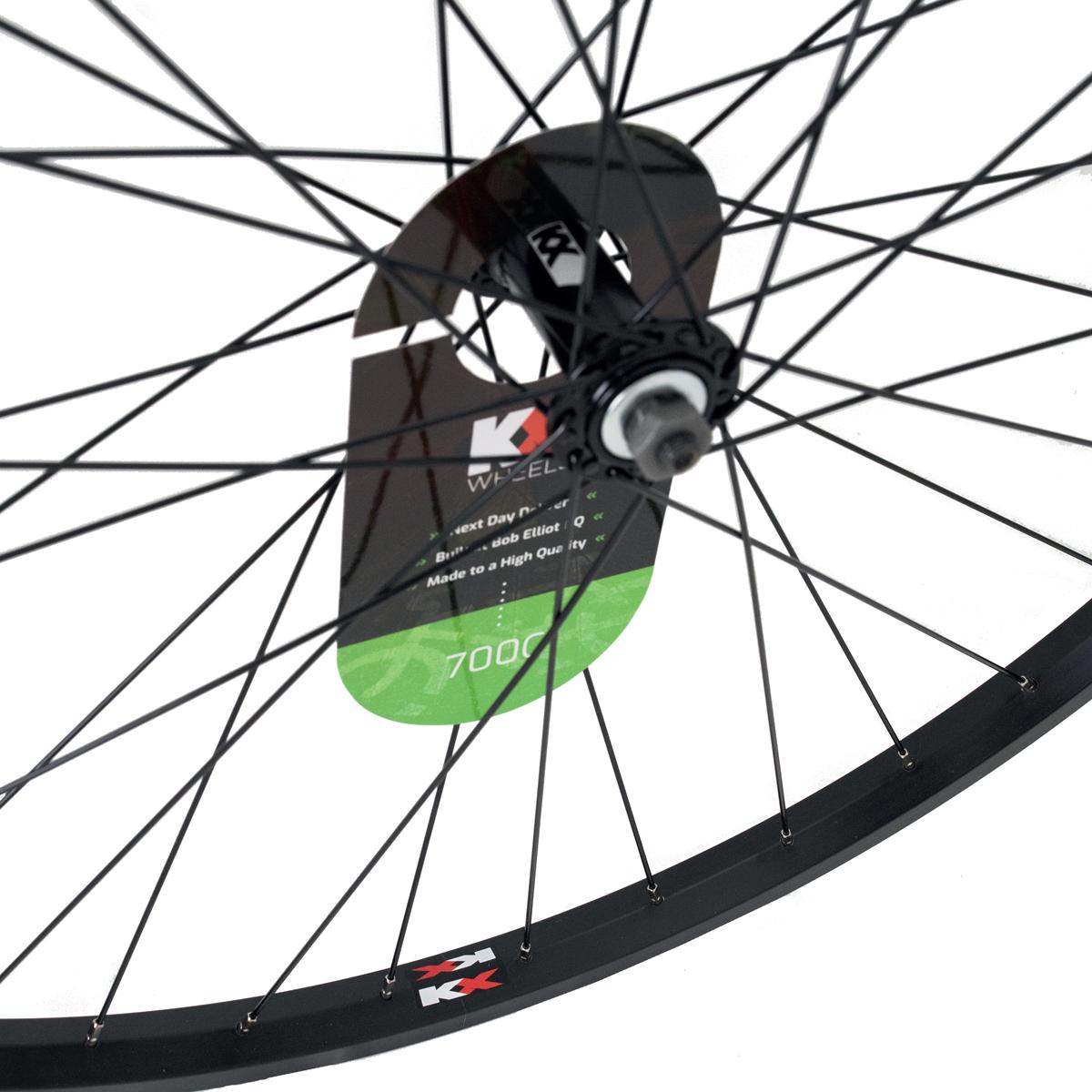
Our exciting new range of KX Wheels are produced right here at Bob Elliot HQ Utilising our specialist machinery, we prepare the hubs using reliable, economical, high quality componentry and lace the wheels before finishing them to precise tolerances with the use of a robot which are then quality checked to deliver the perfect wheel every time. Competitively priced replacement wheels offering a wide selection for 700C and all MTB disciplines.
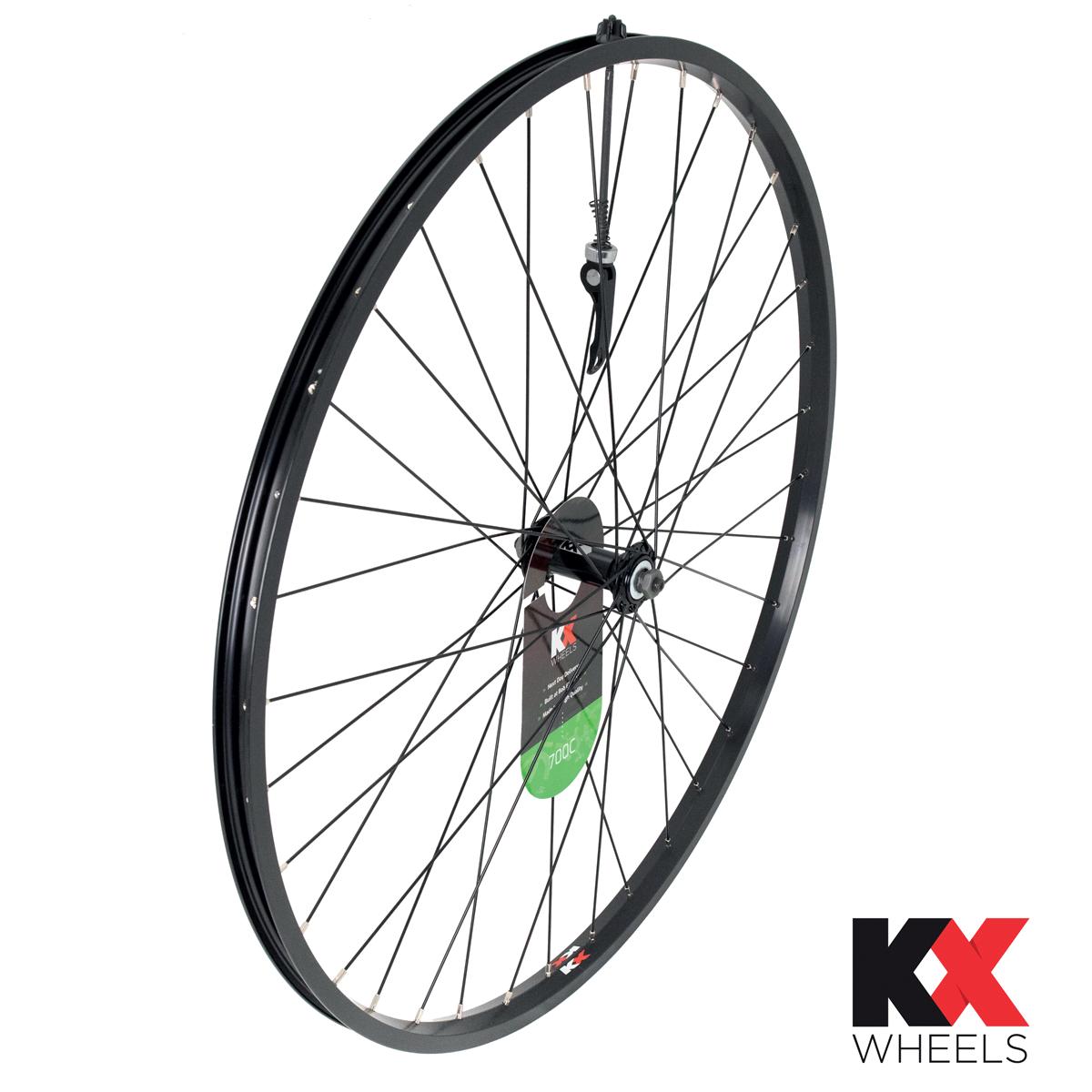

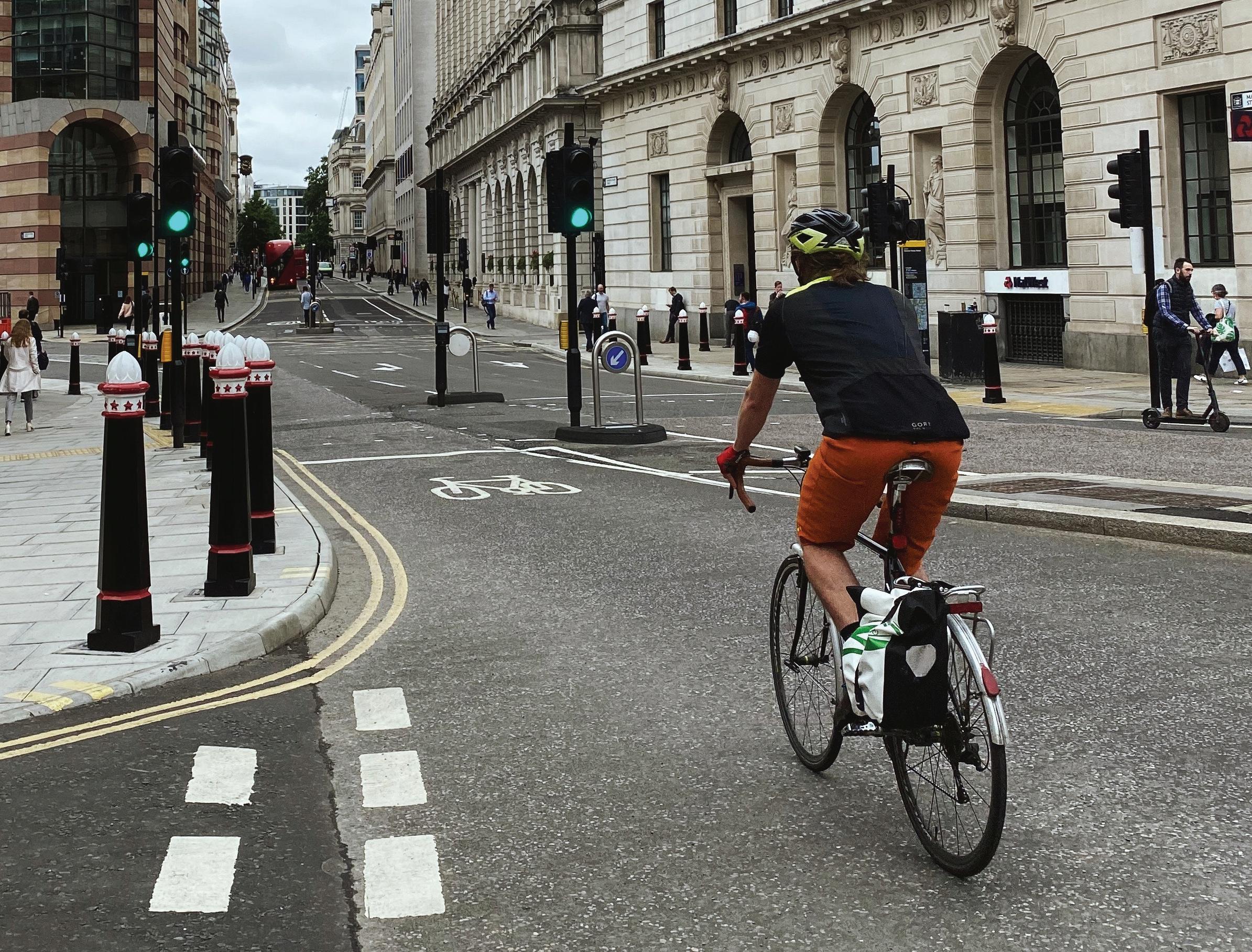
more likely to still be cycling a year later than those who didn’t use a voucher.
“I’D ENCOURAGE RETAILERS TO REALLY LOOK AT THEIR MARGINS, NOT THEIR SALES VALUES; IF THEY LOOK AT GROSS PROFIT MARGIN ON BIKE SALES, INCLUDING SERVICING, SALES SPACE... AND THEN PAYING HALFORDS 15%, IS THAT MARGIN STILL THERE?”
In December, Cyclescheme kickstarted a backlash against the scheme after stipulating retailers must include sales items, at sales prices, in their C2W offering, while preventing shops adding additional fees, following updated Financial Conduct Authority (FCA) guidance. This guidance has been interpreted differently between providers, however. Harrison says: “we want to reverse that so retailers can sell a bike at whatever price they want to.”
This, and the changing retail landscape, has prompted the industry to reevaluate the scheme as a whole, particularly with providers that charge higher C2W fees. Harrison says: “During Covid you didn’t need to look at profit margins – you do now.
“I’d ask IBDs: why are you accepting Halfords? You’re giving your biggest competitor 15% of your profits.
“Perhaps [businesses] are worried someone down the road will take the sale if they don’t. I’d encourage retailers to really look at their margins, not their sales values; if they look at the gross prof-
it margin on bike sales, including servicing, warranty, sales space, staff, and then you’re paying Halfords 15%, is that margin still there, are you still making a profit on that bike?”
Mark James of JE James Cycles, echoed concerns about Cycle to Work profitability more generally. “Cyclescheme charges are bankrupting dealers,” he says. “The average bicycle shop either makes a loss, or 3-4% profit in a good year.
“We’re charged 10-15% of the total value of the sale with C2W. The costs involved in a bike shop are already huge: labour costs, staffing; it takes an hour to get a new bike out of a box, build it, then it’s an hour or two for staff to sell the bike.
“We’re restricted by the government scheme…it’s stripping any remaining profit out,” he says. “Bike to work shouldn’t cost the dealers anything.” He says 40% of sales in certain shops are via Cycle to Work, amounting to substantial losses each year.
In a written statement Cyclescheme said it is seeking clarification on the FCA guidance. A spokesperson said: “In 2020, Cyclescheme announced a new commission structure of 8.33% plus VAT on all
Cyclescheme bikes and accessories. Our commission cap means that retail partners will never pay more than £250 + VAT on a Cyclescheme Certificate. Over 1,000 Cyclescheme retail partners utilised this cap in 2023 which led to a blended overall commission rate of 7%.
“We understand that some bike retailers have concerns, and we are in support of the Bicycle Association’s action to seek clarification from the FCA and Department for Transport.”
Halfords, which declined to comment, is a substantial C2W provider. In an Freedom of Information request of 798 organisations’ provision of the scheme, including universities, councils, NHS trusts and police and fire services, Halfords was sole or joint provider in 187 cases (23%), together worth more than £30m in transactions 2018-2023. Cyclescheme was a provider in 263 cases, meanwhile (33%), and Evans in just 15.
Cycle to Work is currently not available to self-employed people, as it is a salary sacrifice scheme obtained via employers. For those on low incomes, current rules mean salary sacrifice schemes can displace tax relief benefits, making recipients worse off. Research shows low
income workers in rural areas are at the highest risk of transport poverty, living further away from employment and services, in areas often worse served by public transport. ACT wants to see the scheme open to both groups. E-cycles have been trialled in some rural areas to help people access work, but these schemes are the exception not the norm. If C2W were opened up to the UK’s 4.33 million self-employed people it would extend cheap transport to those people, as well as increasing the potential customer pool substantially overnight.
At a recent debate on C2W in Parliament, Mark James said the scheme is “letting down most people who need bicycles to get to work,” instead encouraging “wealthier people buying multiple bikes and cutting how much they have to pay.
“Cycle to Work is failing most people” he said, and asserting no independent assessment of the scheme has been carried out to determine how it was being used. Cyclescheme was unable to point to any data to back up its claim of bringing more people into cycling, other than its sales, which amounted to more than one million by May 2022. Evans did not respond to a request for comment.
“WE UNDERSTAND THAT SOME BIKE RETAILERS HAVE CONCERNS, AND WE ARE IN SUPPORT OF THE BICYCLE ASSOCIATION'S ACTION TO SEEK CLARIFICATION FROM THE FCA AND DEPARTMENT FOR TRANSPORT.”
Cycle to Work is currently not available to self-employed people... and for those on low incomes, current rules mean recipients can be worse off. Research shows low income workers in rural areas are at the highest risk of transport poverty.
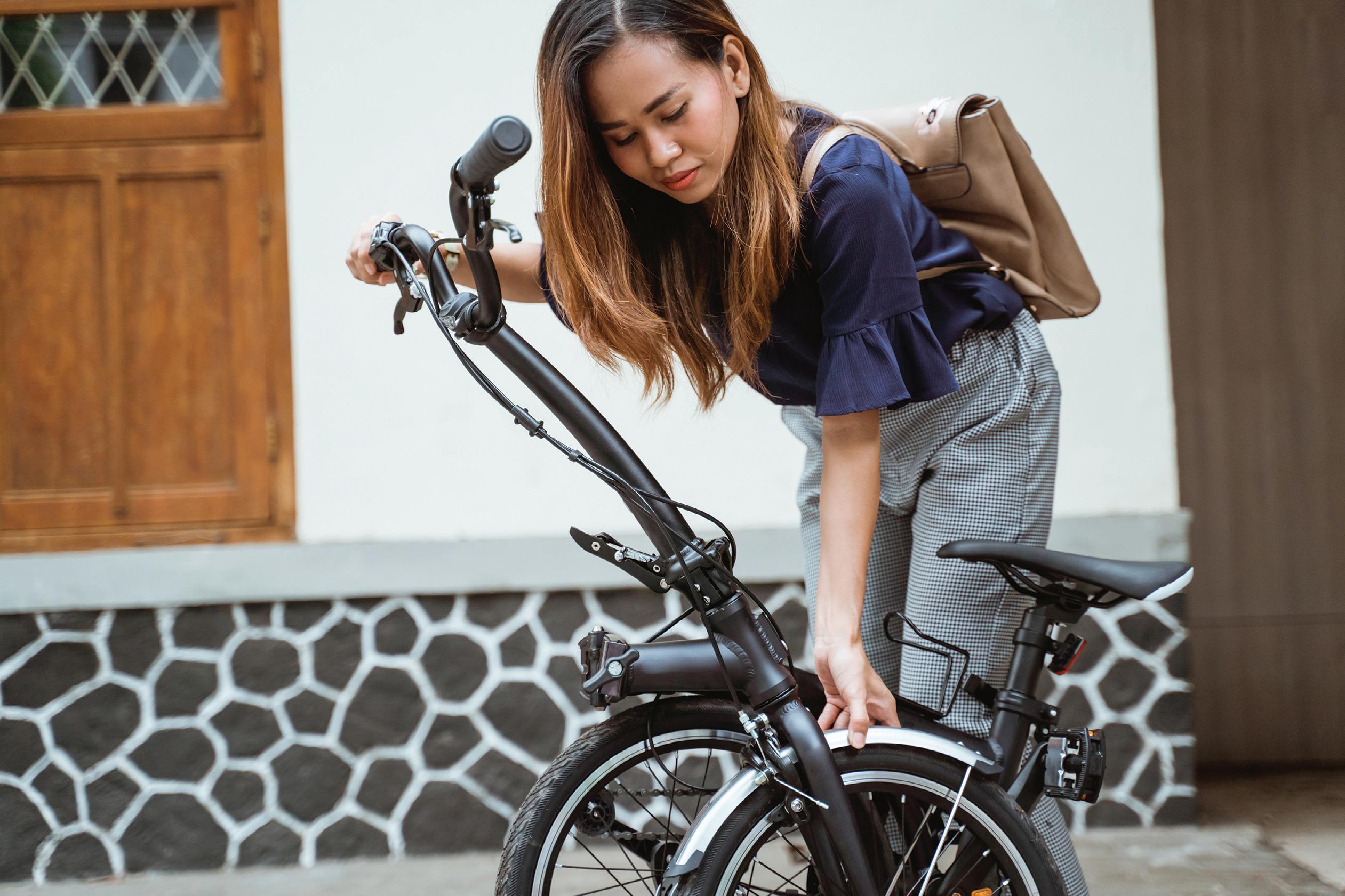
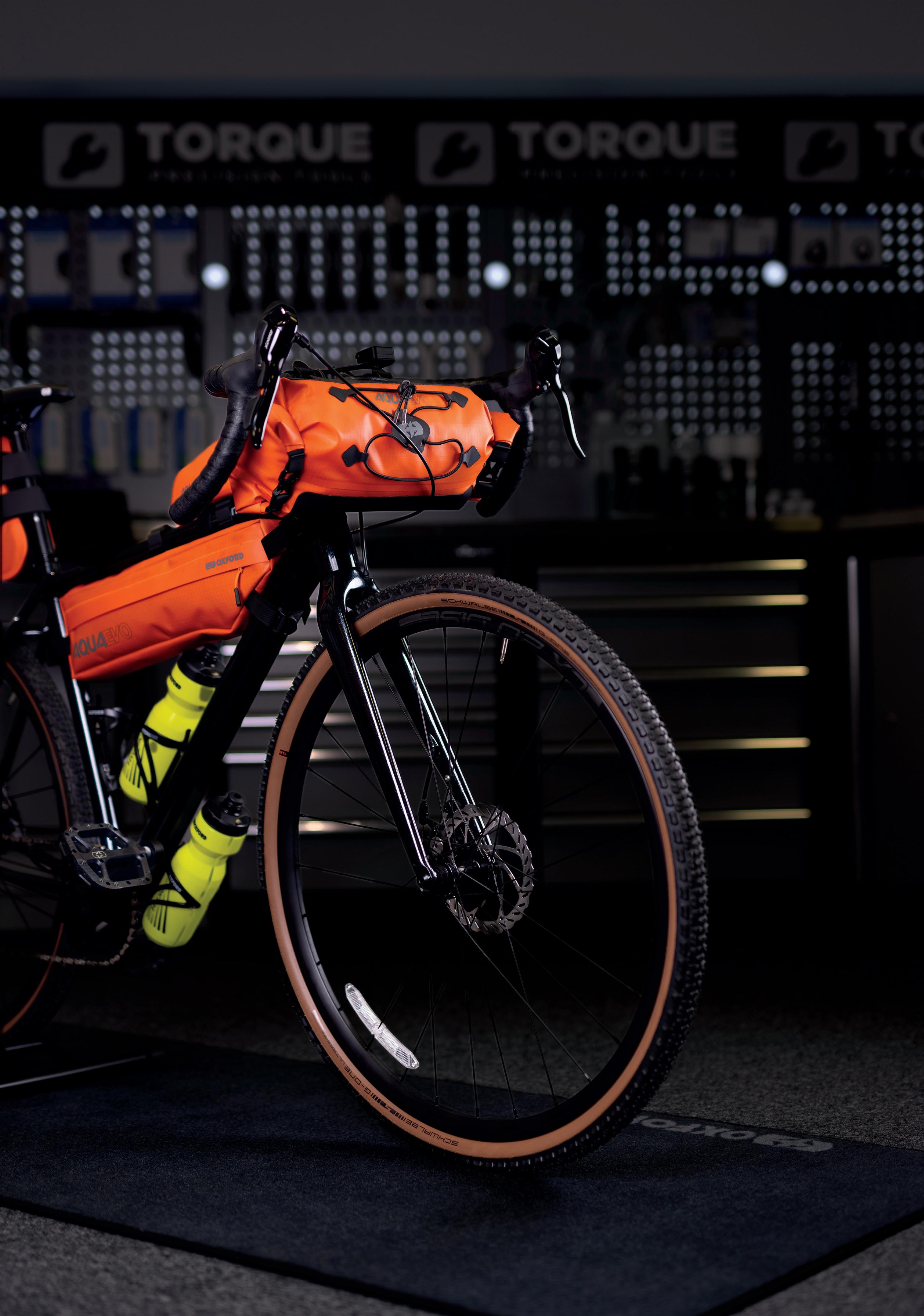
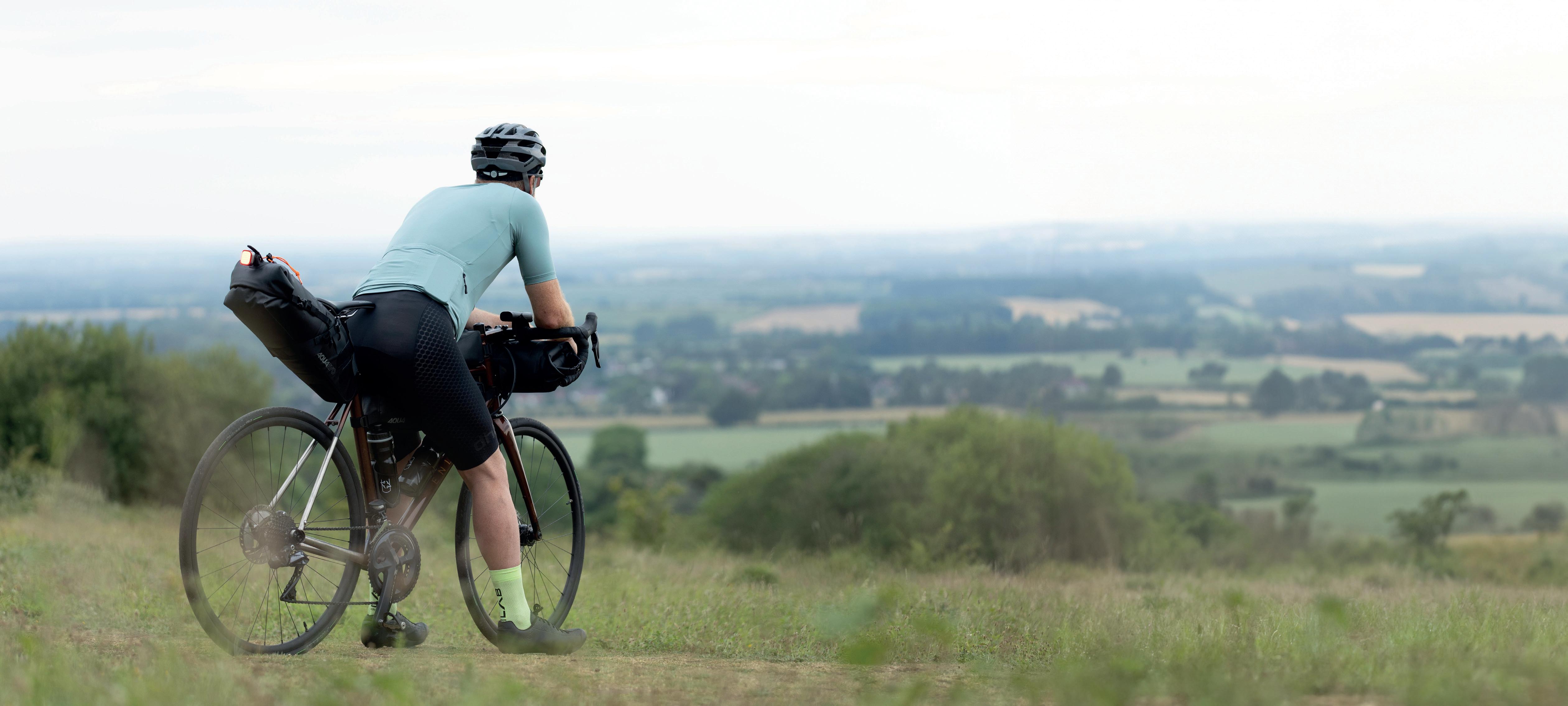
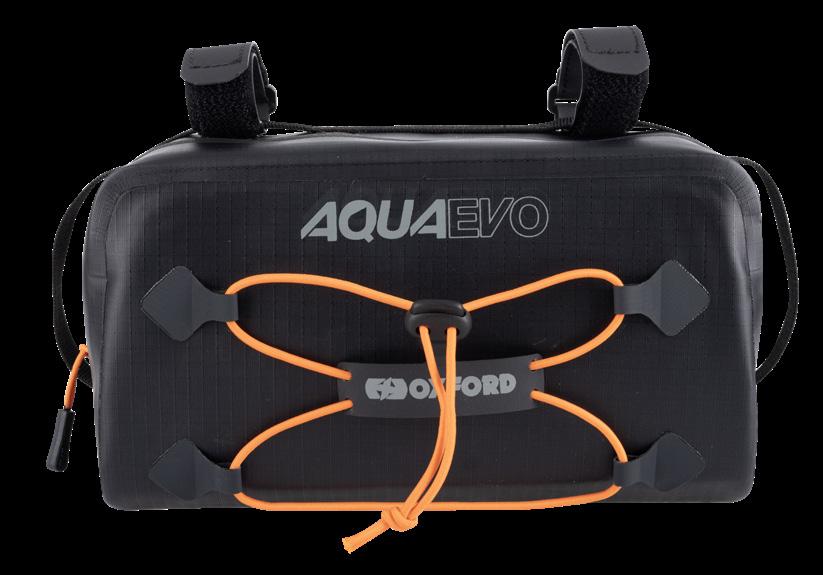
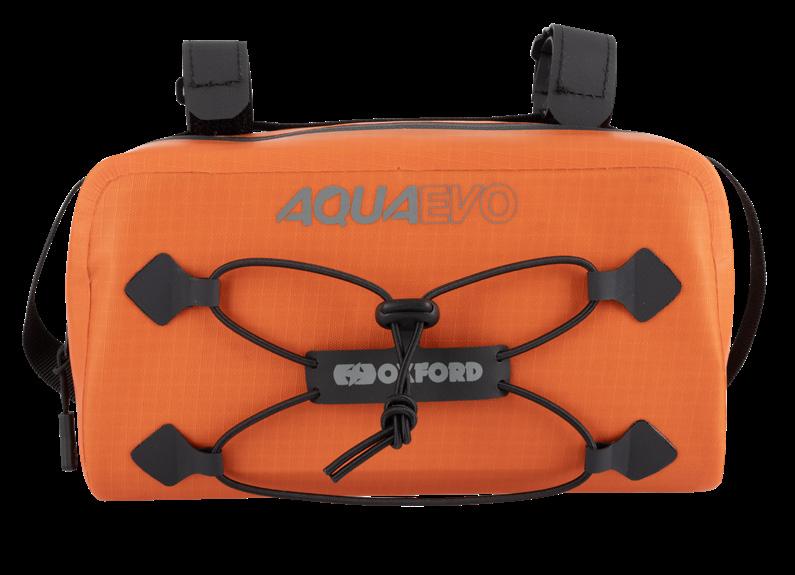
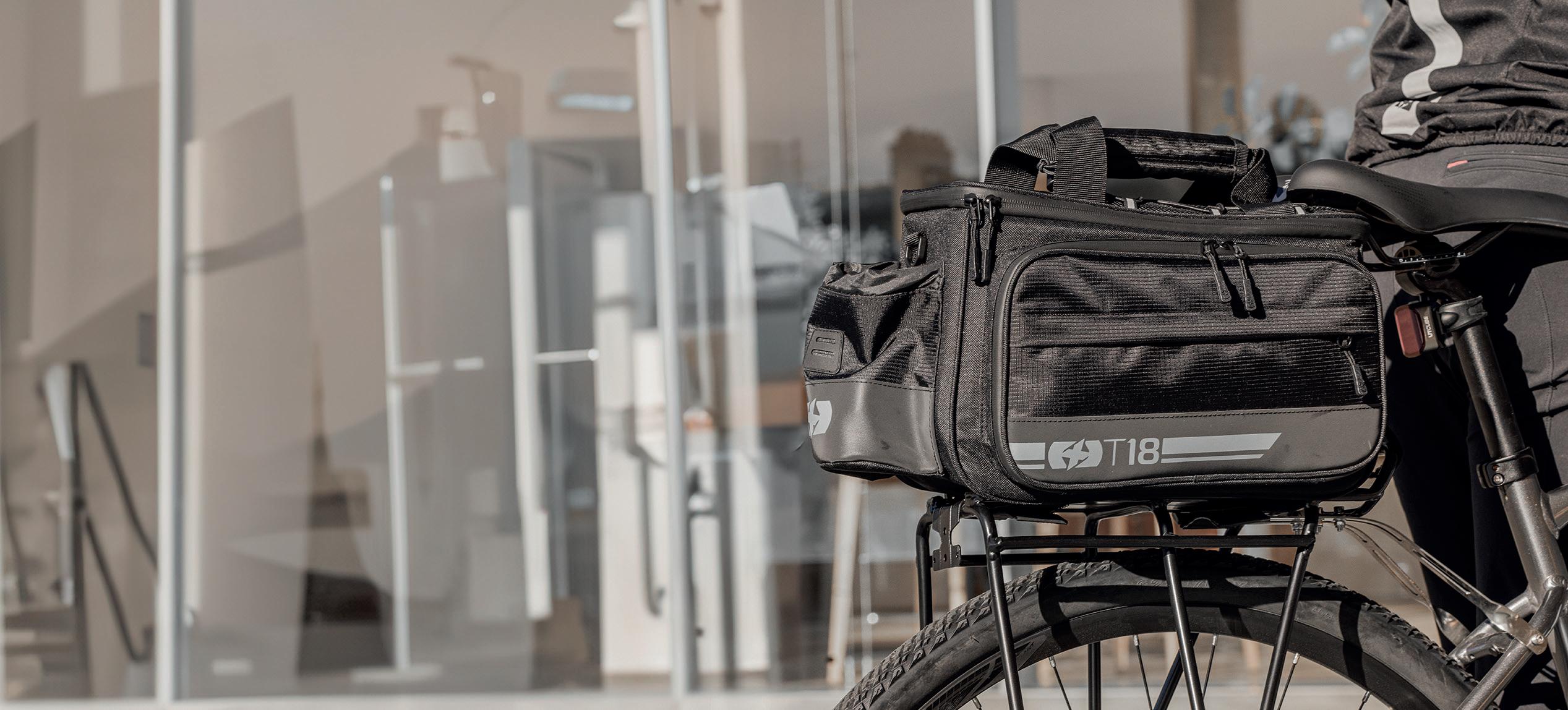
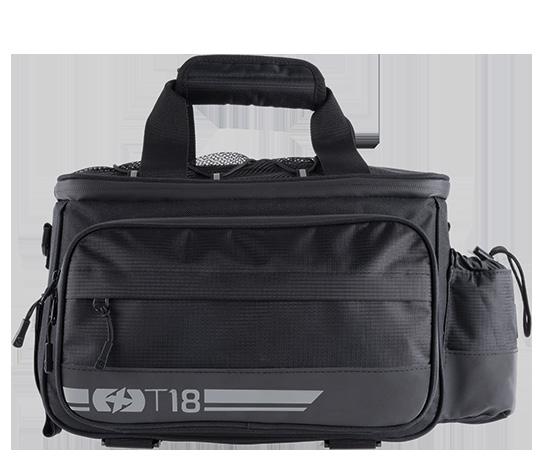
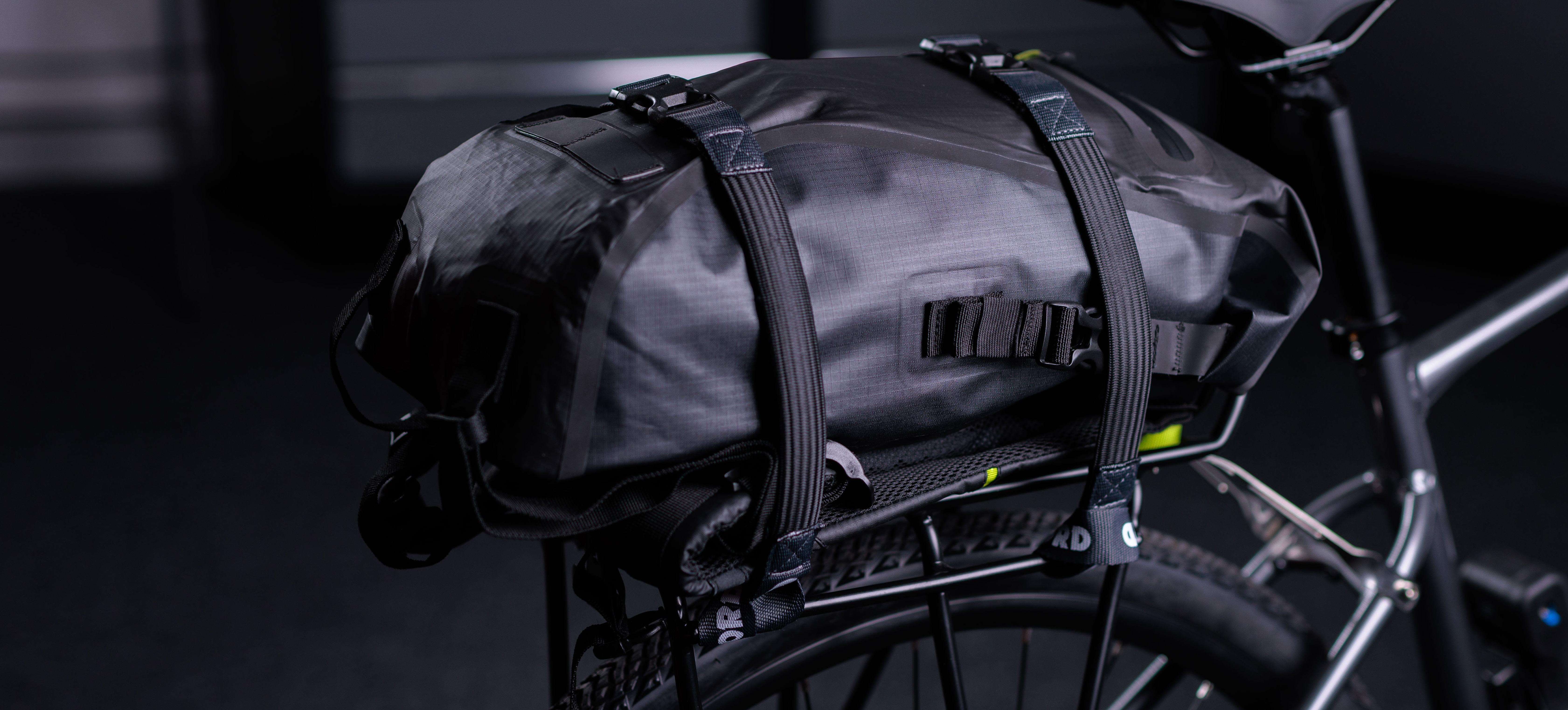

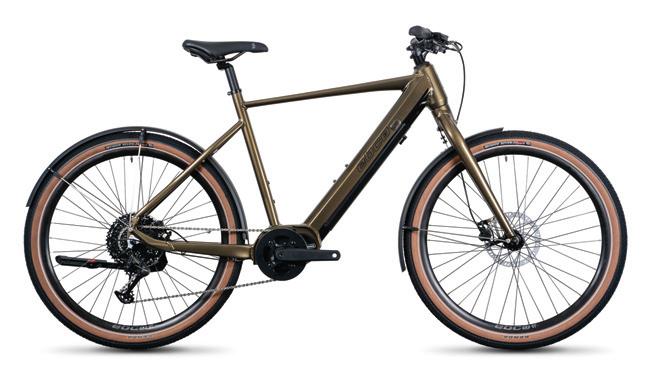

From strict rules about queuing to a profound fondness for roast potatoes, there are plenty of things that make Brits a bit different to other nations. The riding is different too – as are the needs and wants of UK riders. CIN speaks with EBCO about tailoring product for the UK market…
Riding conditions, road quality, weather and rider sensibility –all these things are not the same in every country, including (maybe especially) in Great Britain. However, in the commercial cut and thrust of the global bike market, it’s not always logistically or financially viable to ensure that every bike is specced out for each specific country and particular riding conditions. So, for those that are in a position to do so for specific bike markets like the UK, it’s quite the string to the bow.
Enter EBCO. The electric bike brand has had a busy 12 months, returning after a Covid-19 pause with new bikes, new branding and a fresh new website. Thanks to global two-and-three-wheel manufacturer TVS Motor Company taking a majority share of the business in 2022, EBCO has been able to leverage considerable industry expertise as well as purchasing power. Likewise, using streamlined production processes, EBCO has been able to reduce costs and pass on savings.
So, last year EBCO was able to unveil a simplified pricing structure for its new ranges, with price points been condensed into three clear categories. Entry levels start at just £1,399 and meet that core ethos of making eBiking available to all and “delivering quality eBikes that don’t strain your budget” and “should be within everyone’s reach”.
Last year, CIN caught up with newly installed Head of EBCO Chris Needs. Using his years of industry experience, he noted how, for the eBike market, “the European design influence can be strong, so what we have wanted to do differently is build bikes around the typical usage of the UK customers”.
Specs appeal
So, what does that mean in practice? CIN followed up the point with EBCO’s Head of Product, Josh Charteris, who let us into some of the specification details: “The [UK] demographic we face is decisive and efficient. Generally, a consumer will be less interested in window shopping as they have an educated understanding of what they are intending to achieve with their purchase and at what budget they wish to spend.”
“Being a UK brand, our design language targets the needs of a Brit whilst also streamlining the decision making from a financial point of view.”
Down to brass tacks, what kind of UK market tailoring can you expect to see compared to Europe? EBCO explains:
Longer wheelbase (“to handle rougher roads than seen in Europe”) Sportier geometry (“the UK is full of hobbyists”)
Every bike can be an SUV (“racks, mounts, bags, etc – note that the SUV
claims its own category on the continent”) Demand for disc brakes (“where you would see coasters in Europe, safety is at the forefront of our minds and legislation. We tend to over-engineer in the face of this habit”)
Those are some of the broader tailored specs and details that EBCO allowed us to share. But as aforementioned, the UK is a market attuned to price and the brand now has three clear categories to keep things simple.
The entry-level eBikes, including the popular Urban 2 and Street 2 models, are now priced at £1,399, designed to help those new to urban mobility begin without making a huge investment.
For riders seeking enhanced sophistication and features, the mid-range eBikes, which encompass the Urban 3, Street 3, and Adventure 3, are now available at the competitive price of £1,999. And for those looking at the more premium end, the Adventure 5 model, with 95nm motor to offer the extra support needed for more Adventure riding, is now priced at £2,399. These premium eBikes are equipped with cutting-edge technology and design, said the brand.
EBCO’s recent investments have also seen a number of Account Managers brought in to service dealers. Dealers interested in becoming a stockist can email sales@ebco.co.uk
www.ebco-ebikes.co.uk




July 3 – 7, 2024
Messe Frankfurt, Germany
Festival Days: July 6 – 7

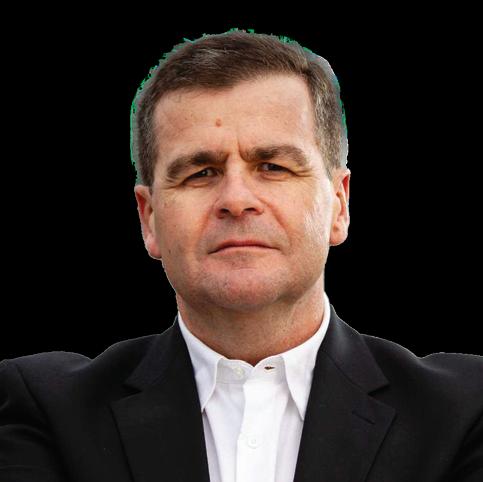
In part 4 of this 7 part feature series, Cristóbal Pérez – a seasoned cycling industry professional with a track record of leading change – explores what the future could bring to our industry; the good, the bad, and the ugly. In each of these there is opportunity – if you can embrace the change required to unlock it. With bike prices currently under discussion in the cycle industry, here Pérez explores pricing strategy in the market.
One thing is the cost, another one is the price, and a different one is the value. Cost is what you as a maker, have to pay to produce something. Price is the amount of money that you request from users to be for the acquisition of the product. Value the perception of the buyer of your product that will finally influence how much they are ready to pay for it.
I have seen how companies set the price of their goods by using an Excel sheet (or shit) to easily and in one shot multiply their cost by a constant (markup) that will offer you in return the price at which they expect to sell their products to distributors and/or end users.
This is a mistake. In doing this, you will be diminishing the chances of selling out what you do not sell very well and making less money than you could with your best-selling stuff.
This is the cost-based pricing strategy. I prefer to say rule, though.
Perhaps you should apply a lower markup to what is not very well positioned in the market because of competition, stock, seasonality, specs, etc. That is, you make less money, but increase the chances (and units?) to get rid of what you need to clear from your range or warehouse or optimistic forecast. And with a lower likelihood of doing it using discounts.
Now the opposite. If you have a leading product in your range, warehouse, or forecast that is well positioned due to minor competition, better specs, or stock shortage, increase the markup and force an anxious market to pay for it.
This is the value-based pricing strategy. Indeed.
Using a cost-based rule, you set the selling price based on what you paid for the goods. You decide here.
Using value-based pricing, you set the selling price according to what your potential buyer is willing to pay for it. Client decides here. At this
point, I am sure that two questions will have lit the red light for some:
1st: Clients always want to pay the least. So, in the value-based pricing scenario where the potential purchaser decides, this is not good for your company. This is absolutely true unless you carefully plan how to approach the market your products are aimed at. In English, you need to sell your brand, not your products only.
Think of this: you buy an iPhone at its tag price with no discussion. Next, you tell everyone. Same for Rolex. Or Ortlieb.
2nd: Some brands never applied discounts but now they do. Well, market or sector circumstances might force you to go against your principles, but temporarily. In the face of big problems, big solutions. This case is not about a change in their policies, but an adaptative decision to a circumstantial and unfavourable stock/sales ratio situation. Say Specialized.

I will ensure that I make myself clear with a couple of examples regarding the cost/value-based pricing policies.
If your product A is positioned among a fierce million of similar options, the market does not value it very well, or it is easily replaceable for other options, set a lower price to be competitive from scratch in a price-sensitive segment. It is very common for every company’s “averaged product”. Good examples are the Renault Megane, Ford Focus, or the carbon framed/Shimano XT/Sram GX/Fox Fork/hardtail MTB.
If your product B is a leader on its own, highly positioned beaconing the surrounding arena, the demand is higher than your possibilities to cope with it, then set a higher price. Thus, you will bring more money home and elevate the aspirational side of your top-of-the-hill star. Say the Porchse GT3 RS, the Pornhub-worthy J. Laverack for Aston Martin bike, or the highest-end road bike gruppos from Shimano and SRAM.
Let us go to the limit to put things in black on white. The iPhone 15 Pro Max MSRP is €1,469 in Spain for its 256GB memory phone. The 1TB version almost hits the €2,000 bar with its €1,969 sticker. It means a €500 gap for their internal storage volume, whereas the rest of the phone is the same. I expect that someone more into the phone industry could confirm that point and, if so, a single memory module does not justify the huge amount of money between them (I guess), but well-structured value-based pricing does (I am positive).
This all sounds logical and it is pretty common in well-performing brands. Some companies are focused and dedicated to helping you develop the best pricing approach for your products and their GoTo-Market. Brands must put some thoughts and resources on that topic. If they do it, and do it well, their EBITDA will be safe, brand positioning fair, and competitors will struggle to catch up.
I bring this up now because I see a lot of buzz around bike prices lately. People complain about how expensive the bikes
“THE IPHONE 15 PRO MAX 256GB MSRP IS €1,469. THE 500GB IS €1,969. A SINGLE MEMORY MODULE DOES NOT JUSTIFY THE HUGE AMOUNT OF MONEY BETWEEN THEM, BUT WELLSTRUCTURED VALUE-BASED PRICING DOES.”

The Dacia Sandero 2022 price was €8,035. In 2023, it is €13,040. A 67% rise.
“THE PERCEPTION FOR OURSELVES AND OUR CLIENTS IS THAT BIKES MUST BE AFFORDABLE, IF NOT CHEAP, INCLUDING HIGH-END ONES. THE LATTER ALMOST DOUBLED ITS PRICE. CIRCUMSTANCES HAVE CHANGED.”
are. But I see it not only at the user level but inside the industry as well. As if we were not able to use any other value beyond price to sell bikes. That is, if we increase our bike’s price, we will be not able to sell more, properly or instead of competition.
In some cases, we, the industry, are becoming the loudspeaker of this motto and we are aligning with our buyers in a kind of Stockholm syndrome. We should go the other way around and be able to explain why our bike prices went higher than ever before.
The perception for ourselves and our clients is that bikes must be affordable, if not cheap, including high-end ones. The latter almost doubled its price. Not long ago, the best of the best from any brand rarely jumped over €8,000. Now, you can find this level bike for around €15,000. But the circumstances are not the same. Neither the bike.
It is also surprising for me to find complaints about high-end sports bikes, but nobody did it when a stunning Riese & Müler Superdelite can hit €7,700 as its starting price. Or a Cannondale Moterra Neo jumps above €6,200 if you want it. Or a pure German Stevens E-14 Gent that hits the €7,119 bar.
“Cars did it”
You buy what you can afford and it happens every day and all around you with higher acceptance than when your bike is the thing: your home, car, wine, watch, or vacation destination. You (and I) complain about what you wish but you cannot have, but it is (should be) halfheartedly felt.
Cars did it. Now, they sell less than before, at a higher price, with a healthy margin, and increasing their turnover. Out of the blue? No. As I said before, in a brand environment. And I am sure that they will change their pace and direction if needed, but nothing is forever or should be given for granted.
I am not supporting the car price increases as the consumer that I am, but this is a fact. For instance, the Dacia Sandero 2022 price was €8,035. In 2023, it is €13,040. 67% rise. For the Citroën C3, it is about 87%. Indeed, the new regulations and driving aids are now compulsory to be part of the factory equipment and those cars have improved their quality and available options.
But the market reactions drive decisions. Renault already announced a

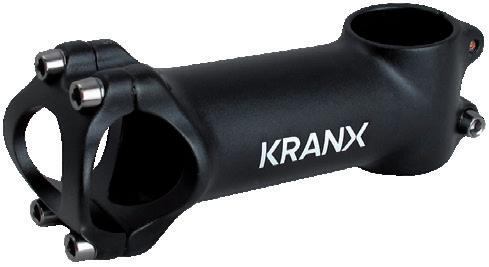





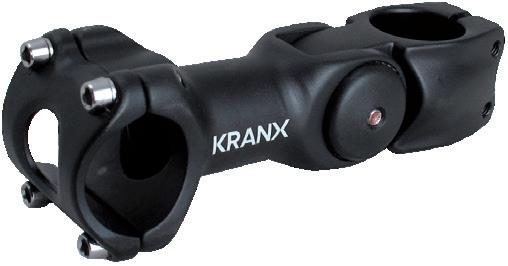
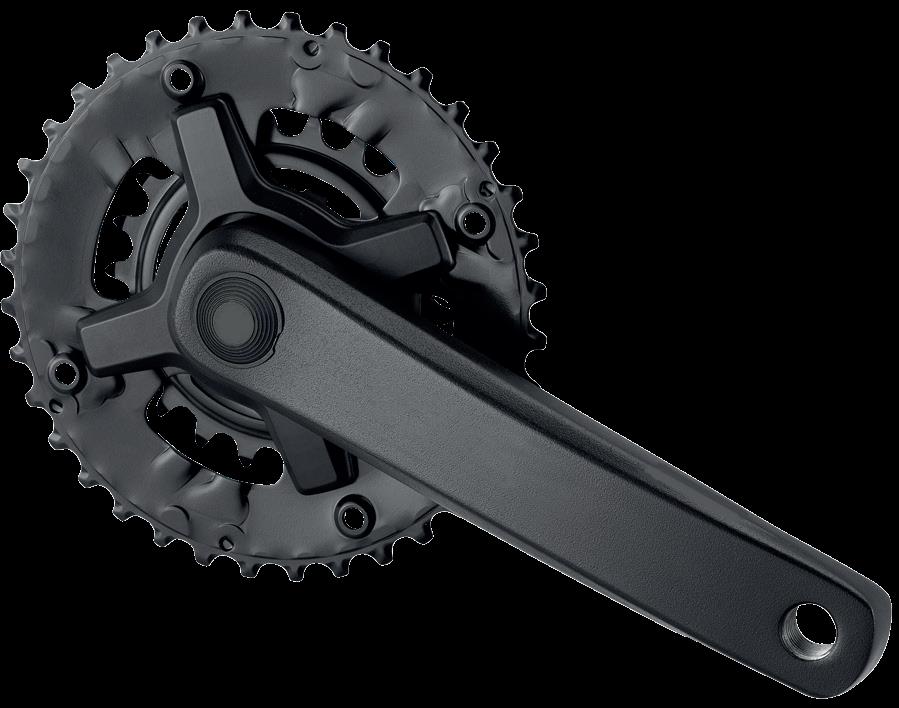

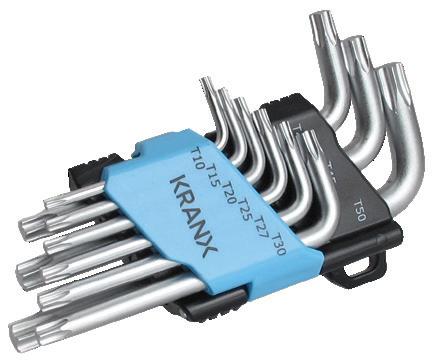


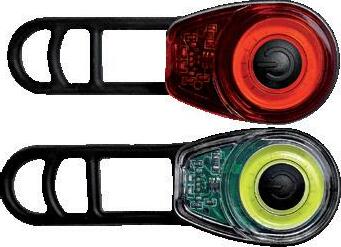

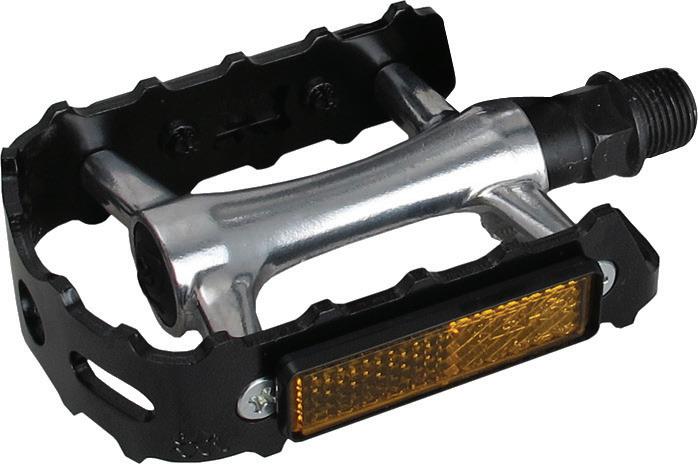










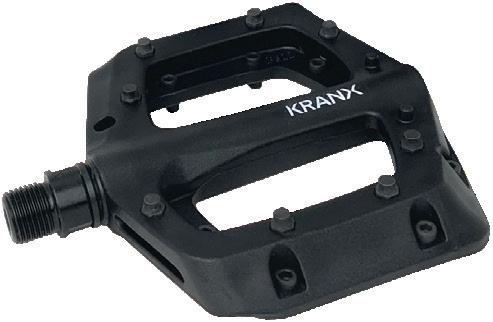

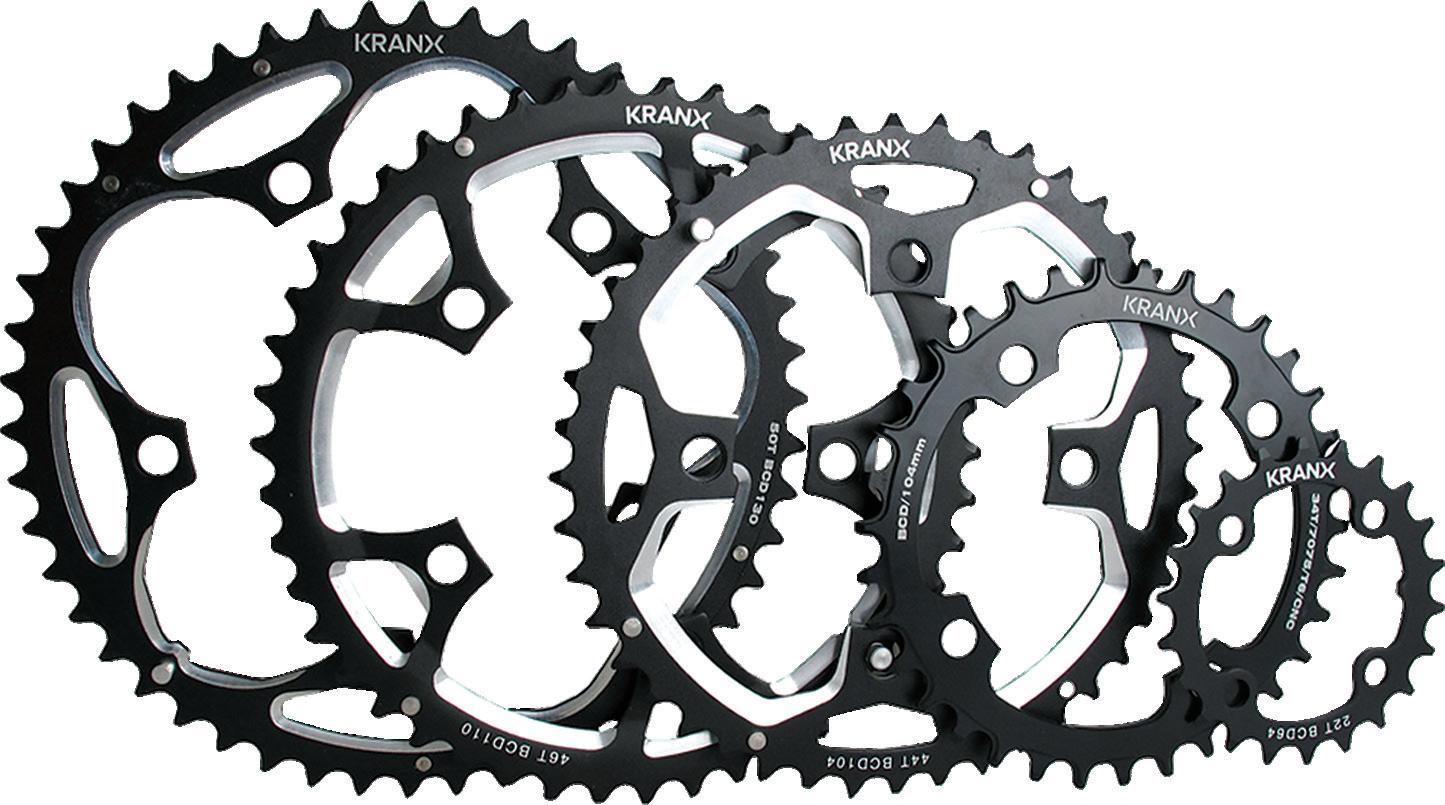




bob-elliot.co.uk

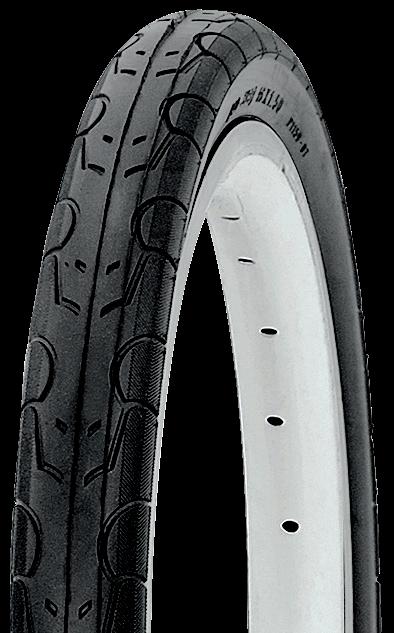

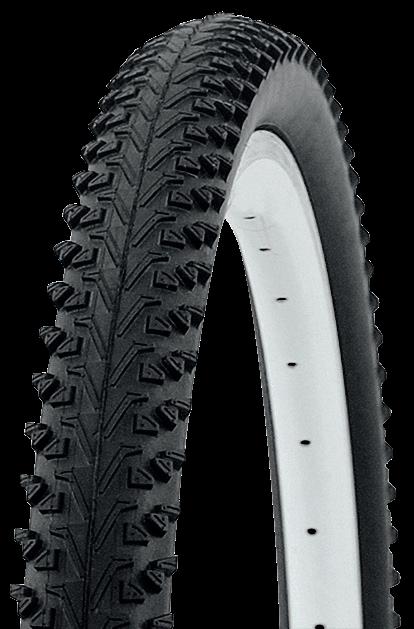

Consistent self selling packaging across all ranges
Excellent dealer margins & partner programmes
High turnover & easy to replenish products
Low risk investment stocking
To find out more about KranX contact your area sales manager, email sales@bob-elliot.co.uk or call us on 01772 459887

bob-elliot.co.uk/twitter
bob-elliot.co.uk/facebook
bobelliot-online


“YOU AS A BRAND CAN AND MUST SELL YOUR PRODUCTS AT THE PRICE YOU WANT AND YOUR POSITIONING ALLOWS. NOBODY SHOULD JUDGE YOU BUT THE MARKET.”
€20,000 electric car for 2026. The secondhand market has been reactivated as a source of cheaper cars. It seems that the basic cars will have no place in the future. It is as if the entry affordable cars were disappearing. I think that company cars will not let it happen or that, in some cases, a bike/cargo bike can fill this place. Cars and bike situations are only partially comparable because Govs support cars with huge bits of help of all kinds, the implementation level of the car has nothing to do with the bike in most of the countries of the world, etc. But thankfully, we still have to walk this path, whereas cars try to find a way to keep their hegemonic position in our lives and bank loans. One of them is acquiring bike brands.
A framework to take our industry to a new level
What I want to highlight is that the market and current social and economic situations exert a huge influence on the reality of the companies. Now and in the future. Cars reacted to innovate, change, and adapt to keep on selling. This is a good mirror in that particular. You can think the same way about so many industries forced to react and find
a new way. You name them. I already suggested some.
I am not discovering the mineral water if I say that costs have risen like crazy in the last three years: raw material, products, logistics, etc. But, moreover, you as a brand can and must sell your products at the price you want and your positioning allows. Nobody should judge you but the market. We must be ready to explain and justify this before those coming to the bike from other environments and who are not contaminated by our poor self-approach.
I mean that everything changes not to be as before. But this happened constantly: the advent of TV, mobile phones, smartphones, Internet, cheap flights, B&B and so many more came to change the landscape. Prices and their relationship with the product in return included.
We have to work for a framework that allows us to sell bikes healthily for all of the involved and be ready to take our industry to a new level. Prices included.
Cristóbal Pérez is a seasoned cycling industry professional with a track record of leading change. Find him on LinkedIn... www.linkedin.com/in/c41
TERRASpeed XYNOTALTrail
TERRAHardpack
ARGOTALEnduro
ARGOTALDH
XYNOTALEnduro XYNOTALDH TERRATrail
ARGOTALTrail
COMPETITION TT
VECTORSport
NEWTONMTFDH
WINGFOOTDIRT
NEWTONMTFTrail









KRYPTOTALDH
SONDERklasse
MOUNTAINKing HYDROTALDH
KRYPTOTALEnduro

























EAGLESport
EAGLEF1





GRANDPRIXUrban EAGLETR








NEWTONMTREnduro
WINGFOOTPark
NEWTONMTFEnduro



In her search for the right representation in this fourth article on Women in Cycling with the goal to increase diversity and equality, these two women have provided a constant in these equations for Danielle Reiff-Jongerius within the industry.
Iwould like to introduce two veterans, Karla Sommer from Trade and Consultancy agency Velokin from Hamburg, and Daniela Odesser from Dani O. Communications in Munich, Germany. Their stories and opinions will create the necessary awareness at the very least, and raise some eyebrows. They will help accelerate change in organisations as well as the industry as a whole in the best case scenario.
Karla, can you give a description of who you are and what you do?
I hopped on a bike as a young girl and started competing at the age of nine, working my way into Germany’s national youth team, going pro.
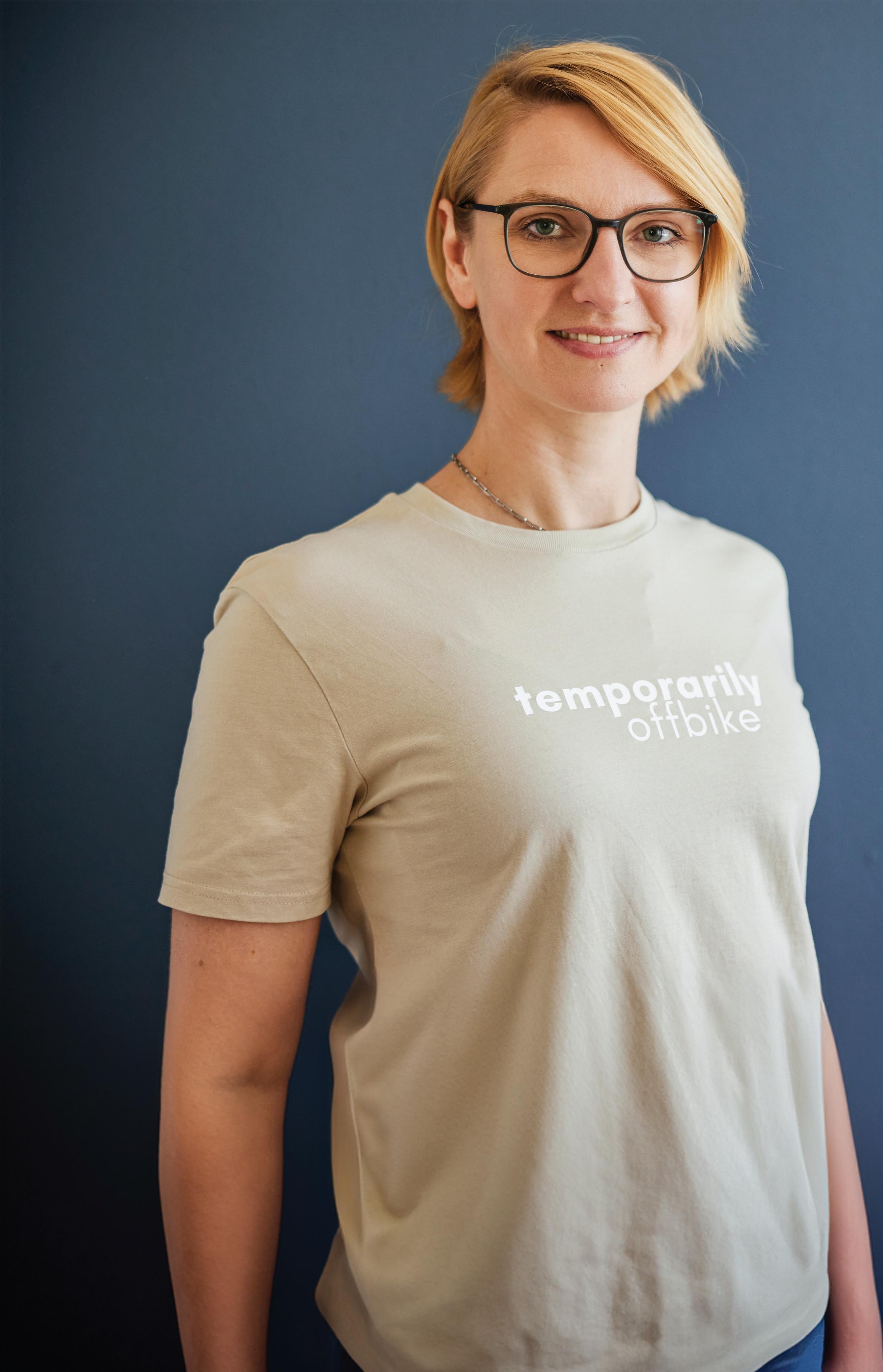
While I was German champion team time trial, I had to decide what I wanted to do after finishing school. It was clear to me, that as a woman, it was not going to be possible to earn my keep with pro cycling alone, only with the support of the German police or military programs for athletes. I knew I wouldn’t find fulfillment being a police officer at 35, so I decided to do an apprenticeship with a large bike brand.
You don’t want to name that company? No. My manager back then literally told me, and I quote: “As long as I head this department, there will be no women on the sales team for bikes. Parts and accessories, you can grow
into that, but bikes will not happen.’’ I would like to stress that, although I now have a great relationship with this particular company, and lots has changed positively in 20 years time, there still aren’t any women to be found in bike sales there today. I don’t know if it is still as conscious a decision as it was back then, I doubt it, but there is still a way to go for them.
What happened after that?
I went to Hamburg to Radsport Von Hacht, which is basically part of Stevens. I helped my clients with their entire purchase experience, bike hardware and apparel head to toe, really making customers feel heard. But I felt

my potential wasn’t maxed out there.
I went to New Zealand for three months to cycle around the country and when I came back started working for a bigger bike shop in Hamburg. This was at a time when high-end Brands like Rothwild were still only rarely purchased, and when I started with this company, I sold two Rothwild bikes on my first weekend there. The male colleagues passed it off as beginner’s luck, asking me if I even knew what I had been selling. I kept to myself.
Back then, I kept to myself and let them underestimate me. Nowadays, I might react differently to this, we have to own up more to our skills and successes, than we as women are used to.
To this day when I visit this store, I am still mostly being treated like the rookie they saw in me back then – a young woman that has little clue. I have gotten so used to it.
It recently started to shift a bit, when I visited them with the owner of Polisport, a large portuguese company. The Salesmanager couldn’t believe that this person had hired me to consult him, take him through Germany to show potential points of sale. And yes, it is because I am a woman.
I made the switch to Electra in 2009 and helped grow it. I learned and experienced a great deal working there for nine years, but I hit a glass ceiling — no further growth potential there. However, here, it was not because I was a woman, there just weren’t any further steps to make. I went to work for Cortina for two years and helped build their German market.
Here I learnt, that there’s lots of prejudice between different countries still, too; The Dutch feel they alone know how to sell bicycles, period. But the German market is very different from the Netherlands and so are all those other European countries. We should learn from these differences and use them to our advantage.
At one point, I was asked to become a country manager for a Hungarian eBike manufacturer. It was a great employer, but the job wasn’t me – I wanted to be out there, directly in touch with customers again. This is when I started my own business as a trading agency, that then grew into a consulting agency.
I am lucky to have very good insight into what’s going on in the market, thanks to this close proximity to all layers of the cycling industry.
Can you give an example of some positives when it comes to equal and sustainable entrepreneurship?
I would say, the Orbea cooperative: a very good example. They show healthy, steady growth – but most of all, because they are a cooperative, they act with responsibility for all the partners. Their decisions are made with social responsibility. They don’t grow as fast as many of the other industry giants, but the large corporations with incredible growth scores, they don’t seem to be able to anticipate bad times coming, and end up being surprised when the wind starts picking up and a storm comes. Orbea is weathering these storms.
I also notice, that companies that have younger management seem to live more fitting to the times, they live and breathe equality.
“IT CAN BE UNCOMFORTABLE TO GET YOUR BIKE FITTED BY A MAN, AS A WOMAN. PICTURE IT THE OPPOSITE WAY: A SALESWOMAN ASKING 'WHICH SETTING WAS MORE COMFORTABLE ON THE SCROTUM, A OR B’?”
At Schindelhauer for instance, it’s the norm that men take their parental leave, and not just those two months on top of the woman’s 12 (as many in Germany do to take a longer family vacation) but really to share an equal load in raising their children combined with work.
I think it is, simply because the Managing Directors lived this too. You can feel that talking to these men, you are at eyesight, equal, the way it should be elsewhere.
I do believe that many of the problems that exist in our industry (and society) are generational, and that it’s hard to teach older generations today’s ways.
Are there uncomfortable experiences with the older generations you want to mention?
Certainly. It ranges from something as innocent as a childless, middle aged, managing director, who schedules an important, mandatory international meeting on St Nicolas’ Eve, which is celebrated heavily in families with smaller
children, especially in the Netherlands.
If you yourself don’t have kids, or aren’t Dutch, you are unaware of the level of stress and annoyance this brings to those expected participants.
By sticking with that date – you don’t end up achieving your goals, you just create unnecessary friction within your most valuable teams. Something that can so easily be avoided.
Another example: Over the span of 20 years, I have had to tell numerous men my senior, that it really is not OK, to just casually touch my behind. And that, no matter in which way I mention my discomfort, the response “ah don’t make such a big deal out of it’’ is often much worse to endure. There has been a colleague that started walking in a different direction when he saw me at a trade show, just because I had started speaking up.
But it’s like this: It’s not me, that has to be avoided; it’s your behaviour.
Let’s mention Eurobike.
“In 2022, I was standing at a booth with two colleagues and two female nurses walked past, both in a tighter uniform. One of the men complimented them, maybe even with a whistle, classic – and then I said, hey, isn’t it a thing of the past, to compliment somebody like that while at work –when the second man responded and I quote: “Where did those girls go, I want to follow. You really don’t see enough tits at Eurobike nowa days’’. A third man looked me in the eye and we both sighed. Are we seriously not through with this?
Why do we need women in the industry? Well in retail, it can be very uncomfortable to get your bike fitted by a man, as a woman. I think we can all relate to this, right?
Picture it the other way around – when a saleswoman is asking the male customer: “well, which setting was more comfortable on the scrotum, A or B?’’ Most men would also feel more comfortable doing that with men.
What is the most important thing for you when you think about “Women in Cycling”?
My main point here is: Progress only comes with men, we need to do this together! I am not a fan of special roles, I just want to be equal.
We can’t achieve equality by just talking to women about the difficulties. In
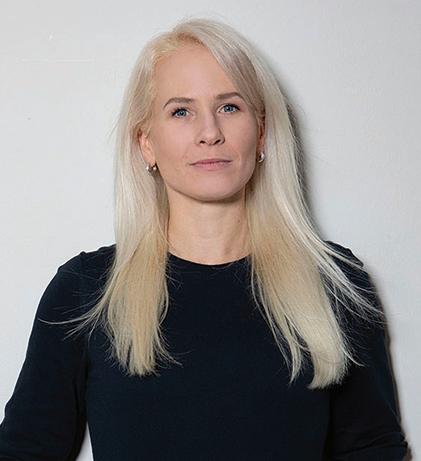
“IT TAKES GUTS TO HAVE THESE UNCOMFORTABLE CONVERSATIONS... THESE CONVERSATIONS ARE VERY MEANINGFUL.”
Odesser: “As a woman, you can usually count yourself lucky if you are not treated like a borderline idiot from the outset after entering a bike shop”

my opinion, engaging conversations with men bring the fastest results.
We do need organisations like Cycling Industries Europe to start initiatives such as Women in Cycling, to create a safe space for women to share – but, I think we will achieve equality faster when we invite the men, well, everyone to the table. I don’t want special treatment, just equal treatment.
What is your personal mission?
To speak up! Create awareness - together with men we will find the necessary balance and reach equality. It takes guts to have these uncomfortable conversations with men, to say: Hey, do you know how uncomfortable these silly comments made me feel? These conversations are very meaningful.
Where do you get your inspiration?
Growing up with a very strong mother. She was a business consultant specifically for women entrepreneurs, and has always concerned herself with equal rights and financial independence of individuals. I witnessed her ways and they inspired me to go my own way.
All we can do is to pay that forward.
What topics would you like to suggest to the cycling industry to tackle first? More diversity please! Here, we are not just talking about women. Earlier we already mentioned differences in cultures, but it’s also sexual orientation, religion, name it.
As an industry, we will only benefit if we position ourselves more diversely –open up the doors and windows.
Bring in new blood from outside our industry, actively seek new impulses and listen to other stories, try the new thing.
WHEN I ASKED Daniela Odesser to participate in this piece, she was enthusiastic, but she soon realised she has little positive light to shed, and together we decided to candidly share her perspective and feelings – they matter.
“It is incredibly frustrating that we still have to talk about equal opportunities in the 21st Century. Over the last 20 years, I have gained some very deep insights into a wide variety of industries and sectors, but nowhere have I experienced – or still experience – such bluntly expressed misogyny, homophobia, or racism as in the bicycle industry. What is now unthinkable elsewhere is accepted as a matter of course. It’s not that bad, is it?
The examples range from company bosses who actively tolerate the massive
sexual harassment of their female employees by business partners, to halfnaked hostesses at leading trade fairs to homophobic or anti-Semitic comments that are collectively laughed away while having a beer with colleagues after work.
The crucial question for me is: why is it that discriminatory actions and statements are so easily tolerated and systemic discrimination is so deeply rooted?
A supposedly simple answer: the Old White Boys Club and a lack of diversity.
But we live in the 21st century and in other industries, the boys have long since had to open up this exclusive club to people of any different gender or orientation.
So why is the bike industry so resistant to developments that have long since taken hold elsewhere?
For me personally, I keep coming to conclusions that the problem is systemic. For example, there is the self-image in the tradition of craftsmanship. Even if the signs are pointing to tech everywhere, many small and medium-sized companies see themselves as classic craft businesses. Please don’t get me wrong, craftsmanship is a great thing. But it is also a reality that craft businesses are traditionally strongly hierarchical and patriarchal in structure, often heteromale dominated, with correspondingly conservative corporate cultures that have no awareness of the issue of discriminatory locker room talk or understanding of why women should no longer be responsible for making coffee.
It has worked well so far, why change it? Incidentally, it is often forgotten and, in my opinion, totally underestimated that this extends to the bicycle retail trade. The first point of contact that many people have with the industry and which represents the sector to the outside world. As a woman, you can usually count yourself lucky if you are not treated like a borderline idiot from the outset after entering a bike shop. Rather a deterrent for potential female talent, which could contribute to solving the shortage of skilled workers.
Another point is the self-fertile interaction between a lack of professionalism and being rooted in sport.
A very uncomfortable point, I am aware of that. I have never experienced an industry that to a large extent relies so little on professional expertise and so much on clientelism and nepotism when it comes to hiring. If it’s not your degree and profes-
The new JoeBlow EX floor pump series has been designed to optimise inflation performance based on the needs of specific bikes. Each JoeBlow EX features a large, easy to read pressure gauge, SmartHead pump head and steel barrel to make inflating tyres a breeze.
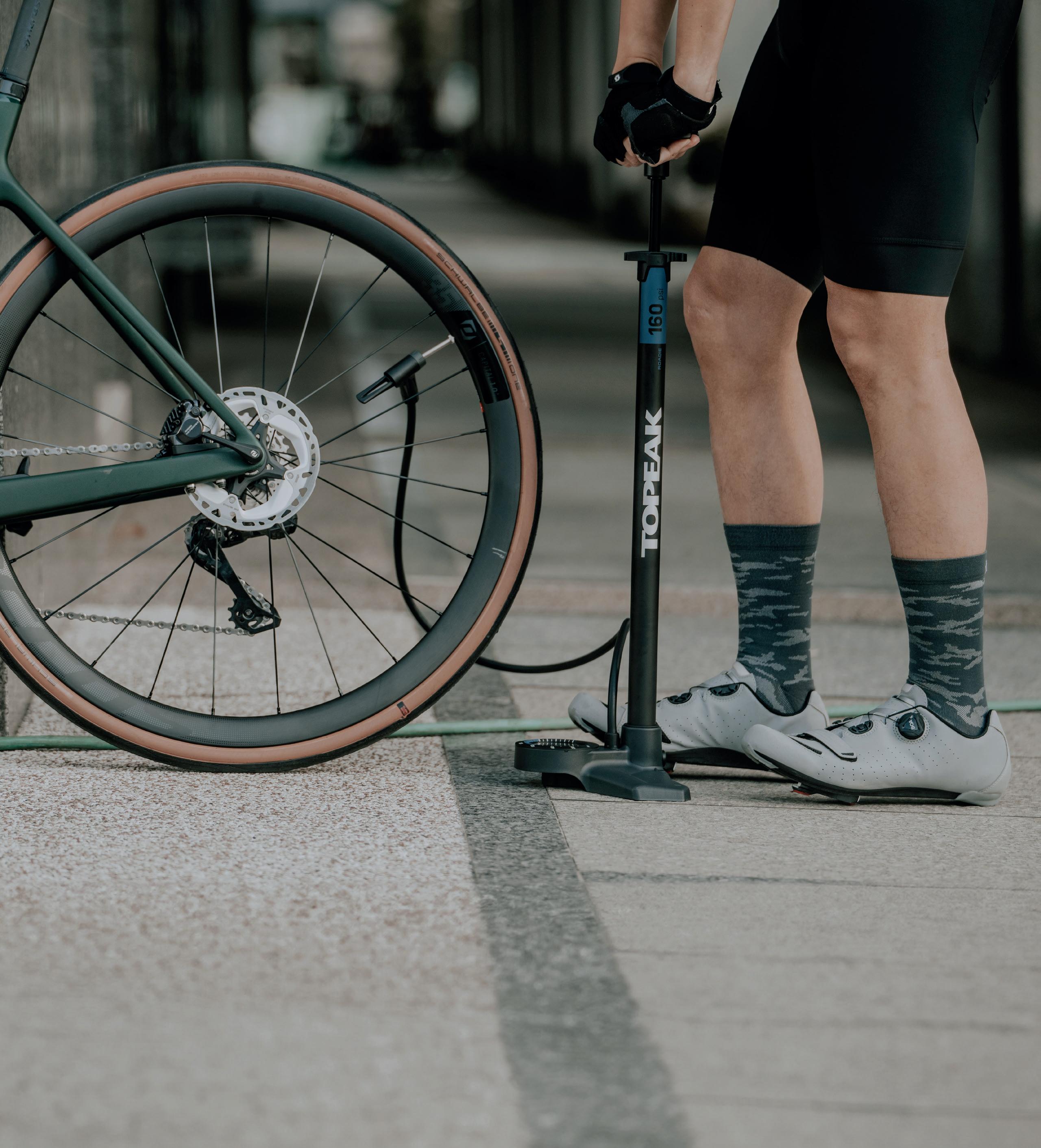
Available to order from www.extrauk.co.uk
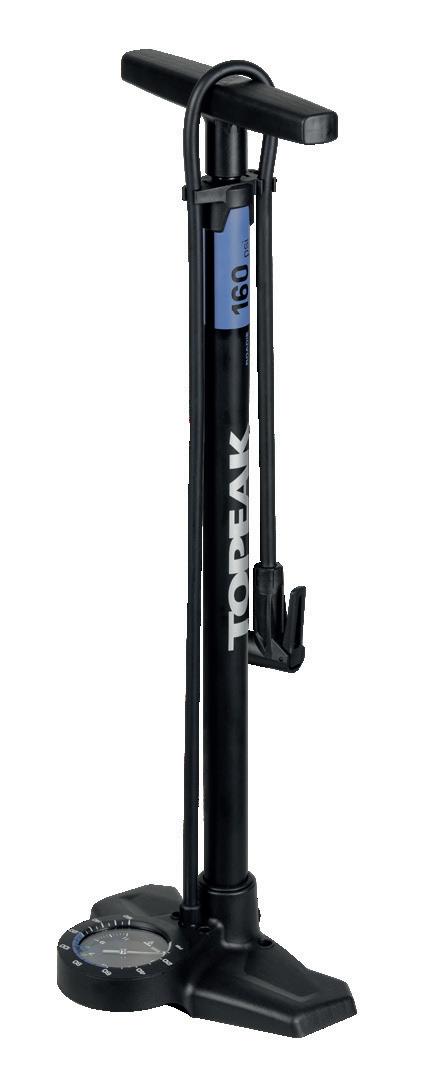

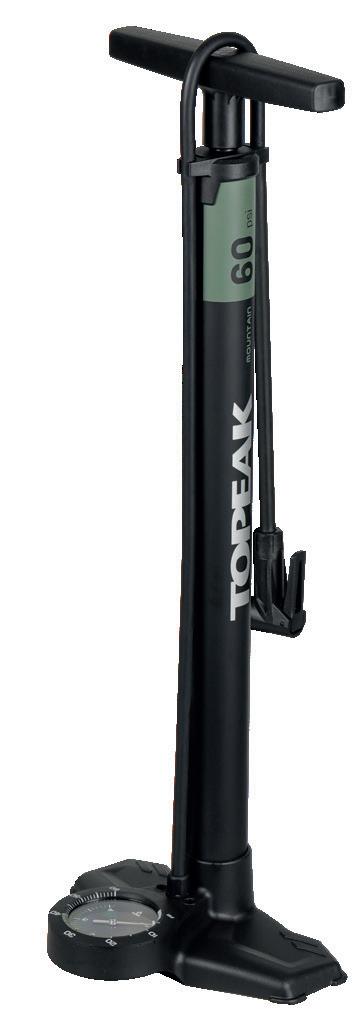



“I WOULD LIKE TO ENCOURAGE THE MAJORITY TO FIGHT FOR THE MINORITY SO THAT CHANGE BECOMES A GIVEN.”
sional experience that counts, but which pro team jersey you’ve worn or who you’re well acquainted with, then it becomes difficult to get a foot in the door for real future-proof talent – or not worth striving for, whichever way you look at it. Of course, specialist knowledge is important. However, if athletic performance in line with a corresponding testosterone level is the only qualification, this automatically defines a self-image of actual physical superiority – at least towards women –which unfortunately is also very often confused with mental superiority. In other industries, former employers or good universities respectively, professional education is cited regarding qualifications… in the bike industry, “badass” bike skills are often still enough.
How can we finally move away from this, if only to make the cycling industry competitive and fit for the future?
Of course, we could simply make a conscious decision in favour of diversity and equal opportunities. We could introduce compliance departments, establish whistleblower systems, adapt the hiring process, actively work on a cultural shift, take mental health topics seriously, and so on. You don’t even have to reinvent the wheel, you just have to look outside the bike-box.
But the truth is also that diversity changes dynamics and the bicycle industry operates in the context of society as a whole. Change is uncomfortable, and nobody likes to give up privileges. The reality is and remains: Crap rolls downhill.
Ultimately, the corporate organism is only the collective of its individuals. If homogeneity and the associated side effects are not a problem for the individuals in management positions and the staff, then why change? Cheers, old boys! I am convinced that such companies will die out in the medium term, because a backward-looking corporate culture will eat the organism from the inside in every respect.
Growing up in Utrecht, one of the cycling capitals of the world, Danielle Reiff-Jongerius has used her bike to get to school since the age of five. In 2015 she founded her agency, 138, in Munich while pregnant with her second child and with the vision to build her business around her family. Together with her husband, Philipp, it was decided they would merge both their businesses and share workload, income and parenting tasks equally. Today, 138’s values are reflected in a steadily growing company that puts their team first, while offering their expertise in content creation, marketing, communication and change management support to a diverse array of clients. Find out more at 138alternatives.com
Only those who recognise the systemic potential of diversity will survive and thrive With regard to our clients, I know that there is another way, a better way. Therefore, wherever the horse has not bolted yet, I would like to encourage the majority to fight for the minority so that change becomes a given. As well as to constantly question their own decisions and actions critically and to set the course for change. Marginalised groups will continue to fight for change anyway.
It has to happen from both ends. Fortunately, in many parts of the world, the younger generations’ understanding of respect for and value of people is no longer so strongly linked to gender stereotypes.”
Daniela Odesser is the founder and managing director of Dani O. Communications, a strategy, and communications consultancy based in Munich. She and her team have been advising companies and athletes, mainly from the cycling and mobility sectors, for almost 15 years. We welcome your responses to this article and would love to engage in conversations about change! Please connect via LinkedIn or at danielle@138alternatives.com.





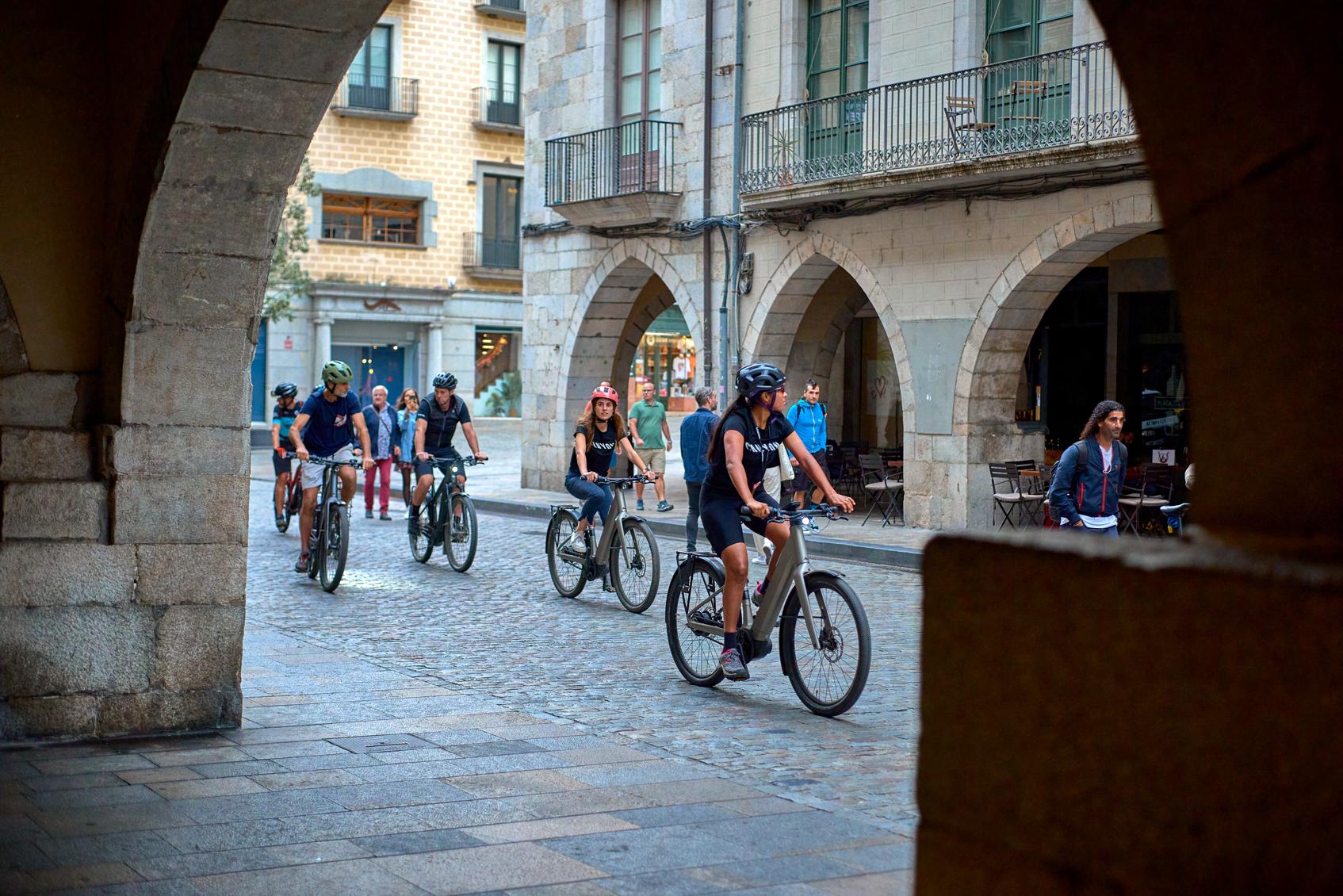
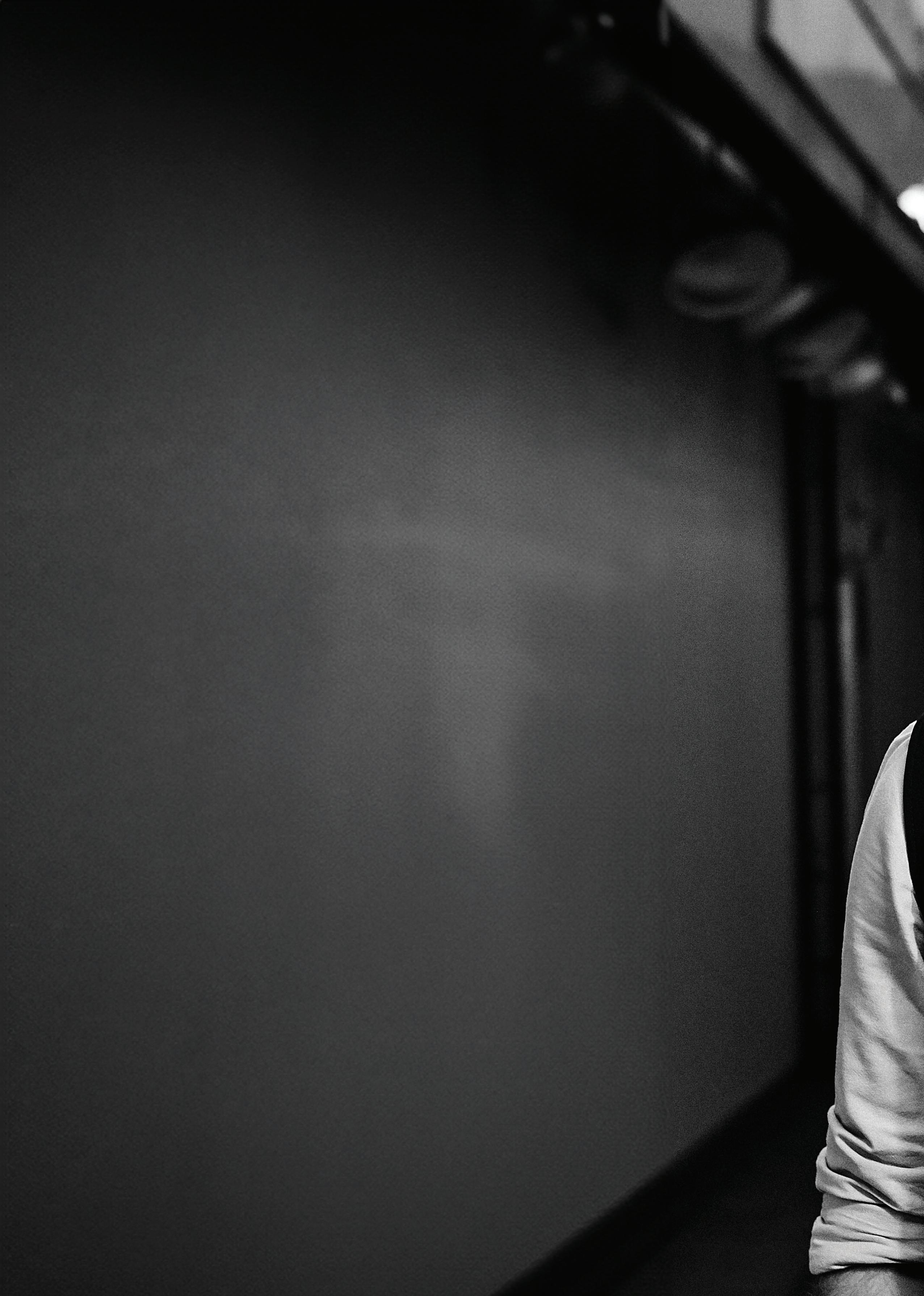
“DEMAND
Growth in the delivery market has been matched by the demand for sustainable options. Cycling has some ready-made alternatives, but there are some challenges – and opportunities – before it can scale up and become an even more viable and attractive option. CIN speaks with Zedify Co-Founder and CEO Rob King
The opportunity for the cycling industry to diversify into corporate as well as consumer sales remains a highly potent one. When consumer budgets are tight, corporate ones may not be so restricted, potentially buoying suppliers when trading is difficult. While it’s a logical progression for the industry that is already underway, achieving penetration into the corporate world isn’t as easy as waving the proverbial magic wand.
But the timing is inarguably good, in fact it could hardly be better with not just an added focus on sustainability but also investors and large clients all with a cogent commercial need for businesses to clean up their operations and supply chains and cut their carbon. You don’t have an ESG policy? Then you might find your biggest customers are looking elsewhere in order to fulfil their own commitments to acting sustainably.
So far so good for cycling, but for a large proportion of businesses seeking more sustainable options, the first move is typically to look at electric vehicles as replacements replace petrolfuelled fleets.
“Yes absolutely,” confirms Zedify CEO Rob King. “This is the easiest option for them as it requires no change to their current infrastructure. Remoding to EVs keeps everything the same, it’s just a different source of energy. But as we know, this is not the solution. EVs give only relatively modest carbon savings and do not do anything to overcome the big issues around congestion and space.”
Having a ready-made solution for companies not looking to invent systems from the ground up is crucial to support those looking to incorporate cargo bikes or eBikes within their businesses. This is where the likes of Zedify comes in to fulfil that need, but there are lots of opportunities for like-minded business-
es to slot into that set up, explains King: “It’s more ready than ever, but there’s still a long way to go. The issue is around support infrastructure.
“Getting an EV is very simple when it comes to finance, servicing, insurance and driver training etc because these are all known entities. With cargo bikes, everything is different and new and so a community of support is needed for this to change. Obviously companies such as Fettle are supporting this but we’ve got a way to go.”
Zedify has fast become a notable part of that infrastructure. Launched in 2018, Zedify was founded by Rob King who already operated Cambridge’s Outspoken Delivery and Sam Keam who also ran Brighton’s Recharge Cargo. The businesses merged to form Zedify, which services the UK with a growing network of zero-emissions delivery hubs. Starting with six locations across the UK (and now with nine hubs), Zedify has been successful in raising investment on multiple occasions. Its status is such that it now rubs shoulders with the likes of BAE, TfL, Stagecoach and Menzies Distribition at the Chartered Institute of Logistics & Transport Award, where Zedify picked up an award in Excellence prize last year. The Institute said that Zedify scored the win because it is “a terrific example of how best practice in moving freight in an urban environment can lead to genuine innovation. Zedify are seeking to decarbonise urban logistics. Our demand for last mile deliveries continues to expand explosively, at the same time as we aspire to net zero impact on our environment. Through partnerships with industry leading integrators and other private and public sector bodies, Zedify are demonstrating the ability to scale their model rapidly. Zedify are applying best practice ideas to redesign the network model to deliver an urban freight model fit for the 21st century.”
Cargo bikes aren’t just handy for helping hit those sustainability obligations. Just in time, a favourite in the manufacturing sector for decades, has now firmly made the move to the consumer world where we expect to place an order and get our product within hours rather than days. Zedify recently ran a survey that illustrated that point, finding that half of retail businesses in the UK are losing customers due to a poor delivery experience.
Zedify polled 250 retailers, with a minimum revenue of £10.5 million in the UK, and discovered that living up to those customer expectations was proving a significant challenge. 45% said they are finding it hard to meet delivery times, 44% struggled with customer communication and 39% found increased shipping costs a real problem.
Notably, 57% of UK retail companies are committed to investing in more sustainably delivery options. 32% want to work with eco-friendly carriers, 30% are looking for more ecofriendly packaging and 25% plan to reduce greenhouse gas emissions.
The majority of retail businesses have sustainability targets in place for deliveries and a whopping 46% plan to use cargo bike delivery.
Speaking on those results, Rob King said at the time: “The last mile is rife with inefficiency, high costs and environmentally unsound solutions and our research demonstrates just how much retailers are struggling with it, so much so they are losing customers as a result. This shows just how pivotal the delivery experience is for retailers when it comes to customer loyalty.
“But it’s also encouraging to see how many are looking to
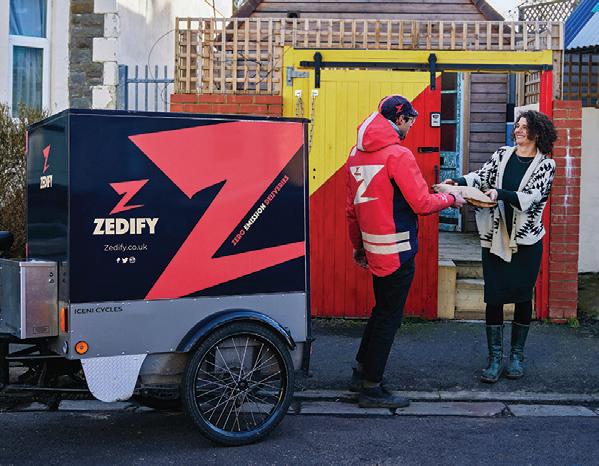
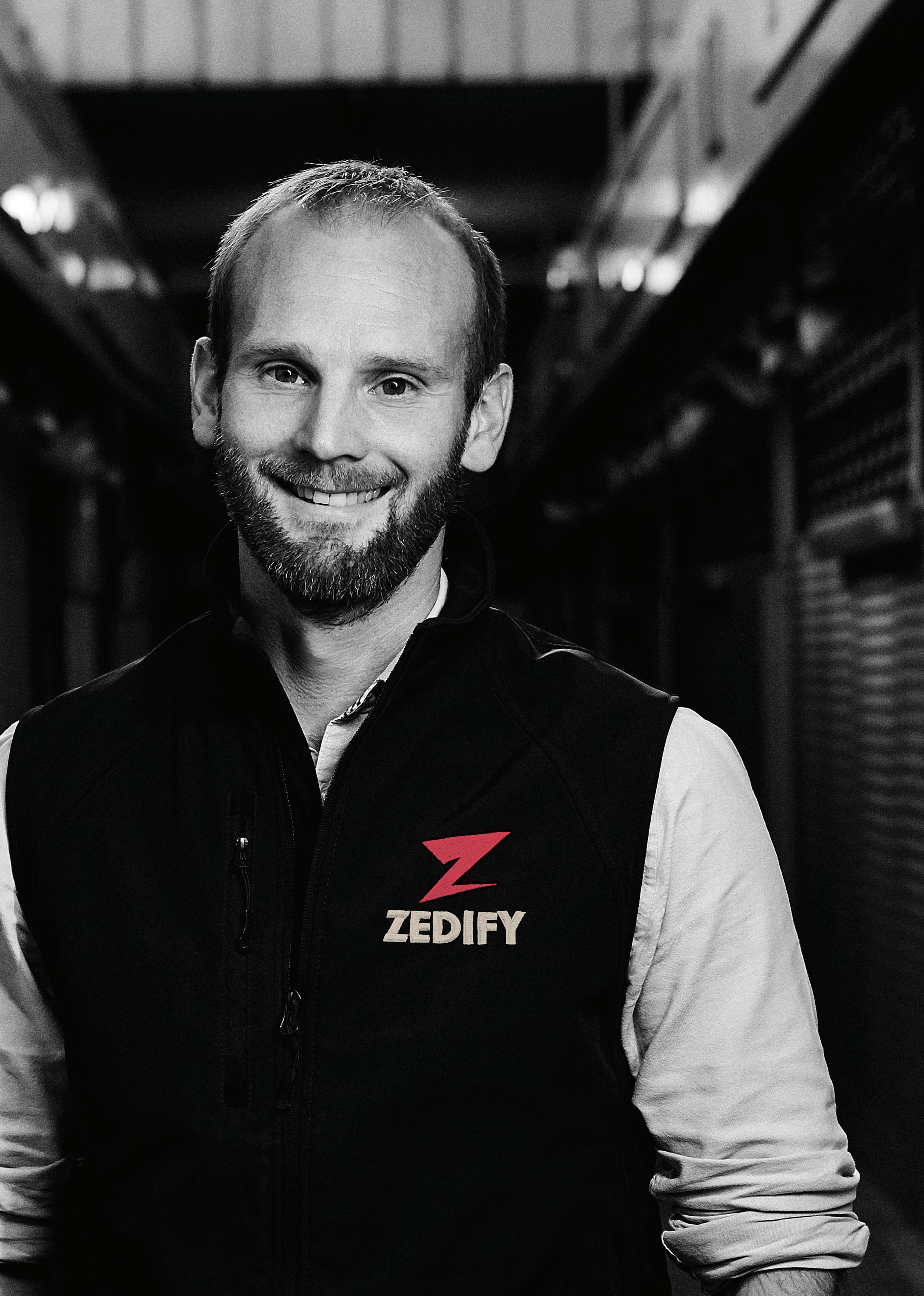
“ZEDIFY
ARE APPLYING BEST PRACTICE IDEAS TO REDESIGN THE NETWORK MODEL TO DELIVER AN URBAN FREIGHT MODEL FIT FOR THE 21ST CENTURY.”


Fast, sustainable... and not left leaning against your front door in the rain: Even delivery giants like Amazon struggle to meet expectations of the nation's consumers, exemplifying the scale of the last mile challenge
“BEING SUSTAINABLE IS NOT JUST GOOD FOR THE PLANET, IT IS GOOD FOR CUSTOMER RETENTION AND HAPPINESS, WHICH TRANSLATES TO GROWTH.”
engage in more sustainable business practices with a focus on delivery. By investing in super low-carbon delivery options such as cargo bikes over vans, electric or otherwise, not only can retailers make massive carbon savings per delivery, they can ensure more accurate delivery times and a more pleasant doorstep experience, thereby improving the customer experience as a whole. Being sustainable is not just good for the planet, it is good for customer retention and happiness, which translates to growth.”
So with the pieces aligning for the cycling industry to extend its tentacles in the corporate world, King intends for Zedify to be in the mix throughout the nation. He explains to CIN: “We’re building out our networks to support our microhubs so we can connect deliveries from one part of the country to another, ensuring our customers get the same great service whether they’re based in London, Manchester or Brighton. We’re expecting to triple in size so there’s plenty of execution challenge that comes with this!”
For full access to Zedify’s survey, visit: www.www.zedify.co.uk/download-theimpact-of-parcel-deliveries-on-ukretail-success/
“COMMUNITY
Zedify co-founder Rob King’s notes the need for a “community of support” to enable greater corporate market penetration for the cycling industry, not least in terms of servicing – an area traditionally strong for the bicycle retail sector. As noted by King, the likes of Fettle are poised to take some of that business and fill that gap.
Car servicing and repair giant Kwik Fit has not been slow to weigh up the opportunity. After announcing a partnership with Fettle in 2023, it moved to acquire the bicycle servicing company in early 2024. Founded by Jeyda Heselton, Fettle was set up to shake up the service experience in the UK’s cycling industry, offering “faff-free” bike repair including collection, repair then returning bikes to customer doorsteps. The move is significant for automotive market stalwart Kwik Fit and also in terms of its intentions to take a slice of the burgeoning last mile delivery and cargo bike delivery sector. 100% ownership of Fettle has been transferred to Kwik Fit, facilitating the combination of Fettle’s innovative approach to cycle servicing with Kwik Fit’s resources, network and expertise in the automotive sector. The Fettle management team will remain with the business, including Jeyda Heselton, who founded Fettle in 2019, continuing to lead the company.
The duo said the strategy of Kwik Fit and Fettle is to “revolutionise the service experience in cycling”. Noting increased complexity as bicycles evolve with electrification, the move will ensure “that every cyclist’s needs are met with expertise and the reassurance of a brand focused on customer care”. The press statement also noted the potential the move holds for cycle manufacturers who sell directly to consumers.






















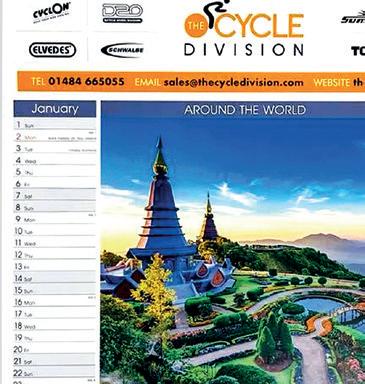




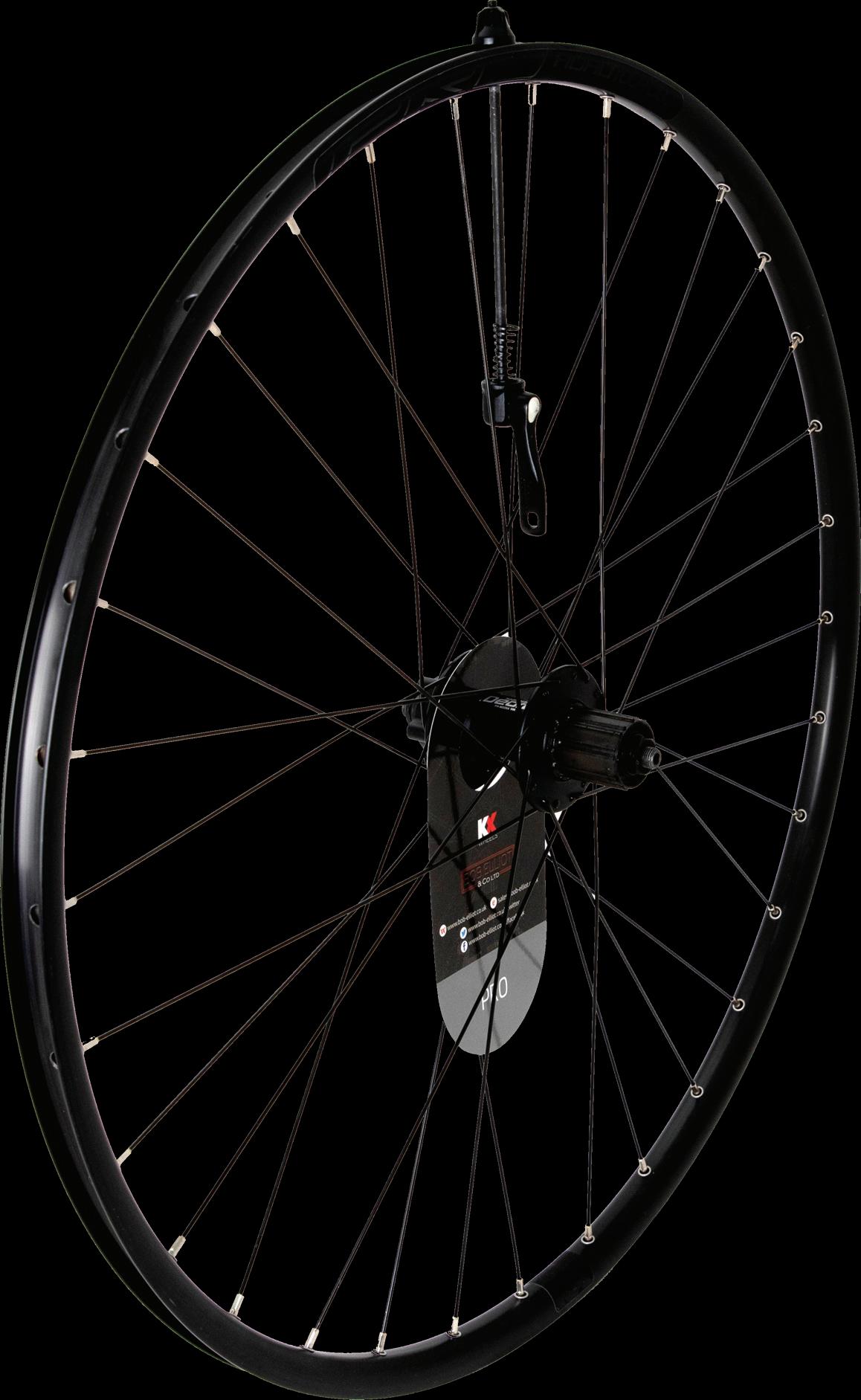
“DEALER AND DISTRIBUTOR RELATIONSHIPS ARE MORE IMPORTANT THAN EVER”
The cycle market has had something of a shake up in the past 18 months, to understate matters, and maybe we’d be forgiven for thinking change is the new normal. As ever though, the industry has some straighttalking, no-nonsense voices that provide some calm common sense, including Bob Elliot Company Director Paul Elliot, who points out that, actually, some things never change: “Dealer and distributor relationships are more important than ever in my opinion. It isn’t necessarily about the growth through hard times, but just a chat and a connection to make everybody feel positive and supported.”
Positive thoughts may have been thin on the ground of late, but Paul has plenty of them: “Let’s not forget, the short-term forecast is great but the medium to longterm forecasts are even better. Following on from Covid there are more cyclists, improved infrastructure and more established retailers looking to the future.
“There appears to be a bottleneck remaining on overstock especially with bikes but it is felt that once that improves retailers will be in a much stronger position.”
With relationships centre stage for the Bob Elliot business, the team has been putting in the hard work and expending shoe leather to get face-to-face honest feedback and views from those on the retail front line. Paul explains: “I have been visiting many stores in the last couple of years with my colleague Stacey, to further educate ourselves on what is happening on the shop floor after I’ve been prominently office-based and it has been a fantastic learning curve. Putting faces to names I have spoken to for such a long time has been a great experience.” That eagerness to listen also sees the firm keeping supplier relationships firmly prioritised too, not least with trips to the likes of this year’s Taipei Cycle Show: “Seeing our partners in the Far East is extremely important and further allows us to connect all the pieces.”
New suppliers locked down
Some business truisms remain in place even when conditions have been rough. Bob Elliot Company Director Paul Elliot talks trade relationships, own brand development and the positives ahead for the industry
Speaking of suppliers, ABUS is one of the latest brands to come under the stewardship of Bob Elliot, which is now sharing trade distribution responsibilities with Upgrade Bikes. Paul says: “As we continue our own growth we have been delighted to introduce ABUS locks and helmets to our range. ABUS have been renowned for their phenomenal quality with their locks for many years and are well established.
Faster Clean. Service more bikes. Less than £1 per wash.
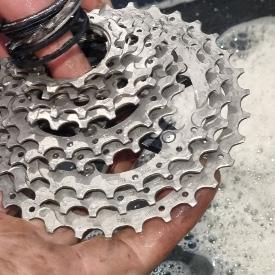








Speedy degreasing, giving a superior clean
Up to 50% faster than spray and rag
Less mess, cleaning contained Self-recycling
Eco-Mode feature saves energy Cheaper than off-the-shelf products
Safe and easy to maintain Mobile cleaning where you need it
0121 514 0607



WWW.ROZONE.CO.UK


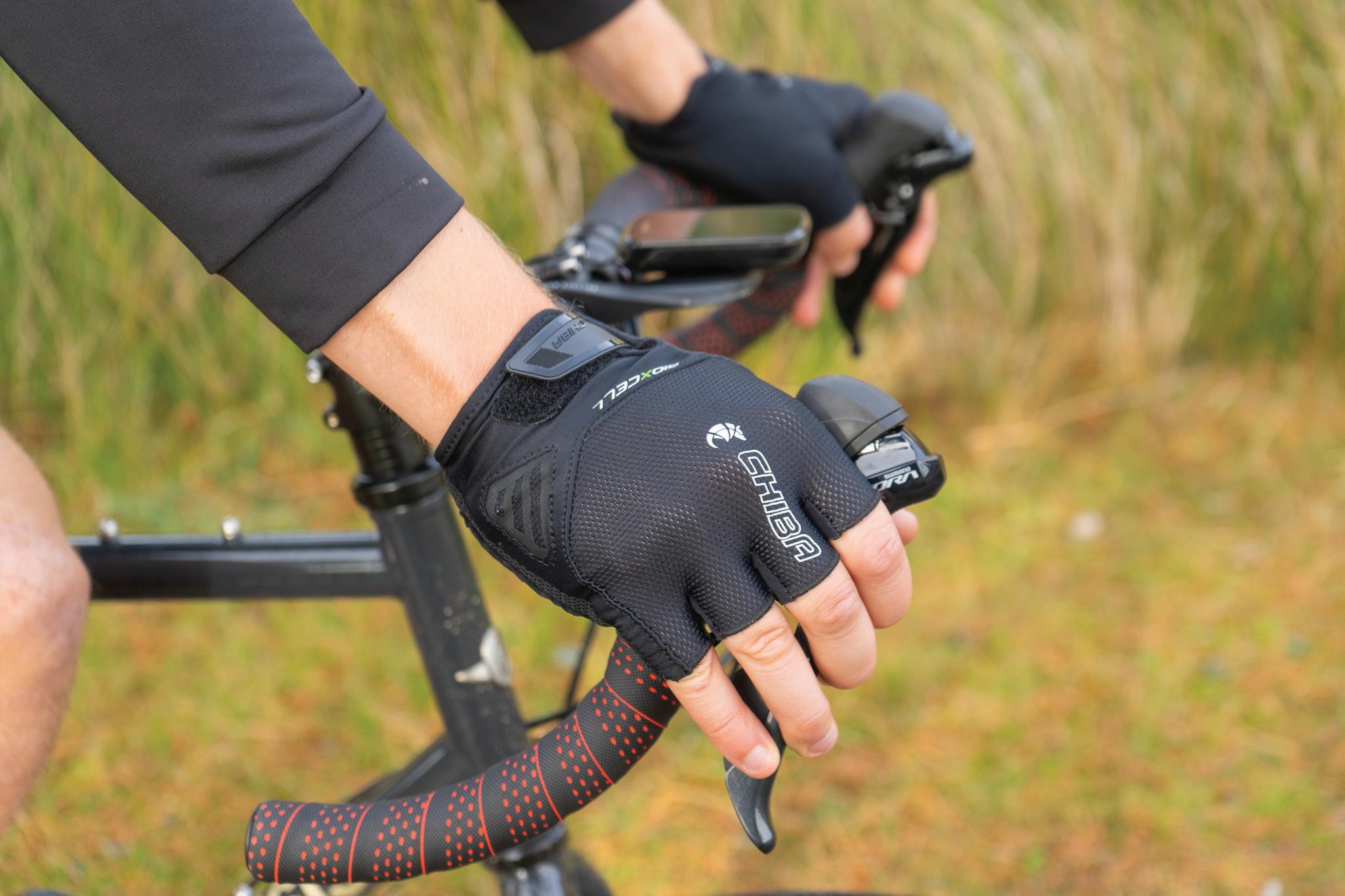
“Our team recently visited a few of their factories in Germany and were blown away by the professionalism, attention to detail and quality of their production facilities. Their testing goes above and beyond what we could have imagined. Their helmets complement the locks in exactly the same way. A high-end finish on all models, with topend road being made in Italy to ensure better availability and sustainability.
“We have initially launched a “Phase 1” range but are receiving market feedback as we prepare a Phase 2 launch of new products. Their unique Keyed Alike feature for higher-end locks allow a one-key solution for users with many ABUS locks. Dealers can contact us for more information on this.”
Bob Elliot’s brand mix has grown over the years to include own-developed labels like KX Wheels and KranX. Expanding into own brands has seen the business grow its skillsets and facilities in production but – true to form – the dealer has been kept dealers close during development, particularly with Kranx: “KX Wheels and KranX are two brands produced and maintained by us. We developed both just prior to Covid and they are going from strength-to-
“WE ARE LOOKING TO GROW OUR PARTNERSHIPS WITH STORES AND CHAINS IN 2024 AND WITH MORE OPPORTUNITY AROUND FOR SUPPLY IT WOULD BE GREAT TO HEAR FROM NEW CUSTOMERS.”
strength. Changes within the industry in recent times have only accelerated their popularity and demand is increasing each season.
“KX Wheels are developed and produced in-house and have been ranged to suit every workshop. Componentry is brought in from all over the world to maintain a high quality, consistent production using wheelbuilding skillset, lacing machines and state-of-the-art robots to finish our wheels to precise tolerances every time. Our range is developing all the time and we will be introducing junior sizes and boost tubeless options in 2024.
“KranX is our own-brand which has been developed for and with the IBD. Using reputable manufacturers and partners we now have over 300 SKUs available in the collection with the most recent additions across luggage and pedal sectors. We use consistent packing which helps store present the brand effectively and now offer a wide range of POS for stockists.
“These are two important brands for our business. They are under our control and allows us to work much more closely with stores for their development.”
Both those brands have played into one of Bob Elliot’s strengths, of being
strong on workshop and servicing brands. With that area of the market a consistent performer for many bike shops, that has seemed like a particularly savvy line of focus.
“Workshop and servicing is an area where we are particularly strong,” agrees Paul. “We have some fantastic brands in this sector and with more stores putting focus here we are perfectly placed to offer a wide range of solutions.
“The aforementioned KranX and KX Wheels are relevant here but there are a wide range of other brands that deliver fantastic margin and availability. To name a few we are looking at Clarks cables, Schwalbe & Continental tyres and tubes, Blub & Weldtite cleaners and lubes, Cema bearings, Impac entry-level tubes, SunRace cassettes & componentry.”
The positive firm has an open door when it comes to building on its trade relationships – and forging a few new ones too. Paul concludes: “We are looking to grow our partnerships with stores and chains in 2024 and with more opportunity around for supply it would be great to hear from new customers.
CONTACT...
e sales@bob-elliot.co.uk
w www.bob-elliot.co.uk
